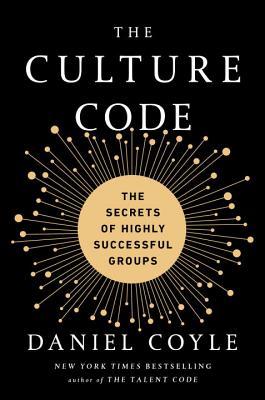Snippets about: Personal Development
Scroll left and right !
Trying To Do It All Perfectly Is Futile
The myth of "having it all" - a perfect career, family, body, marriage, and home - is not just unrealistic, it's destructive. No one can achieve perfection in every area of life simultaneously. Believing you should leads to inevitable feelings of frustration and failure. A more achievable goal is to do the things that matter most as well as you can. Reject the myth by embracing trade-offs:
- Leaving work at 5:30 pm to have dinner with your kids, then working after they're asleep
- Letting the house get messy so you can finish an important work project
- Choosing the school play over a professional conference
You can have a full, rich career and family life, but not if you try to do everything perfectly
Section: 1, Chapter: 9
Book: Lean In
Author: Sheryl Sandberg
Self-Accountability Is Taking Responsibility For Your Actions
Self-accountability means holding yourself responsible for developing your abilities, managing your weaknesses, and governing your actions with reason. It's realizing that even if you can't control everything, you always control your response - which makes the situation better or worse.
People who lack accountability believe things are never their fault. They make excuses, blame circumstances or other people, and see themselves as victims. But this victim mentality only breeds a sense of helplessness and passivity. Taking ownership, even when a situation isn't your fault, allows you to focus on making things better instead of finger-pointing.
Section: 2, Chapter: 1
Book: Clear Thinking
Author: Shane Parrish
Obsession Isn't A Disorder - It's A Prerequisite For Extraordinary Achievement
Obsession means being completely consumed by your goals and doing everything in your power to achieve them. This single-minded drive is common to all highly successful people. It means being:
- Relentless and unstoppable in the pursuit of your dreams
- Willing to do things others consider unnecessary or even crazy
- Completely focused and fixated on your purpose and mission
- Determined to succeed even when you feel tired, discouraged or doubtful Embrace obsession - it's the rocket fuel that propels you to 10X heights.
Section: 1, Chapter: 12
Book: The 10X Rule
Author: Grant Cardone
Treat Success As Your Duty, Obligation And Responsibility
Don't treat success as optional. It's mandatory for supporting yourself, your family and your future.
- Commit to success as an ethical obligation. You owe it to yourself and others to maximize your potential.
- Limiting success means limiting your ability to help yourself and others. That's unethical.
- When you make success a must, you'll do whatever it takes to make it happen. Failure is no longer an option.
Section: 1, Chapter: 4
Book: The 10X Rule
Author: Grant Cardone
Resist The Mimetic Forces Of Freshmanistan With These Two Tactics
- Use imitation to drive innovation: There's a false dichotomy between imitation and innovation. The most creative geniuses start by imitating the right models. Identify a model to imitate as a starting point, then build something fresh on top of it rather than pursuing originality for originality's sake.
- Map out the systems of desire in your world: Identify the specific mimetic systems you operate in (e.g. your industry, school, family). What is considered more or less desirable in each one? Knowing the invisible maps of desire allows you to spot opportunities others miss by daring to look in different directions. Mark the boundaries of your current system to gain the ability to transcend it.
Section: 1, Chapter: 2
Book: Wanting
Author: Luke Burgis
Praise The Process, Not Innate Ability
How we praise children profoundly influences their mindset. Praising children's innate abilities ("You're so smart!") reinforces a fixed mindset, while praising their effort, strategies and progress cultivates a growth mindset. Effects of different praise on children:
Ability praise:
- Makes children feel good in the moment but discourages risk-taking and learning
- Leads kids to fear failure and quit in the face of challenges
- Makes kids dishonest about their mistakes in order to maintain the "smart" label
Process praise:
- Encourages kids to seek challenges and persist despite failures
- Makes kids more resilient and likely to improve after setbacks
- Fosters intellectual honesty and openness to feedback
Section: 1, Chapter: 3
Book: Mindset
Author: Carol Dweck
Cultivating an Inner Citadel of the Mind
The final discipline required for overcoming obstacles is the Will. If Perception and Action are the disciplines of the mind and body, Will is the discipline of the heart and soul. Will is the mental fortitude to deal with difficult circumstances and maintain our determination in spite of adversity. It's what allows us to bear misfortune without breaking. We cultivate Will by building an "Inner Citadel" - a mental fortress of wisdom and strength that external events cannot breach.
Section: 3, Chapter: 16
Book: The Obstacle Is the Way
Author: Ryan Holiday
Memento Mori - Meditating On Mortality Provides Perspective
One bracing way to cut through trivialities and focus on what matters is to remember you will die. As the Stoics urged, "memento mori" - keep in mind your mortality. When facing an obstacle, ask yourself - if this was my last day, what would I do? How would I face this? Remembering death injects a dose of sobriety and urgency to our actions. It wakes us up and commands us to treat things seriously and make the most of every moment. Let death be a counselor that helps you overcome.
Section: 3, Chapter: 21
Book: The Obstacle Is the Way
Author: Ryan Holiday
Loopy Progress
"Progress rarely happens in a straight line; it typically unfolds in loops."
- Adam Grant
Section: 2, Chapter: 5
Book: Hidden Potential
Author: Adam Grant
Your Network Is Your Net Worth: Cultivating Connections That Count
For companies of one, relationships are everything. In a hyper-connected world, your most valuable asset is not what you know, but who you know (and who knows you). A strong network gives you:
- Referrals - Warm introductions to potential customers, partners, and top talent
- Resources - Access to insider knowledge, expert advice, and best practices
- Resilience - Support and encouragement during the inevitable ups and downs
- Reputation - Third-party credibility and social proof of your abilities
But valuable relationships don't just magically materialize. You have to put in the work to cultivate them over time. Some dos and don'ts:
- Do give before you get - Offer your time, expertise and connections generously
- Don't keep score - Focus on mutual benefit, not tit for tat transactions
- Do show genuine interest - Ask questions and listen more than you talk
- Don't be a "taker" - Constantly asking for favors without reciprocating
In short, approach networking like you would any important relationship - with authenticity, consistency, and dedication. The more you put into your network, the more you'll get out of it.
Section: 3, Chapter: 12
Book: Company Of One
Author: Paul Jarvis
Mental Time Travel Aids Decision Making
A core theme of Chapters 5-6 is that mentally simulating the future and past leads to better choices. Vividly imagining various futures (through backcasting and premortems) helps us select the most promising one to aim for. It also allows us to anticipate and preempt obstacles. Reflecting on past similar situations provides context on whether a proposed course of action is wise.
The more we build mental muscles to escape the here-and-now and adopt a long-term perspective, the better our judgment will be. Groups and habits that promote this kind of mental time travel are invaluable.
Section: 1, Chapter: 6
Book: Thinking in Bets
Author: Annie Duke
Track Slow Changes To Recognize Gradual Progress
To control the destiny instinct, Rosling recommends looking at slow changes over time:
- Measure from the past. Compare the current situation to 30 or 50 years ago, not just to yesterday. Progress looks small on a daily basis but adds up over decades.
- Talk to your grandparents. What was life like when they were young? You'll likely discover many norms have changed dramatically within a lifetime.
- Collect examples of cultural change. Look for old practices that were once considered permanent but have now disappeared. Foot binding in China and strict social hierarchies in Europe were both once considered "natural" and unchangeable.
- Gradual changes are hard to see in real-time, but examining history reveals very few things are truly static over time.
Section: 1, Chapter: 7
Book: Factfulness
Author: Hans Rosling
Slow Productivity Means Embracing Ebbs and Flows
A core tenet of slow productivity is rejecting the need to maintain a constantly high level of intensity. Instead, embrace a working rhythm that allows for natural ebbs and flows:
- Schedule "slow seasons" where you intentionally reduce your workload and external obligations in order to recharge
- Build reflective downtime into your days and weeks
- Protect time for deep focus on your most important projects
- Allow bursts of intensity when needed, but avoid making them your default
Section: 2, Chapter: 4
Book: Slow Productivity
Author: Cal Newport
Focus On Improving Relationships And Pursuing Flow
To increase your enduring happiness, invest effort (the V in the happiness formula) in two key areas:
- Relationships - Put time and energy into forming and maintaining close social bonds. Express affection and gratitude. Seek reconciliation if ruptures occur. Close, stable relationships are the single biggest predictor of happiness across the lifespan.
- Flow - Structure your days around pursuing challenging activities that engage your skills and passions. Minimize passive pleasures in favor of active engagement, especially at work. Organize your environment to make flow (and relationships) easier.
Resist the cultural messages that happiness comes from achieving major goals like wealth, beauty or status - the fleeting boosts they provide are not worth sacrificing relationships and flow.
Section: 1, Chapter: 6
Book: The Happiness Hypothesis
Author: Jonathan Haidt
Seek Truth Via Self-Skepticism, Not Just Skepticism
Both religious fundamentalists and conspiracy theorists often cast themselves as skeptics questioning received wisdom. But their skepticism is inconsistent - they fiercely challenge mainstream narratives while showing intense confirmation bias about their own beliefs.
The distinguishing feature of science is not generic skepticism but self-skepticism. Good scientific institutions reward those who rigorously test existing theories and uncover new facts, even if that means proving their own mentors wrong. They maintain channels for public critique and insist on evidence, not authority. To really advance knowledge, examine your own sacred cows as unsparingly as you question others.
Section: 1, Chapter: 4
Book: Nexus
Author: Yuval Noah Harari
Focus On The Present, Not The Past
Adlerian psychology emphasizes living in the present rather than dwelling on the past. The past does not determine the present. The philosopher argues we must not let past events act as a restrictive "bond" on our here and now.
The key point is: "What I can do is to think not 'What happened in the past?' but rather 'What can I do from now on?' If one is constantly thinking 'What can I do?' the right way of living will open up right before one's eyes."
Section: 1, Chapter: 5
Book: The Courage to Be Disliked
Author: Ichiro Kishimi and Fumitake Koga
Small Habits Beat Grand Gestures For Lasting Change
When facing a big life change, it's easy to get wrapped up in setting lofty goals. But grandiose visions can backfire if they feel unachievable. The key to change that sticks is focusing on small, sustainable habits you can implement daily. Strategies for building lasting habits:
- Make the new behavior as easy as possible to do, especially when motivation is low
- Organize your environment to support the change and remove obstacles
- Tie the habit to an existing routine so it becomes automatic
- Celebrate small wins along the way to keep momentum
- Connect habits to your values and identity - this is just who you are now
Overhauling your life in one fell swoop is less important than the cumulative impact of tiny choices made consistently over time. Master one small change before moving on to the next. Slow progress is still progress.
Section: 2, Chapter: 8
Book: Why Has Nobody Told Me This Before?
Author: Julie Smith
Unblock Productivity By Addressing Emotional Barriers
Part 2 of the book focuses on overcoming procrastination by tackling the emotional blockers that make us feel bad and achieve less. The three main blockers are:
- Uncertainty - Lacking clarity on why, what or when to do a task
- Fear - Anxiety about failure, judgment or not being good enough
- Inertia - Difficulty getting started and maintaining momentum
The "unblock method" aims to identify and eliminate these negative emotions at the root, rather than just treating procrastination symptoms with motivation or discipline. Each blocker is addressed in the subsequent chapters.
Section: 2, Chapter: 4
Book: Feel Good Productivity
Author: Ali Abdaal
Limit The Big Things And Contain The Small Things
Newport provides two key strategies for reducing your obligations in a professional context:
- Limit the big things. Be intentional about taking on fewer major projects and responsibilities. Set policies for how many you'll allow at once.
- Contain the small things. Use tactics like office hours, templates, and process checklists to streamline, delegate or defer the administrative minutiae that can overwhelm your schedule if left unchecked.
Section: 2, Chapter: 3
Book: Slow Productivity
Author: Cal Newport
Learning Who We Are
We are all works in progress, constantly evolving and changing. Our interests, values, and even personalities can shift over time and across different contexts. This makes it difficult to plan out our lives in advance or to know exactly who we want to be. Instead, we need to embrace experimentation and exploration as a way of learning about ourselves and discovering our best fit.
Section: 1, Chapter: 7
Book: Range
Author: David Epstein
Overcoming the Six Basic Fears
Hill identifies six basic fears that can hinder success and provides strategies to overcome them:
- Fear of poverty: Develop a prosperity mindset and focus on opportunities rather than limitations.
- Fear of criticism: Build self-confidence and learn to distinguish constructive criticism from baseless negativity.
- Fear of ill health: Adopt a positive attitude towards health and focus on prevention and well-being.
- Fear of loss of love: Cultivate self-love and build healthy relationships based on mutual respect.
- Fear of old age: View aging as a process of gaining wisdom and continue to set and pursue goals.
- Fear of death: Develop a philosophical or spiritual understanding that gives meaning to life and death.
Section: 1, Chapter: 3
Book: Think and Grow Rich
Author: Napoleon Hill
Seven Components Of True Responsibility
Jeffers outlines seven key aspects of taking full responsibility for your life:
- Never blaming anyone else for your circumstances
- Not blaming yourself either, but learning from your experiences
- Being aware of when and where you are not taking responsibility
- Handling your inner "Chatterbox" of negative self-talk
- Recognizing the payoffs that keep you stuck in old patterns
- Figuring out what you want in life and acting on it
- Being aware of the many choices available to you in any situation
Section: 1, Chapter: 4
Book: Feel The Fear And Do It Anyway
Author: Susan Jeffers
Twentysomethings Are Allergic To Uncertainty
Starting any new chapter - a job, a relationship, a big move - means navigating unfamiliar territory where you will make rookie mistakes and face harsh feedback.
Without a fully formed frontal lobe to regulate emotions, twentysomethings often react to these stressors by catastrophizing or wanting to quit. Minor slights feel like major rejections. Constructive criticism sounds like proof that they're failures. Black-and-white, all-or-nothing thinking takes over.
But difficult doesn't mean impossible. Weathering tough feedback and disappointment is how twentysomethings gain resilience and confidence. Running from discomfort only makes it scarier in the long run.
Section: 3, Chapter: 12
Book: The Defining Decade
Author: Meg Jay
The Importance Of Taking Responsibility For Your Life
Many people think they are taking responsibility for their lives when they really aren't. True responsibility means not blaming anyone or anything else for your situation, including yourself. It's about being aware of your choices and realizing that you are always in control of your response to life's challenges. When you avoid taking responsibility, you give away your power and remain stuck in a victim mentality.
Section: 1, Chapter: 4
Book: Feel The Fear And Do It Anyway
Author: Susan Jeffers
"There Is No Good or Bad Without Us, There Is Only Perception"
"There is no good or bad without us, there is only perception. There is the event itself and the story we tell ourselves about what it means."
Section: 1, Chapter: 2
Book: The Obstacle Is the Way
Author: Ryan Holiday
Thoughts Are Things: The Power of Desire
Napoleon Hill introduces the fundamental idea that thoughts can be transformed into material riches. He illustrates this concept through the story of Edwin C. Barnes, who arrived penniless in Thomas Edison's laboratory but had an unwavering desire to become Edison's business partner.
Despite having no resources or connections, Barnes' burning desire and persistence eventually led him to achieve his goal. Hill argues that when one's dominating thoughts and desires are combined with faith and a definite plan, they can be transmuted into their physical equivalent. This principle forms the foundation of the book's philosophy on achieving success and wealth.
Section: 1, Chapter: 1
Book: Think and Grow Rich
Author: Napoleon Hill
Look For The Coexistence Of Opposites To Cut Through Ideology
Ideologies are breeding grounds for scapegoating. Based on the belief that everything is either good or bad, they blame society's ills on designated villains.
To resist ideology, look for the coincidentia oppositorum - the unexpected coexistence of opposites:
- The harsh judge who weeps hearing a defendant's story
- The award-winning artist who doubts her talents
- The grieving mother who forgives her child's murderer
Seemingly irreconcilable traits in the same person violate ideology's good/evil dichotomy. They point to a deeper humanity that resists mimetic reduction. Let the paradox shake you out of scapegoat thinking.
Section: 1, Chapter: 4
Book: Wanting
Author: Luke Burgis
Happiness Comes From Wanting The Right Things
Many of us pursue goals that society tells us we should want - wealth, status, power, etc. We believe achieving these things will make us happy. But often, when we get them, we find they don't provide the fulfillment we expected. That's because we were chasing the wrong ends.
The author illustrates this idea through the story of Ebenezer Scrooge in Charles Dickens' A Christmas Carol. Scrooge relentlessly pursued money and status at the expense of relationships and kindness. It's only when he's shown visions of his future lonely, unloved death that he realizes he optimized for the wrong things in life.
On his deathbed, no one wishes they had worked more hours or bought more expensive toys. What matters in the end is the quality of our relationships and the positive impact we've had on others. Optimizing for anything else is a recipe for regret.
Section: 5, Chapter: 1
Book: Clear Thinking
Author: Shane Parrish
Defining Health On Your Own Terms
One of the most common ways people sabotage themselves is by maintaining unhealthy habits that actively keep them from their goals. To overcome this, define health on your own terms - what does a healthy life look like for you personally?
It's difficult to rely solely on someone else's definition of healthfulness because we all have different needs, preferences, and schedules. Figure out what makes you feel best and what combination of healthy eating, exercise, and sleep works for your life.
Establish healthy habits gradually rather than forcing dramatic changes. Instead of committing to an hour at the gym at 6 AM, try 15 minutes or swap for a class you enjoy. Make it easy for yourself to succeed by preparing meals in advance or keeping water at your desk. Gradually recondition yourself to prefer habits that actually work for your lifestyle.
Section: 1, Chapter: 2
Book: The Mountain Is You
Author: Brianna Wiest
Cultivate A Growth Mindset In Sports And Beyond
- Redefine success as giving your full effort and using challenges to improve. Don't focus solely on winning or perfection.
- Study the greats in your field and the immense work they put in to get to the top. Dispel the myth that their success was due to innate gifts that you lack.
- View failures and challenges as opportunities to learn and grow. Focus on what you will do next time to improve rather than dwelling on the failure itself.
- Commit to daily practice and learning. Constantly look for ways to improve your craft, even in areas of strength.
Section: 1, Chapter: 4
Book: Mindset
Author: Carol Dweck
Beware Of Simple Ideas And Seek Out Multiple Perspectives
To avoid the single perspective instinct, Rosling advises being wary of simple ideas and actively seeking out alternative viewpoints:
- Test your ideas. Don't just look for information that confirms your existing beliefs. Deliberately seek out sources that challenge your preconceptions and could prove you wrong.
- Beware of claiming expertise beyond your field. Acknowledge the limits of your knowledge and don't propose simple solutions to complex problems outside your area of mastery.
- Beware of letting your favorite tool dictate the problem. If you're great at analyzing a particular type of data, be careful not to act like that data alone explains everything. Seek out other tools and perspectives.
- Look at problems in terms of systems, not heroes or villains. Most issues involve complex systems with many interrelated causes. Resist the temptation to make it a simple narrative of good vs evil.
Section: 1, Chapter: 8
Book: Thinking in Bets
Author: Annie Duke
Your Mountain Is You
In the end, it is not the mountain that you must master, but yourself.
Section: 1, Chapter: 1
Book: The Mountain Is You
Author: Brianna Wiest
The Mystery of Sex Transmutation
Hill introduces the concept of sex transmutation, which he defines as the switching of the mind from thoughts of physical expression to thoughts of some other nature. He argues that sex energy is one of the most powerful human drives and can be harnessed for creative purposes. Hill suggests that highly successful individuals often have highly developed sex natures, but have learned to redirect this energy into their work.
Section: 1, Chapter: 11
Book: Think and Grow Rich
Author: Napoleon Hill
Turning Solitude Into Flow
While humans are fundamentally social creatures, time alone is crucial for flow and self-development. But many people dread solitude, feeling bored or anxious unless occupied with external stimuli.
- Establish routines and rituals that give order to consciousness. Set intentions for alone time and break it into structured chunks.
- Use alone time for skill-building pursuits like meditation, exercise, artistic expression or learning.
- Treat inner experience as a landscape ripe for exploration. Observe thoughts and feelings with interest and curiosity.
- Reframe solitary chores and activities as chances for reflection and creativity. Make them into mindful rituals.
Through practice, solitude can become a reliable source of meaning and enjoyment.
Section: 1, Chapter: 8
Book: Flow
Author: Mihály Csíkszentmihályi
Moving From Pain To Power
Jeffers presents a simple model to illustrate the two ways of holding fear: the pain position and the power position.
In the pain position, fear leads to helplessness, depression, and paralysis. In the power position, fear is acknowledged but doesn't prevent us from taking action and growing. The key to handling fear is to shift from a pain position to a power position.
Section: 1, Chapter: 1
Book: Feel The Fear And Do It Anyway
Author: Susan Jeffers
Don't Be Afraid To Overcommit And Go "All In"
When Grant Cardone launched his first sales training company, he committed to massive cold calling and in-person meetings. He didn't know how it would work, but he went "all in" anyway:
- Made 40-50 cold calls per day and mailed info packets to hundreds of prospects
- Flew to meet clients in person whenever possible, even without confirmed meetings
- Rented conference rooms to host seminars even before having attendees lined up
- Continued taking huge actions despite fears and doubts until the business took off Had he not overcommitted, he would have failed. 10X success requires being "all in."
Section: 1, Chapter: 13
Book: The 10X Rule
Author: Grant Cardone
Feel The Fear And Do It Anyway: The Path Of A Lifetime
In the final chapter, Jeffers reminds readers that the journey of overcoming fear and embracing life fully is an ongoing one. There will always be new challenges, opportunities, and fears to face. The key is to keep applying the tools and principles learned throughout the book, day by day and moment by moment. By staying committed to personal growth and self-discovery, we can create a life of ever-expanding joy, love, and fulfillment.
Jeffers encourages readers to be patient and compassionate with themselves as they navigate the ups and downs of personal growth. Like any learning process, there will be times of rapid progress and times of plateau or even backsliding. By trusting in the natural ebb and flow of growth and staying committed to the journey, you allow your transformation to unfold in its own perfect timing.
Section: 1, Chapter: 12
Book: Feel The Fear And Do It Anyway
Author: Susan Jeffers
Overcoming the Frustration Barrier
One of the biggest barriers to success with deliberate practice is frustration. Constantly working on things you're not yet good at is hard. It takes grit and perseverance to keep at it in the face of repeated failures and setbacks.
This is where Foer argues that cultivating the right habits and attitude is key. Rather than just forcing yourself to work hard, the goal should be to make practice a routine, almost an automatic part of your life. Set a regular daily practice schedule and stick to it even when you don't feel motivated. Start small and gradually increase the load. Make it your default state.
Additionally, try to find ways to enjoy the process for its own sake. Take pleasure in small improvements and savor the feeling of getting better over time. With smart training habits and a growth mindset, what looks like a frustrating weakness today can become a profound strength over time.
Section: 1, Chapter: 8
Book: Moonwalking with Einstein
Author: Joshua Foer
Growth is Individual
Growth is an inherently individual task. One pursues superiority over one's past self, not superiority over others. The path is to constantly take forward steps in one's development, not to fight others for relative status. By focusing on self-growth rather than competition, one can pursue superiority in a healthy, productive manner.
Section: 2, Chapter: 21
Book: The Courage to Be Disliked
Author: Ichiro Kishimi and Fumitake Koga
The Surprising Power of Keystone Habits
Some habits matter more than others - they have the power to transform our lives by creating a cascade of other positive habits and outcomes. These are called "keystone habits."
Keystone habits say that success doesn't depend on getting every single thing right, but instead relies on identifying a few key priorities and fashioning them into powerful levers. Keystone habits shape how people work, eat, play, live, spend, and communicate. They start a process that, over time, transforms everything.
When people start habitually exercising, even as infrequently as once a week, they start changing other, unrelated patterns in their lives, often unknowingly. They start eating better, becoming more productive, smoking less, showing more patience, spending less time watching TV and more time on homework. They use their credit cards less frequently, feel less stressed, and become better planners and communicators. It's not completely clear why, but for many people, exercise is a keystone habit that triggers widespread change.
Section: 2, Chapter: 4
Book: The Power of Habit
Author: Charles Duhigg
Power Comes From Within, Not From Controlling Others
Chapter 2 redefines power as personal empowerment - the sense that you are in control of your own job, life and decisions. This contrasts with the common view of power as exerting control over others.
Three ways to build personal power are:
- Boost confidence through tactics like "flipping the confidence switch" and seeing successful role models
- Level up skills by adopting a "beginner's mindset" and teaching others what you know
- Take ownership by choosing your mindset and focusing on the process even when you can't control outcomes
Section: 1, Chapter: 2
Book: Feel Good Productivity
Author: Ali Abdaal
Our Biased Perceptions Make It Very Difficult To See Our Own Faults
Several cognitive biases contribute to people's inability to see their own faults while readily seeing them in others:
- The Bias Blind Spot - We see others' judgments as biased but not our own
- Naive Realism - We believe we see objective reality and that reasonable people will agree with us
- Cognitive Dissonance - We deny or rationalize facts that conflict with our self-image as a good person
- Confirmation Bias - We seek information that supports our existing beliefs and ignore contrary evidence
Because of these powerful self-serving biases, it is very difficult to recognize our own moral failings and hypocrisies.
Section: 1, Chapter: 4
Book: The Happiness Hypothesis
Author: Jonathan Haidt
West Point Cadets And The Grit Test
The author studied West Point cadets and found that those who scored higher on her Grit Scale were more likely to make it through the grueling "Beast Barracks" training than cadets with lower grit scores.
Grit mattered more for retention than things like SAT scores, high school rank, leadership experience or athletic ability. The Grit Scale was a better predictor of who would make it through the intensive 7-week training program than any other factor. This was true even when controlling for things like physical fitness and aptitude test scores. It demonstrated that inner traits like passion and perseverance can be more important than raw talent.
Section: 1, Chapter: 1
Book: Grit
Author: Angela Duckworth
Tools For The Experimental Life
The book offers a four-part framework for replacing linear models of success with an experimental model of growth:
1. Pact: Commit to curiosity - Get started by creating small experiments rather than setting rigid goals
2. Act: Practice mindful productivity - Keep going through sustainable approaches to work and rest
3. React: Collaborate with uncertainty - Stay flexible by viewing disruption as data rather than disaster
4. Impact: Grow with the world - Dream bigger by connecting with others and building in public
These tools collectively foster what Le Cunff calls "systematic curiosity"—a conscious commitment to inhabit the space between what you know and what you don't with interest and openness rather than fear and anxiety.
Section: 1, Chapter: 0
Book: Tiny Experiments
Author: Anne-Laure Le Cunff
How Michelin 3-Star Chef Sébastien Bras Broke Free From A Culinary Cage Of Desire
French chef Sébastien Bras achieved the culinary world's highest honor when his restaurant Le Suquet earned 3 Michelin stars.
In 2017, Bras did the unthinkable. He asked Michelin to remove Le Suquet from their guide, forfeiting his stars. He no longer wanted the anxiety of being judged or the pressure to conform to Michelin's narrow definition of culinary excellence. By stepping outside the mimetic system of haute cuisine, Bras rediscovered his thick desire - to create and share the terroir of his native Aubrac region through food, without fear of judgment.
Bras's story shows the courage it takes to renounce a mimetic game you've mastered. But the newfound creative freedom is worth it. As his story spread, other chefs were inspired to redefine success on their own terms.
Section: 1, Chapter: 5
Book: Wanting
Author: Luke Burgis
32 Traits And Habits of Successful People (Part 3)
- Be on a Mission: Approach your work with a sense of passion, purpose and mission.
- Have a High Level of Motivation: Maintain a high level of motivation and don't require others to motivate you.
- Be Interested in Results: Focus on results, not just activity. Measure your success by your achievements.
- Have Big Goals and Dreams: Don't be afraid to set huge, ambitious goals.
- Create Your Own Reality: Don't let others define what is possible for you. Create your own vision.
- Commit First—Figure Out Later: Don't wait until you have all the answers. Commit and figure it out as you go.
- Be Highly Ethical: Operate with the utmost integrity and ethics. Do the right thing.
- Be Interested in the Group: Support others and contribute to the team's greater good.
- Be Dedicated to Continuous Learning: Commit to never-ending improvement and learning.
- Be Uncomfortable: Get comfortable being uncomfortable. Seek out new, challenging experiences.
- "Reach Up" in Relationships: Surround yourself with people who are more successful than you. Learn from them.
- Be Disciplined: Develop self-discipline and control over your thoughts, emotions and actions.
Section: 1, Chapter: 22
Book: The 10X Rule
Author: Grant Cardone
Start Positive Flywheels Of Desire In Your Own Life
Map out a positive cycle of desire for yourself:
- Start with a core desire (e.g. better fitness, more family time, writing a book).
- Map out a self-reinforcing system that makes fulfilling the desire easier over time. Write out each step as a sentence containing "want" or "desire."
- Ensure each step links logically to the next using connectors like "which leads to..." The final step should link back to the first.
Example: (1) I want to work out, because my friend looks great. (2) That makes me want to eat better, so I don't negate my efforts. (3) So I want to turn down boozy social invites. (4) Which makes me want to go to the gym in the morning rather than nurse hangovers. (5) Which makes me want to do more productive work. Repeat.
Section: 1, Chapter: 3
Book: Wanting
Author: Luke Burgis
You Don't Change In Breakthroughs; You Change In Microshifts
If you're stuck in life, it's probably because you're waiting for a breakthrough moment when all your fears dissolve and you're overcome with clarity. That moment will never come.
Breakthroughs are not spontaneous events; they are tipping points. What truly changes your life is a microshift - tiny increments of change in your day-to-day life. A microshift might be changing what you eat for one meal just one time, then doing it again and again until it becomes a pattern.
What you do every single day accounts for the quality of your life. To create lasting change, make tiny, nearly undetectable decisions every hour of every day until those choices become habits. You don't need to wait until you feel like changing to start changing.
Section: 1, Chapter: 4
Book: The Mountain Is You
Author: Brianna Wiest
Eastern Paths To Mastering The Mind
Yoga and the martial arts offer two time-tested systems for achieving mind-body integration and flow.
Hatha Yoga aims to join individual consciousness with universal consciousness through physical postures, ethical behavior, breath control and mental concentration. Over years of disciplined practice, yogis are able to master their body, senses, thoughts and feelings.
The martial arts like Aikido and Karate also use physical training as a vehicle for mental development. Through cultivating a warrior mindset, students learn to overcome fear, live in the present, and maintain grace under pressure. The goal is to act with effortless spontaneity in any situation.
While their specific techniques differ, both traditions point to a common truth - that we can achieve an inner state of harmony by regulating attention through the body.
Section: 1, Chapter: 5
Book: Flow
Author: Mihály Csíkszentmihályi
Adjustment Shock After Positive Change
One of the most confusing aspects of personal growth is that you might not experience instantaneous happiness after a positive life change. The truth about your psyche is this: Anything that is new, even if it is good, will feel uncomfortable until it is also familiar.
Positive life events can actually trigger depressive episodes for several reasons. First, a spike and then decline in mood can exacerbate stress. Second, the expectation that a positive event will eliminate all stress is destructive because it rarely does.
Adjustment shock often manifests as hypervigilance - if you make financial gains, your mind immediately shifts to what could derail your progress. It can also bring to light unconscious attachments and beliefs, such as resisting wealth if you were raised to think wealthy people are morally corrupt.
Section: 1, Chapter: 4
Book: The Mountain Is You
Author: Brianna Wiest
Practice "Free Trait Theory"
Free Trait Theory suggests that introverts and extroverts can act out of character in service of "core personal projects." An introvert can learn to pep-talk, self-promote and mingle for the sake of work she believes in. An extrovert can buckle down and focus alone on an important project. We are elastic and adaptable creatures, and personality is a flexible concept.
However, acting out of character depletes our energy and willpower. The solution is to create as many "restorative niches" as possible in your daily life, whether that means taking daily walks, having "quiet hours" in the office, or ensuring solitary breaks at social events. If you know you're acting out character, try to limit those periods and create space for your "true self" to re-emerge and recover afterward.
Section: 2, Chapter: 5
Book: Quiet
Author: Susan Cain
The Problem With Comfort
"Most people today rarely step outside their comfort zones. We are living progressively sheltered, sterile, temperature-controlled, overfed, underchallenged, safety-netted lives."
Section: 1, Chapter: 1
Book: The Comfort Crisis
Author: Michael Easter
Reflection as Practice
After a challenging surgery, the neurosurgeon Mike Ebersold reflects on what could have gone better:
"A lot of times something would come up in surgery that I had difficulty with, and then I'd go home that night thinking about what happened and what could I do, for example, to improve the way a suturing went. How can I take a bigger bite with my needle, or a smaller bite, or should the stitches be closer together? What if I modified it this way or that way? Then the next day back, I'd try that and see if it worked better."
This mental rehearsal is a potent form of retrieval practice. By imagining alternatives and connecting them to his previous knowledge, Dr. Ebersold is expanding his mental models. Reflection works memory traces from different angles, strengthening mastery and preparing him to handle future variations.
Section: 1, Chapter: 2
Book: Make It Stick
Author: Peter Brown, Henry Roediger, Mark McDaniel
The Role of Specialized Knowledge
Hill distinguishes between general knowledge and specialized knowledge, asserting that the latter is key to accumulating riches. He argues that knowledge is only potential power; it becomes power only when it is organized into definite plans of action. Hill emphasizes that one doesn't need to possess all the specialized knowledge required for success, but must know how to access and organize knowledge from experts.
Section: 1, Chapter: 5
Book: Think and Grow Rich
Author: Napoleon Hill
You Don't Need A Decade To Find Yourself
Contrary to popular belief, your twenties are not the time to put off building your identity capital - the collection of personal assets like your experiences, skills, relationships and personality that make up who you are. You don't need to wander aimlessly hoping to "find yourself." Instead, use your twenties to intentionally start building your identity capital by gaining experiences, skills and relationships that will serve you later. It's okay if you don't have everything figured out, but don't put off getting started.
Section: 1, Chapter: 1
Book: The Defining Decade
Author: Meg Jay
Constantly Seeking Happiness Is A Recipe For Dissatisfaction
We've been taught to believe that happiness is an end state we can permanently achieve if we just optimize our lives enough. Psychologists are increasingly warning that pursuing happiness as a goal is self-defeating. The more we focus on chasing bliss, the more elusive it becomes.
The reasons are rooted in biology. For our ancestors, constant dissatisfaction was key to survival. As a result, our brains are wired to seek, not to rest content. We quickly adapt to our circumstances, good or bad, and reset our happiness baseline.
In the modern world, this means we often end up on a hedonic treadmill. We work crazy hours for a promotion, thinking we'll be happier with more money and status. The lesson? Happiness is found in the pursuit, not the prize. True satisfaction comes from appreciating the journey - not fixating on the destination.
Section: 1, Chapter: 10
Book: Scarcity Brain
Author: Michael Easter
Centering Life On Timeless Principles
Covey argues that sustainable effectiveness requires centering our lives on universal, timeless principles rather than short-term gains or external forces.
He illustrates this idea through the Principle Center, contrasting it with alternative life centers:
- Family centeredness: Seeing everything in terms of impact on family; neglecting other priorities
- Money centeredness: Defining success and motivations in financial terms
- Work centeredness: Allowing work demands to crowd out health, relationships and personal growth
- Self centeredness: Focusing on your own desires and ego without considering wider needs
In contrast, a principle-centered life draws security, wisdom, guidance and power from commitment to unchanging truths and values. This foundation allows for flexibility and long-term growth as circumstances shift. By consistently aligning our choices and behaviors with our deepest principles, we achieve sustainable inner peace and outer effectiveness.
Section: 4, Chapter: 10
Book: The 7 Habits of Highly Effective People
Author: Stephen Covey
People Fabricate Anger
Adlerian psychology argues that emotions like anger do not arise uncontrollably, but are fabricated by the individual to serve a goal.
The philosopher gives an example of a mother who incessantly yells at her daughter, but instantly shifts to a polite demeanor when the phone rings and it turns out to be the daughter's teacher. Similarly, when the youth yells at a waiter who spilled coffee on him, the philosopher argues he didn't fly into an uncontrollable rage. Rather, he fabricated anger as a tool to make the waiter submit through a display of anger.
Section: 1, Chapter: 4
Book: The Courage to Be Disliked
Author: Ichiro Kishimi and Fumitake Koga
Disconnect Between Action And Feeling
The final and most important lesson to overcome self-sabotage is learning to disconnect action from feeling. We are not held back in life because we're incapable of change; we're held back because we don't feel like making change, and so we don't.
Our feelings are essentially wired as comfort systems, producing "good" feelings when we do what we've always done. Even achievements that make us happy are those we perceive as offering greater safety. If an achievement puts us at risk or exposes us to something unfamiliar, we won't initially feel happy about it, even if it's positive.
The key is to take action before you feel like doing it. Taking action builds momentum and creates motivation. You must guide your life with logic and reason, not emotionality, and train yourself to prefer behaviors that are good for you.
Section: 1, Chapter: 2
Book: The Mountain Is You
Author: Brianna Wiest
The Key Insight: Fear Is Not The Problem
Jeffers realized that since everyone feels fear when stepping into unfamiliar territory, yet so many still push through it, fear itself is not the real issue. The real issue is how we hold the fear. Some people are able to move forward despite fear, seeing it as a companion on their journey. Others are stopped in their tracks by fear, seeing it as a barrier. The former mindset allows fear to be irrelevant, while the latter grants fear the power to control our lives.
Section: 1, Chapter: 1
Book: Feel The Fear And Do It Anyway
Author: Susan Jeffers
"Good Stories Propel Good Lives"
The stories you tell about your life - your personal narrative - are a crucial form of identity capital. Twentysomethings who can craft a compelling story about who they are, what they've learned from their experiences, and where they are headed tend to get further than those who can't.
In interviews, dates, applications - people respond to a coherent, honest, growth-oriented story, not just a list of facts. Spend time reflecting on how to integrate what you've done so far into a meaningful arc. Revise and retell your story as you gain new experiences.
Section: 1, Chapter: 5
Book: The Defining Decade
Author: Meg Jay
Learn to Love Whatever Happens
When difficulties occur, don't just grudgingly accept them - learn to actively embrace them. Have an attitude of "amor fati" - a love of fate. See obstacles as opportunities to grow, learn, and improve. Be grateful for the chance to test yourself and develop your abilities. Maintain a cheerful equanimity in the face of adversity, knowing it's making you stronger. Don't just bear misfortune - thrive because of it.
Section: 3, Chapter: 19
Book: The Obstacle Is the Way
Author: Ryan Holiday
Beyond Deliberate Practice
Research on musical expertise, including studies by John Sloboda, indicates that early specialization and intensive practice are not always the optimal path to success. Instead, a sampling period where individuals explore various instruments and musical styles often precedes focused practice and leads to greater creativity and skill development.
Section: 1, Chapter: 3
Book: Range
Author: David Epstein
Rejecting Alternatives To Find Meaning
In Chapter 8, Manson posits that true freedom comes from commitment - from rejecting some opportunities so you can fully invest in others. Meaning and fulfillment require closing doors.
Many people today chase a kind of superficial freedom - the freedom to keep all their options open, to never make a firm choice. But this leaves them spread thin and feeling empty. Commitment is challenging because it involves constraints - giving certain things up for the sake of higher priorities. If you don't reject anything, you stand for nothing. You have to define what you value most, and be willing to let go of the rest. Only then can you experience the rewards of depth and mastery.
Section: 1, Chapter: 8
Book: The Subtle Art of Not Giving a F*ck
Author: Mark Manson
The Power of a Growth Mindset
In a study by psychologist Carol Dweck, seventh-grade students were taught about the brain's ability to grow and change through learning. They learned that intelligence is not fixed but can be developed through effort and practice. Compared to a control group that received only study skills training, the growth mindset group showed significant improvements in motivation and math grades over the course of the year.
They were more likely to see difficult problems as opportunities to learn rather than threats to their self-image. This simple shift in mindset led to measurable changes in academic performance.
Section: 1, Chapter: 7
Book: Make It Stick
Author: Peter Brown, Henry Roediger, Mark McDaniel
Techniques For Retraining The Elephant To Be More Positive
Haidt describes three main methods for shifting one's automatic patterns of thinking in a more positive direction:
- Meditation - Practicing focused attention weakens attachments and provides distance from one's normal train of thought, allowing negative patterns to be recognized and disengaged from
- Cognitive therapy - Systematically catching, labelling and challenging negative thoughts and cognitive distortions to develop more balanced thinking habits
- Prozac - Medications that act directly on neurotransmitters like serotonin to alter automatic responses, especially when therapy alone is insufficient
Section: 1, Chapter: 2
Book: The Happiness Hypothesis
Author: Jonathan Haidt
Perseverance Is the Ultimate Skill
"As the Haitian proverb puts it: Behind mountains are more mountains. Elysium is a myth. One does not overcome an obstacle to enter the land of no obstacles. On the contrary, the more you accomplish, the more things will stand in your way. There are always more obstacles, bigger challenges. You're always fighting uphill. Get used to it and train accordingly."
Section: 3, Chapter: 20
Book: The Obstacle Is the Way
Author: Ryan Holiday
Behavior Change is Identity Change
"True behavior change is identity change. You might start a habit because of motivation, but the only reason you’ll stick with one is that it becomes part of your identity."
Section: 1, Chapter: 2
Book: Atomic Habits
Author: James Clear
Influencing the Subconscious Mind
To effectively influence your subconscious mind:
- Feed it clear, concise, and definite plans or desires.
- Mix your thoughts with emotion, especially faith and belief.
- Utilize auto-suggestion, particularly before sleep and upon waking.
- Maintain a positive mental attitude to avoid negative thoughts taking root.
- Recognize that the subconscious mind is more susceptible to thoughts mixed with feeling or emotion. Hill argues that mastering communication with your subconscious is key to achieving your goals and desires.
Section: 1, Chapter: 12
Book: Think and Grow Rich
Author: Napoleon Hill
Accessing Your Higher Self In Difficult Moments
Jeffers offers a simple process for connecting with your Higher Self when fear arises:
- Notice when your Chatterbox is taking over and filling you with negative or fearful thoughts
- Take a deep breath and consciously choose to tune into your Higher Self instead
- Use affirmations, prayers, or mantras to redirect your mind to a place of trust and abundance (e.g., "I am safe," "All is well," "I am guided and supported")
- Visualize yourself surrounded by love and light, connected to a greater wisdom
- Take action from this place of centeredness, even if fear is still present By consistently practicing this process, you strengthen your ability to access your inner power source in the face of life's challenges.
Section: 1, Chapter: 11
Book: Feel The Fear And Do It Anyway
Author: Susan Jeffers
The Matthew Effect: How Advantage Accumulates and Creates Outliers
The Matthew Effect, inspired by a biblical verse, highlights the phenomenon of accumulative advantage. Individuals who demonstrate early success are often granted further opportunities that amplify their initial edge, leading to even greater achievements. This creates a snowball effect, where small initial differences are magnified over time, resulting in the emergence of outliers. Examples like Canadian hockey illustrate how arbitrary factors, such as birth month and age cut-offs, can significantly impact long-term success.
Section: 1, Chapter: 1
Book: Outliers
Author: Malcolm Gladwell
The Three Critical Steps to Overcoming Life's Obstacles
Overcoming obstacles is a discipline of three critical steps:
- Perceive things as they are (Perception),
- Take appropriate action (Action),
- Cultivate an indomitable will (Will).
Perception involves controlling emotions and objectivity assessing the situation. Action means breaking down problems and acting appropriately. Will is the inner strength and resilience to handle defeat and difficulty.
Section: 1, Chapter: 1
Book: The Obstacle Is the Way
Author: Ryan Holiday
Sleep On It - How Sleep Is Critical For Memory
Sleep is one of the most important factors for forming and retaining memories for the long term:
- During sleep, the brain replays and strengthens neural connections that were active during learning. This aids consolidation of new memories.
- Lack of sleep impairs attention the next day, making it harder to encode new memories. It also prevents the full benefits of rehearsal and practice from taking hold.
- Naps can boost memory as well. A 20-minute nap after learning something new can provide significant memory enhancement without the grogginess of longer naps.
- Most importantly, chronic sleep deprivation is a major risk factor for Alzheimer's. During deep sleep, the brain clears out the amyloid protein that can lead to dementia.
Section: 3, Chapter: 16
Book: Remember
Author: Lisa Genova
Done Is Better Than Perfect
Facebook has posters everywhere that say "Done is better than perfect." It's a reminder that perfectionism often impedes progress. Aiming for 100% every time leads to procrastination, missed deadlines, and diminishing returns on effort. Embrace the mantra that sometimes, done is better than perfect:
- Send that report once it covers the key points, even if the wording isn't flawless
- Submit the job application today rather than spending another week refining it
- Put your hand up to lead a meeting, even if you're not totally prepared
Great is awesome. But sometimes good enough is just fine.
Section: 1, Chapter: 9
Book: Lean In
Author: Sheryl Sandberg
20-Minute Nature Break Can Enhance Creativity And Cognition
Spending just 20 minutes in a natural setting, three times per week, can measurably enhance cognitive function, problem-solving skills, and creativity. Brief nature immersions allow the brain to enter "soft fascination," a restorative state of engaged external awareness without the energy drain of directed attention. To maximize the benefits of a 20-minute nature break:
- Leave the phone behind to minimize distraction
- Walk in a park, greenway, nature preserve, or along a waterway
- Aim for three 20-minute nature sessions per week as a minimum therapeutic dose
Even if you live in an urban area, pockets of greenspace like parks, gardens and trails can provide a quick mental boost. Those lucky enough to have access to wilder natural areas can benefit even more from longer 3-5 hour sessions or multi-day wilderness immersions, which correlate with reduced stress, increased wellbeing and enhanced creativity.
Section: 1, Chapter: 12
Book: The Comfort Crisis
Author: Michael Easter
Finding Your Own Faults Is The Key To Escaping Hypocrisy
Most people readily see the faults and biases of others, but have a very difficult time recognizing those same faults in themselves due to self-serving biases. The only reliable way to avoid self-righteousness and hypocrisy is to actively search for your own faults and contributions to conflicts.
When you find even minor ways that you acted poorly or hypocritically, it becomes much easier to forgive the faults of others and reconcile differences. Seeing your own role in conflicts also short-circuits anger and makes empathy possible. Make a habit of searching for your own faults, however small, rather than focusing on the obvious faults of others.
Section: 1, Chapter: 4
Book: The Happiness Hypothesis
Author: Jonathan Haidt
"Your Personality Is Plastic In Your Twenties"
Contrary to popular belief, personality isn't fixed for life after adolescence. The twenties are a second (and final) critical period for personality development. Experiences, relationships and environments in this decade help set the course for traits that will remain largely stable by your thirties. You can proactively shape who you become by:
- pushing yourself to be a bit more organized/conscientious at work
- taking social risks to become more confident if you lean introverted
- practicing positive reframing if you tend toward anxiety/neuroticism
Rather than think "I have to find someone who accepts me exactly as I am", look for a partner who lovingly challenges you to grow into your best self. With self-awareness and effort, the twentysomething personality is still quite plastic.
Section: 2, Chapter: 10
Book: The Defining Decade
Author: Meg Jay
The Five Types of Wealth
The five types of wealth represent a new scoreboard for measuring a successful life:
1. Time Wealth : The freedom to choose how to spend your time, with whom, where, and when to trade it
2. Social Wealth : Connection to others - the depth of meaningful relationships and breadth of your network
3. Mental Wealth : Connection to purpose and meaning, the pursuit of growth, and space for thinking
4. Physical Wealth : Your health, fitness, and vitality - built through movement, nutrition, and recovery
5. Financial Wealth : Assets minus liabilities, including your expectations of what you need
Section: 0, Chapter: 2
Book: The 5 Types of Wealth
Author: Sahil Bloom
Wise Parenting Builds Grit From The Outside In
The author argues that parents can foster grit in their children by being both supportive and demanding. She calls this "wise parenting" and contrasts it with three other common parenting styles:
- Permissive parents (supportive but not demanding)
- Authoritarian parents (demanding but not supportive)
- Neglectful parents (neither supportive nor demanding)
Decades of research show that kids with wise parents fare better across a range of outcomes, from academic achievement to mental health. Wise parents provide a secure base of love and respect while also maintaining high standards and expectations. They cultivate grit in their children by encouraging passion, providing opportunities for practice, fostering purpose, and modeling hope.
Section: 3, Chapter: 10
Book: Grit
Author: Angela Duckworth
Self-Knowledge Means Understanding Your Strengths And Limitations
Self-knowledge is clearly seeing what you are capable of and what you are not, what is in your control and what isn't. It's being aware of your blind spots and areas of vulnerability.
A key aspect of self-knowledge is calibrating the boundaries of your expertise. The size of your knowledge is not as important as recognizing its limits. Don't claim proficiency you don't have. The most valuable people aren't those with the most knowledge, but those who clearly acknowledge what they do and don't know.
Self-knowledge also means understanding the circumstances that trigger your defaults. What situations tend to make you emotional, egotistical, inertial or conformist? Identifying your weaknesses is crucial to managing them.
Section: 2, Chapter: 2
Book: Clear Thinking
Author: Shane Parrish
The Power Of Disruptive Empathy In A Mimetic World
In a world of rivalrous mimetic desire, empathy is disruptive. It allows us to understand others' desires without imitating or resenting them, and see people as they are, not as mimetic distortions
Practice disruptive empathy in charged situations:
- When someone accuses you, don't just react with a counterattack. Ponder what real failure or fear might be driving their accusation.
- When you feel jealous of another's success, imagine how it must feel to be in their shoes. What desires and pressures weigh on them?
- When embroiled in office politics, map out each player's desires. What do they really want? How can those desires be integrated?
Section: 1, Chapter: 4
Book: Wanting
Author: Luke Burgis
"You're Only As Healthy As Your Secrets"
Many twentysomethings date down in their twenties and settle for partners they know are a poor match. Why stay?
- Low self-worth - "I don't deserve better"
- Misplaced hope - "They will change"
- Embarrassment - "I don't want friends/family to know how bad it is"
- Lack of relationship experience - "Maybe this is as good as it gets"
The key to breaking the cycle is sharing your situation with people you trust. Let them reflect back your own worth and potential. Hiding destructive relationships perpetuates shame. Speaking up begins change. You don't have to have it all figured out. But when you name problems out loud, their power diminishes.
Section: 2, Chapter: 9
Book: The Defining Decade
Author: Meg Jay
How to Craft an Effective Flank Attack to Bypass Obstacles
A "flanking maneuver" is a technique of attacking a problem from an unexpected direction rather than head-on. It requires strategic creativity and a willingness to try unorthodox approaches. To execute a successful flank attack:
- Identify the obstacle's weaknesses and vulnerabilities
- Look for a path of "least resistance" where you can make progress
- Appear to be moving in one direction while advancing in another
- Strike decisively where the obstacle is unprepared
Flanking maneuvers allow you to advance indirectly when direct attacks are ineffective.
Section: 2, Chapter: 14
Book: The Obstacle Is the Way
Author: Ryan Holiday
Prevalence Induced Concept Change
The author describes a psychology study where participants had to judge faces as either threatening or not threatening. As threatening faces became rarer, participants began perceiving neutral faces as threatening.
This "prevalence-induced concept change" or "problem creep" explains how when we experience fewer problems, we don't become more satisfied - we just lower our threshold for what we consider a problem. So even clearly black-and-white situations become gray, making us question our judgment. This has implications for how comfort creep affects us.
Section: 1, Chapter: 1
Book: The Comfort Crisis
Author: Michael Easter
Focus On Making A Dent In The Universe
To do great work that matters, you need to feel you're making a difference in the world. Your efforts need to resonate and bring real value to people's lives. It doesn't require curing cancer - it just means focusing your energies on work you find meaningful that improves things for others in some way, even if in a small part of the universe. Making your work a "dent" gives you a sense of purpose and ensures you prioritize the things that have true lasting impact.
Section: 1, Chapter: 2
Book: Rework
Author: Jason Fried, David Heinemeier Hansson
The Fallacy Of Control - How Reproductive Advances Changed Views On Miscarriage
The ability to choose whether and when to get pregnant through birth control and legal abortion in the 1960s-70s led to the notion that if a woman chose to stay pregnant, it should end with a healthy baby. When it didn't, it was seen as her failure.
Actionable Insight: Be aware of how the cultural view of pregnancy as completely controllable can compound guilt after loss. Remind yourself that miscarriage and stillbirth are still common (occurring in up to 1 in 4 pregnancies) and usually unpreventable, even with modern medicine. Resist the urge to blame yourself for a sad outcome when you did everything "right." Loss is not a personal failure.
Section: 1, Chapter: 4
Book: I'm Sorry for My Loss
Author: Rebecca Little, Colleen Long
The Choice Is Ours
When Greg was in law school in England, he realized he had a choice. He could continue down a path he had started, even though it wasn't the right path for him, or he could choose a different path. He chose to quit law school, leave England, and pursue a path of becoming a writer and teacher, which aligned more closely with his passions and strengths. This decision was pivotal in shaping the trajectory of his life and career. It taught him that while we may not always have control over our options, we always have control over how we choose among them.
Section: 1, Chapter: 2
Book: Essentialism
Author: Greg McKeown
Practicing Objectivity by Describing Events Without Embellishment
Develop the skill of describing events objectively, without exaggeration or embellishment. Stick to the facts of what happened, without ascribing meaning or making judgements. See things for what they are, not how you wish or fear them to be. By separating perception from reality, you can assess situations more accurately and avoid unproductive emotions.
Section: 1, Chapter: 4
Book: The Obstacle Is the Way
Author: Ryan Holiday
You Are Not Living To Satisfy Others' Expectations
Many people live their lives trying to satisfy the expectations of those around them - parents, bosses, spouses, friends, etc. They contort themselves to fit the roles others want them to play. But this is a recipe for misery.
No matter how much you twist yourself to fit an imagined ideal, you will never perfectly match the vision in another person's head. More importantly, doing so means abandoning your own path in life.
Section: 3, Chapter: 25
Book: The Courage to Be Disliked
Author: Ichiro Kishimi and Fumitake Koga
Survival Mentality Leads To Long-Term Success
To give yourself the best chance of success in the long run:
- Aim to not be a forced seller during downturns. Have enough liquidity to survive declines without locking in losses.
- Plan for things to take longer to play out than you expect. Don't rely on investment plans working on a specific short timeline.
- Diversify your investments to limit exposure to any one risk. Don't risk catastrophic losses.
- Focus on survival and avoiding ruin. You only need to get rich once; you have to stay rich forever.
The most important part of every plan is planning on your plan not going according to plan. Optimism and pessimism can coexist - expect the best but prepare for the worst.
Section: 1, Chapter: 5
Book: The Psychology of Money
Author: Morgan Housel
Tapping Into Your Inner Power Source
Jeffers introduces the concept of the "Higher Self," the part of us that is connected to a greater wisdom, love, and abundance. By learning to align our thoughts and actions with this Higher Self, we can access a deep well of inner peace, guidance, and strength. This connection is the ultimate antidote to fear and scarcity.
Jeffers shares a story of a time when she was waiting to hear back about a job opportunity. Her Chatterbox began to fill her with worries and worst-case scenarios, leaving her feeling anxious and powerless. By consciously choosing to tune into her Higher Self instead, she was able to find a place of calm and trust. She reminded herself that even if she didn't get the job, she would still be okay and that the right opportunity would come along.
Section: 1, Chapter: 11
Book: Feel The Fear And Do It Anyway
Author: Susan Jeffers
The Rewards Of Lifelong Learning
Lifelong learning is perhaps the surest route to a life rich in flow experiences. By continually taking on new challenges that stretch skills, we can ensure that boredom never sets in. The key is choosing personally meaningful subjects and structuring the learning process as an enjoyable game.
Michel de Montaigne, the 16th century French Renaissance philosopher, exemplified this love of learning. At age 38, he abruptly left his political career to hole himself up in a tower stocked with books. He passed his remaining years reading, writing and contemplating life's great questions. His "Essays," which covered topics as diverse as horseback riding, cannibalism, and the nature of the self, became a testament to how the examined life can be its own reward.
Section: 1, Chapter: 6
Book: Flow
Author: Mihály Csíkszentmihályi
The Power Of Yet
"Not yet. That's the point. You can still learn. It's not about immediate perfection. It's about learning something over time: confronting a challenge and making progress."
Section: 1, Chapter: 1
Book: Mindset
Author: Carol Dweck
Engineer Your Environment To Make Starting Easier
Chapter 6 covers overcoming procrastination from inertia - the tendency to keep doing nothing when you're already idle. One solution is reducing friction in your surroundings.
Friction includes physical barriers, like keeping your guitar tucked out of sight, and emotional resistance, like dreading a tedious chore. Both make it harder to get started.
To reduce friction and build momentum:
- Organize your space to make key tools visible and accessible
- Break daunting projects down into 5-minute chunks
- Find the path of least resistance to just begin
Progress, not perfection, is the goal.
Section: 2, Chapter: 6
Book: Feel Good Productivity
Author: Ali Abdaal
Cherish Painful Knowledge
“But the upside of painful knowledge is so much greater than the downside of blissful ignorance.”
Section: 1, Chapter: 6
Book: Lean In
Author: Sheryl Sandberg
Henry's Phoenix Moment
Although Henry worried he'd aged out of school, with support from Partners In Health he found a place at a secondary school where he excelled. He made friends easily and enjoyed the academic work. He wasn't just able to catch up to his peers; he earned admittance to the University of Sierra Leone, one of the nation's most prestigious institutes of higher learning, where he is now a second-year student studying Human Resources and Management. "Education is the most important thing," he told me once. "Not just for me, you know, but also for the nation."
Henry not only managed to return to school; he also started making online videos on YouTube. Sometimes, he makes videos of him dancing with friends. He also runs a channel for Isatu where she shares traditional Sierra Leonean recipes. In the years since his recovery, Henry has also become a TB activist with a special focus on raising money and attention for Lakka.
Section: 6, Chapter: 22
Book: Everything is Tuberculosis
Author: John Green
Parenting For Grit Starts With Modeling Grit
- Reflect on your own passion and perseverance. Kids are always watching and imitating their parents' behavior, often subconsciously. If you want to cultivate grit in your child, start by embodying it yourself.
- Wise parents don't just tell their kids to work hard - they show them how. They model commitment to their own interests and live out the idea that excellence requires effort. Being a gritty role model is the foundation for parenting gritty kids.
- Intentionally narrate your gritty behaviors so your child notices them. Talk about how you handle setbacks, what your bigger-picture purpose is, and how you've maintained interests over time. Make your inner grit visible.
Section: 3, Chapter: 10
Book: Grit
Author: Angela Duckworth
Rule #1 - Work Deeply
To make the most of deep work, build rituals and routines that make it a regular and significant part of your schedule. These habits help overcome challenges like willpower depletion and distraction. Strategies include deciding on your depth philosophy, ritualizing deep work, leveraging radical changes to your environment, working with others who share your ethic, and executing your deep work habit like a business.
Section: 1, Chapter: 1
Book: Deep Work
Author: Cal Newport
Don't Use The Internet To Entertain Yourself
A major source of distraction in the modern world is the use of the internet for entertainment. Checking lightweight and easily accessible social media and infotainment sites when bored becomes a reflex that fragments attention. To combat this, put more thought into your leisure time. Give your brain a quality alternative. Schedule in advance what you're going to do with your evenings and weekends before they begin.
Structured hobbies, reading, exercise, and meeting people are better uses for quality leisure time than web surfing. Allowing your mind high-quality leisure activity, rather than easy distraction, is crucial to restoring and sustaining the energy needed for deep work.
Section: 2, Chapter: 3
Book: Deep Work
Author: Cal Newport
Why "Average" Goals And Actions Are Dangerous
Average is dangerous because it's considered acceptable by society. But it will fail you.
Aiming for average means settling for less than your full potential. It puts you at the mercy of circumstances.
You must set goals far above average and refuse to accept anything less from yourself. Look at "average" people and resolve never to be like them. Commit to excellence instead.
Section: 1, Chapter: 8
Book: The 10X Rule
Author: Grant Cardone
Emulate Your Role Models Through Deliberate Practice
Choosing the right role models is just the first step - you then have to put their example into practice until it becomes habit. The author recommends a two-part process:
- Choose exemplars that inspire you to raise your standards. They can be people you know personally, public figures, or even fictional characters. What matters is that they exemplify traits you want to cultivate.
- Practice emulating their approach, not just once or twice, but repeatedly until it becomes your own default behavior. Constantly ask yourself how your exemplar would handle a given situation.
Section: 2, Chapter: 7
Book: Clear Thinking
Author: Shane Parrish
Keeping A Diary To Aid Recall
Since we forget the vast majority of our life experiences over time, the author offers some tips for retaining more autobiographical memories:
- Keep a journal - this not only preserves details of your day, but the act of writing aids consolidation and the journal can provide retrieval cues
- Take photos/videos - looking back on these media later helps you relive experiences and retain them longer
- Reflect and reminisce - thinking and talking about memories reactivates them, making them more durable
Section: 1, Chapter: 6
Book: Remember
Author: Lisa Genova
Keep "Feeding The Fire" - Never Rest On Your Laurels
Once you start seeing success, don't slow down. Keep pouring fuel on the fire. Many make the mistake of relaxing once they hit their initial goals. That's dangerous. Keep setting new, bigger goals and taking even bigger actions to reach them. Success isn't a one-time event, it's a never-ending journey. The moment you stop pushing forward, you start sliding backward.
Section: 1, Chapter: 15
Book: The 10X Rule
Author: Grant Cardone
The Choice Is Always Yours
In chapter 5, Manson hammers home the point that you are always responsible for your life situation, because you are always choosing:
- Even when you feel trapped, you are choosing (e.g. choosing to stay in a bad job or relationship)
- Even if you didn't directly cause your current problems, you're responsible for how you react to them
- Taking responsibility for your problems is hard, but also empowering. It lets you affect your situation rather than being a helpless victim.
Many people deny responsibility because it's painful in the short-term. But in the long-run, it's the only path to an authentic and fulfilling life. Blaming your problems on others just makes you dependent and bitter.
Section: 1, Chapter: 5
Book: The Subtle Art of Not Giving a F*ck
Author: Mark Manson
Have An Optimistic And Definite View
Instead of an indefinite and random view of the future, have a definite plan for how to make the future what you want it to be. Some key principles:
- Don't just "focus on the short term." Make an actual plan for the next 10-20 years.
- Don't be indifferent to if your investments or companies go up or down - engineer them to succeed.
- Don't diversify for the sake of diversification. Focus on making fewer investments/decisions but with more conviction.
The future won't be better unless you make it so. It's up to you to know what you want it to be and make a plan for getting there.
Section: 1, Chapter: 6
Book: Zero to One
Author: Peter Thiel
The Power of the Subconscious Mind
Hill explains that the subconscious mind is the connecting link between the finite mind of man and Infinite Intelligence. It acts as a filing cabinet for all thoughts and experiences. Hill emphasizes that the subconscious mind works day and night, and can be directed towards achieving one's desires through auto-suggestion. He stresses the importance of emotionalizing thoughts and mixing them with faith for effective communication with the subconscious.
Section: 1, Chapter: 12
Book: Think and Grow Rich
Author: Napoleon Hill
Personal Growth Through Flow
A young boy named Sam Browning had no clear direction in life as a teenager. But during a Christmas holiday in Bermuda with his father, Sam went scuba diving for the first time and was enchanted by the mysterious underwater world he discovered. This chance experience captured his attention and he built it into a structure of goals - to learn more about the ocean, study marine biology in college, and ultimately become a marine scientist.
What started as an accidental flow experience transformed Sam's sense of self by providing a new center of interest around which to organize his psychic energy. The initial spark of curiosity evolved into a lifelong passion through the reciprocal effect of shaping his identity and his actions.
Section: 1, Chapter: 2
Book: Flow
Author: Mihály Csíkszentmihályi
The Myth Of Natural Talent
Many people believe in "naturals" - people endowed with abilities that unfold effortlessly. However, research shows this is largely a myth:
- Prodigies like Mozart had put in extraordinary effort and practice from a very early age. Their special status came from focused early training, not from being born special.
- Charles Darwin was viewed as an ordinary child and only became the revolutionary scientist through years of dedicated work and overcoming challenges.
- "Natural talent" perpetuates a fixed mindset that actually limits the potential of talented people by making them risk-averse and vulnerable to failure.
The truth is, great accomplishment comes through extraordinary effort and persistence, not innate ability. But the myth of natural talent persists because people prefer the idea of giftedness to the "drudgery" of effort
Section: 1, Chapter: 3
Book: Mindset
Author: Carol Dweck
Boredom Is A 'Desire For Desires'
Psychologist James Danckert explains that boredom serves an important function - triggering a desire for more satisfying activity. When our current actions aren't meeting our goals or fulfilling us, the sensation of boredom emotionally signals that it's time to change course.
However, the modern world offers an endless stream of easy, hollow solutions that don't actually resolve the underlying issue.
Boredom is meant to propel us toward meaningful action and growth, but we often opt for a quick dopamine hit instead. The key is learning to respond to boredom with creativity, reflection and intentional behaviors rather than mindless distraction. Allowing unstructured moments of mind-wandering, ideally in natural settings, opens the door to inspiration and renewal.
Section: 1, Chapter: 11
Book: The Comfort Crisis
Author: Michael Easter
Getting Started With 10X
The concepts in this book are simple but not necessarily easy to implement. Here are some tips to get started:
- Write down your 10X goals and review them daily. Make sure they excite you.
- Block off time each day to take 10X actions towards your goals. Be consistent.
- Get the key people in your life on board with your goals. Their support is critical.
- Surround yourself with other people who think and act at 10X levels.
- Invest heavily in your own learning and development.
- Be willing to be uncomfortable in the short term. All growth happens outside your comfort zone.
- Stay positive but avoid getting complacent or lazy. Always push yourself to keep growing.
Section: 1, Chapter: 23
Book: The 10X Rule
Author: Grant Cardone
Fear Will Never Go Away
"As long as you continue to push out into the world, as long as you continue to stretch your capabilities, as long as you continue to take new risks in making your dreams come true, you are going to experience fear."
Section: 1, Chapter: 2
Book: Feel The Fear And Do It Anyway
Author: Susan Jeffers
Five Motivational Patterns That Shape Our Desire
Based on thousands of Fulfillment Stories, Burgis and his colleagues identified 27 core motivational patterns. Here are 5 of the most common:
- Achieve Potential: Driven to identify and realize your own and others' potential. Always pushing to the next level.
- Compete: Relish head-to-head competition. Derive immense satisfaction from out-performing rivals.
- Comprehend & Express: Seek to deeply understand ideas and experiences, then express your insights creatively.
- Curate: Delight in collecting and arranging information, objects or experiences into meaningful patterns.
- Empower: Fulfilled by empowering people to learn, grow, and do their best. Enjoy teaching and mentoring.
Knowing your core motivational patterns is key to choosing roles and goals that align with your thick desires.
Section: 1, Chapter: 6
Book: Wanting
Author: Luke Burgis
Why The 10X Rule Is Essential For Achieving Your Full Potential
Don't reduce targets when you fall short. Instead, increase actions. Success demands consistent, persistent massive amounts of action over time.
Never retreat in the face of challenges; expand and push forward with even more action. The right actions done consistently over time will overcome any adversity or resistance. If you're not creating new problems, you're not taking enough action. New problems are a sign you're making progress.
Section: 1, Chapter: 2
Book: The 10X Rule
Author: Grant Cardone
Goals Are The Product Of Our Mimetic Systems
"Goals are the product of our mimetic systems, not our sovereign choices. From the standpoint of desire, our goals are the product of our systems. We can't want something that is outside the system of desire we occupy.
The obsession with goal setting is misguided, even counterproductive. Setting goals isn't bad. But when the focus is on how to set goals rather than how to choose them in the first place, goals can easily turn into instruments of self-flagellation.
Most people aren't fully responsible for choosing their own goals. People pursue the goals that are on offer to them in their system of desire. Goals are often chosen for us, by models. And that means the goalposts are always moving."
Section: 1, Chapter: 5
Book: Wanting
Author: Luke Burgis
Minimizing Awkward Name Lapses
The author offers tips for avoiding or quickly resolving the awkward social gaffes caused by forgetting names:
- Pay attention when first hearing the name. Many name lapses aren't true forgetting but rather a failure to encode the name initially due to distraction or disinterest.
- Repeat the name aloud: "Nice to meet you, Sarah." Hearing your own voice say it boosts encoding.
- Make the name meaningful. Sarah > has red hair like your sister Sarah, sell seashells by the seashore, dated Sam in high school, etc. Attach personal, visual or memory palace-style associations.
Section: 2, Chapter: 8
Book: Remember
Author: Lisa Genova
Hope Differentiates Optimists From Pessimists
Drawing on prior research on learned helplessness and explanatory style, the author argues that a defining quality of grit is having an optimistic, hopeful response to adversity and failure. Gritty people tend to:
- Attribute failure to specific, temporary causes (I had a bad day) rather than permanent, pervasive ones (I'm not good enough)
- Believe they have some control over their circumstances and can learn to do better next time
- See major challenges as opportunities to grow from rather than threats to fear
- Maintain confidence in their ability to eventually prevail through sustained effort
In contrast, a pessimistic, helpless response to adversity leads to self-blame, avoidance of challenges, and giving up prematurely.
Section: 2, Chapter: 9
Book: Grit
Author: Angela Duckworth
Deliberate Practice Is Key To Developing Expertise
The author draws on research by psychologist Anders Ericsson to argue that deliberate practice, not just experience, is key to achieving mastery. Deliberate practice is characterized by:
- Having a well-defined, specific stretch goal
- Maintaining full concentration and effort
- Getting immediate and informative feedback
- Repeating with reflection and refinement
It's focused, effortful practice - not just logging hours - that leads to expertise. The difference between experts and nonexperts is not just that they practiced more, but that they practiced differently, intentionally pushing themselves to the edge of their skill level. Deliberate practice requires getting out of your comfort zone and embracing difficulty and feedback.
Section: 2, Chapter: 7
Book: Grit
Author: Angela Duckworth
There Are Different Kinds Of Positive Purpose
The author gives examples of how different grit paragons conceptualize their beyond-the-self purpose:
- Jane Golden, founder of the Philadelphia Mural Arts Program, believes her purpose is beautifying the city and saving lives through public art. Despite chronic pain from lupus, she perseveres out of a "moral imperative" to serve others.
- Wine critic Antonio Galloni sees his mission as educating people to understand and enjoy wine, helping them appreciate its artistry and enrich their lives. Sharing his interest with others gives him a sense of purpose.
- As a teenager, the author herself found a sense of purpose in working with underprivileged kids through the Summerbridge educational non-profit.
Purpose looks different for different people, but the common theme is connecting personal passions and efforts to a cause or mission that transcends the self.
Section: 2, Chapter: 8
Book: Grit
Author: Angela Duckworth
Discovering Your Payoffs For Staying Stuck
Often, we stay in unfulfilling situations because there are hidden "payoffs" that keep us there. These payoffs might include a sense of security, avoiding the discomfort of change, or getting to be right. Jeffers recommends making a list of all the payoffs you get from staying stuck in some area of your life. Once you're aware of these payoffs, you can consciously choose to let them go and move forward. Awareness is the key to breaking free from self-imposed limitations.
Section: 1, Chapter: 4
Book: Feel The Fear And Do It Anyway
Author: Susan Jeffers
Mentorship Goes Both Ways
The best mentoring relationships benefit the mentor as well as the mentee. Research shows that mentors get promoted faster and earn more than those who don't mentor. By investing in a mentee's growth, mentors gain a sense of fulfillment and purpose. They also get exposed to fresh perspectives that can energize their own careers. When seeking mentors, look for ways to add reciprocal value for them. Offer your skills, connections, or insights to support their goals. Make the relationship a true two-way street.
Section: 1, Chapter: 5
Book: Lean In
Author: Sheryl Sandberg
Clearing the Mind of Negative Influences
To protect against negative influences:
- Recognize your susceptibility to negative thoughts.
- Use willpower to build immunity against negative influences.
- Examine your fears and face them directly.
- Avoid negative people and environments.
- Focus on your definite major purpose to maintain a positive mindset.
- Practice self-analysis to identify and correct personal weaknesses. Hill provides a self-analysis questionnaire to help readers identify their own negative tendencies and work on overcoming them.
Section: 1, Chapter: 15
Book: Think and Grow Rich
Author: Napoleon Hill
Life Is a Continual Process of Overcoming Obstacles
Obstacles are a constant reality of life. As soon as you overcome one challenge, another emerges. Don't expect things to get easier as you become more successful - often the opposite is true. But facing this fact head-on is empowering. Once you accept that obstacles are inevitable, you can focus your energy on being prepared for them. Continually strengthen your Will, sharpen your Perception, and hone your Action. The obstacle is always there - keep yourself ready to meet it.
Section: 3, Chapter: 23
Book: The Obstacle Is the Way
Author: Ryan Holiday
The Pursuit Map: Follow Your Energy
Rather than following your interests or passions, follow your energy - the truly scarce resource. Create a Pursuit Map: a 2×2 matrix with competency level (low to high) on the x-axis and energy (draining to creating) on the y-axis.
Plot your current and potential pursuits on this grid to identify:
- Zone of Genius: High competency + energy-creating activities
- Zone of Hobby: Low competency + energy-creating activities
- Zone of Danger: High competency + energy-draining activities
The goal: Spend most time in your Zone of Genius, some time in your Zone of Hobby, and minimize time in your Zone of Danger.
Section: 3, Chapter: 20
Book: The 5 Types of Wealth
Author: Sahil Bloom
Live As If You Have A Responsibility For What Other People Want
We all shape others' desires in three ways:
- Helping them want more
- Helping them want less
- Helping them want differently
Every interaction, no matter how small, imperceptibly influences others' desires. Like a flywheel, we're always nudging people in some direction. This is a great responsibility. Use it intentionally:
- Model gratitude and sufficiency to counter mimetic envy
- Introduce friends to new experiences and sources of fulfillment
- Celebrate others' successes to defuse rivalries
Section: 1, Chapter: 6
Book: Wanting
Author: Luke Burgis
Turning Adversity Into Opportunity
The ability to transform a negative situation into a positive challenge rests on three key steps:
- Unselfconscious self-assurance: Trust in your own abilities and inner resources. Don't blame external circumstances or feel victimized. Stop comparing yourself to others
- Focusing attention on the world: Immerse yourself fully in the present situation. Let go of worries, regrets and anxieties. Look for new opportunities and silver linings
- Discovering novel solutions: Get creative, be willing to experiment. Redefine your goals based on new priorities. Develop skills needed to meet the challenge
In short, approach misfortune as you would a complex puzzle or game. Break it down, immerse in it fully, then recombine the pieces in original ways.
Section: 1, Chapter: 9
Book: Flow
Author: Mihály Csíkszentmihályi
32 Traits And Habits of Successful People (Part 1)
- Have a "Can Do" Attitude: Approach every situation with the belief that it can be done.
- Believe That "I Will Figure It Out": Have faith in your ability to find a solution to any problem.
- Focus on Opportunity: See problems and challenges as opportunities to learn, grow and succeed.
- Love Challenges: Embrace and get excited by challenges rather than avoiding them.
- Seek to Solve Problems: Actively look for problems to solve. Don't just wait for them to appear.
- Persist until Successful: Keep going until you succeed, no matter how long it takes.
- Take Risks: Be willing to step outside your comfort zone and take calculated risks.
- Be Unreasonable: Don't limit yourself to what seems "reasonable." Think big.
- Be Dangerous: Be willing to do things others may consider crazy or extreme in pursuit of your goals.
- Create Wealth: Focus on creating wealth, not just earning an income.
Section: 1, Chapter: 22
Book: The 10X Rule
Author: Grant Cardone
Trauma Does Not Exist
Adlerian psychology rejects the Freudian notion of trauma. Trauma does not objectively exist as a causal factor in people's problems. Rather, people give meaning to past experiences in a way that suits their current purposes.
As the philosopher states: "Adler, in denial of the trauma argument, states the following: 'No experience is in itself a cause of our success or failure... We are not determined by our experiences, but the meaning we give them is self-determining.'"
People are not passively shaped by past experiences, but actively choose how to interpret and respond to them. T
Section: 1, Chapter: 3
Book: The Courage to Be Disliked
Author: Ichiro Kishimi and Fumitake Koga
Confidence Vs Competence
It's easy to conflate confidence and competence, assuming that those who speak with conviction must know what they're talking about. But there is often a divergence between the two. Overconfidence is especially common among those with the least ability. The trouble is when we mistake confidence for competence, we stop questioning ourselves and fail to rethink faulty assumptions. To counter this, whenever you feel very confident about something, remind yourself "I might be wrong" and look for ways to prove yourself wrong. Don't assume that just because you believe something strongly, it must be true.
Section: 1, Chapter: 1
Book: Think Again
Author: Adam Grant
Turning Knowledge Into Power Through Action
Perception alone is not enough - it must be coupled with Action to have an impact. While it's critical to see things clearly and find the right perspective, that means nothing if not acted upon. You must prepare yourself to put your perceptions and insights to work through disciplined, persistent effort. Knowledge and vision can only take you so far. Directed action is what turns them into results.
Section: 1, Chapter: 9
Book: The Obstacle Is the Way
Author: Ryan Holiday
Grit: When To Stick And When To Quit
Passion and perseverance are undoubtedly important qualities for success. But the idea that we should never quit, that changing our minds or goals is a sign of weakness, can be counterproductive. The key is to understand the difference between a lack of grit and a mismatch between our abilities and interests and the task at hand.
Match Quality: The degree of fit between the work we do and who we are—our abilities, interests, and values.
Multi-Armed Bandit Process: This is a model for how we learn about our match quality by trying different options and getting feedback on how well they suit us.
Sunk Cost Fallacy: This is our tendency to stick with something we have invested time or money in, even when it is no longer the best option.
Section: 1, Chapter: 6
Book: Range
Author: David Epstein
Overcoming Psychic Entropy
Psychic entropy is the disorder we experience when information conflicts with existing intentions or when we don't know what to do with our attention. This causes a lack of focus, procrastination, confusion, and stress.
To overcome psychic entropy and achieve flow:
- Set clear intentions and stick to them. Be very selective with what you pay attention to.
- Develop the ability to concentrate deeply on the task at hand. Limit distractions and interruptions.
- Invest your attention fully in the present moment and current activity. Let go of worries, regrets and rumination.
- Choose activities that have clear goals and provide immediate feedback. Adjust the level of challenge to match your skills.
Section: 1, Chapter: 2
Book: Flow
Author: Mihály Csíkszentmihályi
The 3-Step Habit Loop
Habits are formed through a 3-step process called the "habit loop":
- Cue: An environmental trigger that tells your brain to go into automatic mode and prompts a habit
- Routine: The actual behavior or action you take, which can be physical, mental or emotional
- Reward: The benefit or pleasure you gain from doing the behavior, which helps your brain determine if the loop is worth remembering for the future
Over time, this loop becomes more and more automatic as the cue and reward become neurologically intertwined. Eventually a powerful sense of anticipation and craving emerges, and the habit becomes ingrained.
Section: 1, Chapter: 1
Book: The Power of Habit
Author: Charles Duhigg
Stop Doing Things That Aren't Getting Results
Practice zero-based budgeting. Instead of just continuing what you've always done, start from scratch and justify each activity anew.
- Apply selective criteria. If your initial evaluation of an opportunity doesn't score 90% or above, change the rating to 0 and walk away.
- Run a reverse pilot. Temporarily remove an initiative or activity and see if anyone notices. If not, consider eliminating it permanently.
- Get over FOMO (fear of missing out). Focus on the upside of what you'll be able to accomplish by uncommitting, not what you might miss out on.
Section: 3, Chapter: 12
Book: Essentialism
Author: Greg McKeown
Plus Minus Next: A Simple Metacognitive Tool
The Plus Minus Next tool transforms metacognition from abstract concept to practical weekly habit using three simple columns:
1. Plus : Record what went well—accomplishments, moments of joy, positive feedback, or things you're grateful for. Include both professional successes and personal victories.
2. Minus : Note challenges, obstacles, setbacks, misunderstandings, or neglected areas. Track when you strayed from healthy habits or experienced persistent negative emotions.
3. Next : Use insights from both previous columns to shape your upcoming actions. Consider how to foster more positive experiences while constructively addressing negative ones.
Nothing more is needed—no perfect format, no complex prioritization. Just spend five minutes weekly recording a few bullet points in each column. The technique works because it's:
• Fast: Should take no more than five minutes
• Flexible: No rigid categorization between personal and professional life
• Future-focused: Emphasizes forward movement rather than dwelling on failures
This simple practice helps you celebrate accomplishments, learn from challenges, and adapt your approach—all crucial components for building growth loops rather than endlessly climbing ladders.
Section: 3, Chapter: 7
Book: Tiny Experiments
Author: Anne-Laure Le Cunff
The Fixed Mindset vs. The Growth Mindset
Based on Dr. Carol Dweck's research, there are two fundamental mindsets that shape how we approach life:
Fixed Mindset: Believes abilities, intelligence and character are static
- Hungers for external affirmation and approval
- Deeply fears failure and rejection
- Believes if things aren't good now, they never will be
Growth Mindset: Believes abilities, intelligence and character are dynamic
- Focuses on intrinsic motivation and process
- Embraces failure as learning
- Believes starting circumstances don't determine outcomes
Those with a growth mindset are prepared to face life's challenges with resilience and optimism. They ground their identity in efforts toward improvement rather than outcomes.
Section: 3, Chapter: 19
Book: The 5 Types of Wealth
Author: Sahil Bloom
The Stages Of Releasing The Past
You cannot force yourself to let go, no matter how much you know you want to. You start to let go when you build a new life so immersive and engaging and exciting, you slowly, over time, forget about the past.
Section: 1, Chapter: 5
Book: The Mountain Is You
Author: Brianna Wiest
Prioritize Goals To Cultivate Passion And Grit
To cultivate grit, it's not enough to have multiple mid-level goals. You need to have a clear hierarchy of goals, with a top-level passion that connects your efforts. Ask yourself: To what extent do my goals serve a common purpose?
Use investor Warren Buffett's "2 List Strategy" to prioritize your goals. Write down your top 25 goals, circle the 5 most important to you, and focus on those while avoiding the others. Gritty people are highly selective about where they direct their efforts.
Remember that your low-level and mid-level goals can change as you progress. It's your top-level, ultimate goal that should remain consistent over time. Be willing to quit goals that no longer serve your core interests and values. Passion is about dedication to an abiding, top-level goal - not blind allegiance to any one path.
Section: 1, Chapter: 4
Book: Grit
Author: Angela Duckworth
Increase Friction To Interrupt Bad Habits
One powerful way to break a bad habit is to make it harder to do. Increasing the amount of effort, time or steps between you and the undesired behavior reduces its pull and gives you a chance to make a better choice. Some examples:
- If you waste too much time on social media, log out of your accounts on all devices. Having to enter a password creates friction and reminds you of your intention.
- If you snack mindlessly at your desk, don't keep food there. The friction of going to the kitchen makes you more conscious of your actions.
- If you regularly stay up too late binge-watching TV, put the remote in another room at night. The friction of getting up makes it easier to reconsider.
Section: 3, Chapter: 2
Book: Clear Thinking
Author: Shane Parrish
Tools For Shifting From Weakest To Strongest
Jeffers offers several tools for building trust and shifting from the pain position to the power position:
- Create a large "Pain-to-Power Chart" and track your progress as you move from the "pain" side (helplessness, depression, paralysis) to the "power" side (energy, excitement, action).
- Adopt a "Pain-to-Power Vocabulary," replacing phrases like "I can't," "I should," and "I hope" with empowering alternatives like "I won't," "I could," and "I know."
- Each day, take a small risk to expand your "comfort zone," whether it's calling someone you're intimidated to call or buying a more expensive pair of shoes than usual.
Section: 1, Chapter: 3
Book: Feel The Fear And Do It Anyway
Author: Susan Jeffers
True Healing Is Transformation, Not Recovery
Healing your mind is completely different from healing your body. Physical healing is often a linear repair, returning you to your previous state. Mental healing requires becoming someone entirely new.
Healing yourself means taking an honest inventory of your grudges, longings, and fears. It requires you to face every ounce of darkness within you, because just beneath what appears to be an impermeable barrier is complete freedom. When you're no longer scared to feel anything and no longer resist any part of your life, you find peace.
This process often requires periods of "positive disintegration" where we adapt our self-concept to become someone new who can thrive in our current situation. The discomfort is inevitable—you'll either feel uneasy pushing past limits or you'll feel it while sitting stagnant and afraid. Choose the discomfort that leads to growth.
Section: 1, Chapter: 5
Book: The Mountain Is You
Author: Brianna Wiest
The "Do Something" Principle
Manson introduces the "Do Something" Principle as an antidote to procrastination and self-paralysis. The idea is simple:
- Don't just sit there. Do something.
- Anything worth doing is worth doing badly.
Often, we get stuck waiting for the perfect moment, or the perfect plan, before taking action. But this perfectionism is really an avoidance strategy, a way to dodge potential failure. The solution is to do ANYTHING, no matter how small or flawed, to get unstuck. Action creates motivation, not the other way around. You have to start moving before you feel ready. Lower the bar and give yourself permission to do a terrible job at first. Expecting your first efforts to be great is unrealistic and counterproductive.
Section: 1, Chapter: 7
Book: The Subtle Art of Not Giving a F*ck
Author: Mark Manson
How To Be A Little Less Certain
Manson offers some suggestions for becoming more skeptical and open-minded:
- Ask yourself "What if I'm wrong?" as often as possible. Consider alternate explanations.
- Seeing things from a different perspective takes practice. Notice when you feel threatened by new ideas.
- Argue for the other side, even if you disagree. This exercise weakens old beliefs.
- Think in terms of probabilities, not certainties. Very few things are 100% true or false.
Embracing uncertainty doesn't mean becoming totally relativistic or believing nothing. It means staying humble and curious, and being willing to update your views based on evidence. Responsible people can disagree.
Section: 1, Chapter: 6
Book: The Subtle Art of Not Giving a F*ck
Author: Mark Manson
Finding Peace In The Quiet Places
The author spends his final mornings in the Arctic savoring the profound silence and stillness found far from human-generated noise. In the modern world, it's nearly impossible to escape human-caused sound, which scientists have found increases stress hormones, reduces cognitive function, and fragments sleep.
An acoustic ecologist has calculated that there are only a dozen places left in the lower 48 states where you can go for 15 minutes without hearing human noise. But even reducing noise pollution and prioritizing natural soundscapes in parks and neighborhoods could provide a balm for overstimulated minds. Seeking out the quiet places, in nature and in ourselves, restores a forgotten form of peace.
Section: 1, Chapter: 13
Book: The Comfort Crisis
Author: Michael Easter
"Gazingus Pins" are Clutter Temptations that Don't Bring Fulfillment
"Gazingus pins" are any items you feel compelled to buy whenever you see them, even though you likely have a drawer full of them already. They're clutter in the making - that brief shopping high masking a lack of true fulfillment.
Start noticing your own gazingus pins. Catch yourself in a store reaching zombie-like for something you don't need. Connect the dots between accumulating more of these and declining happiness. Then visualize that junk drawer exploding! This heightened awareness of the letdown of gazingus pins compared to the real joys of life helps release their grip.
Section: 1, Chapter: 1
Book: Your Money or Your Life
Author: Joe Dominguez, Vicki Robin
Overcoming "Us Vs. Them" Thinking
While in-group favoritism and out-group bias is natural, it can be overcome. Steps include:
- Increase awareness of your own us/them perceptions. Notice how quickly you slot people into categories and judge accordingly.
- Make an effort to individuate members of out-groups and see their full humanity, rather than stereotyping.
- Actively work to expand your in-group and emphasize shared identities. Research shows even arbitrary commonalities can elicit in-group affiliation.
- Create opportunities for rival groups to work together on shared goals. This was shown to reduce hostilities between competitive groups of boys at summer camp in classic Robbers Cave experiments.
Section: 2, Chapter: 6
Book: Subliminal
Author: Leonard Mlodinow
Escaping the Impatience Spiral: The Power of Surrender
To break free from the impatience spiral, we must:
Accept limitations: Recognize that we cannot control the pace of everything.
Embrace patience: Cultivate the ability to tolerate delays and allow things to unfold naturally.
Focus on the present: Resist the urge to rush and appreciate the value of each moment.
Section: 2, Chapter: 10
Book: Four Thousand Weeks
Author: Oliver Burkeman
The Failure/Success Paradox
Manson argues that failure is a necessary and valuable part of the growth process. All substantial successes in life are built on a long string of failures. And counterintuitively, the more you fail, the more likely you are to succeed.
Manson shares examples like Picasso, who produced thousands of failed artworks and experiments before achieving his creative breakthroughs. Failure is simply feedback - it shows you what doesn't work, so you can adjust course. But our culture is so obsessed with achievement and appearing flawless, we run from failure rather than cultivating a healthy relationship with it. We need to reframe failure as an inevitable stepping stone on the path to mastery.
Section: 1, Chapter: 7
Book: The Subtle Art of Not Giving a F*ck
Author: Mark Manson
Visualize Your Life As A Machine Outputting Outcomes
A powerful mental model Ray Dalio suggests is to visualize your life as a machine producing outcomes. Your machine takes inputs (your goals and desires), and outputs results. If the output doesn't match the desired input, you need to examine your machine to see what isn't working and how to fix it.
This means being radically open-minded both about the design of your machine (your habits and strategies) and about your performance in operating it (your day-to-day behaviors). Constantly compare your outcomes to your goals, and use the gaps to stimulate reflection and redesign. As Dalio advises:
"Think of yourself as a machine operating within a machine and know that you have the ability to alter your machines to produce better outcomes."
Section: 1, Chapter: 8
Book: Principles
Author: Ray Dalio
"Forget Purpose, Find A Problem"
A key way to build identity capital is to orient yourself toward finding and solving problems you care about, rather than following some abstract notion of passion or purpose.
Look for challenges that motivate you and opportunities where you can contribute. Start working on these problems, even if in small ways at first, and your sense of purpose will emerge from engaging with them over time. Have the courage to commit to something rather than wandering aimlessly.
Section: 1, Chapter: 1
Book: The Defining Decade
Author: Meg Jay
Will Smith's Relentless Work Ethic
"The only thing that I see that is distinctly different about me is: I'm not afraid to die on a treadmill. I will not be outworked, period. You might have more talent than me, you might be smarter than me, you might be sexier than me. You might be all of those things. You got it on me in nine categories. But if we get on the treadmill together, there's two things: You're getting off first, or I'm going to die. It's really that simple." - Will Smith
Section: 1, Chapter: 3
Book: Grit
Author: Angela Duckworth
Shyness And The Growth Mindset
Dweck's research shows that mindset influences how people experience and deal with shyness:
- Growth mindset individuals still get nervous in social situations but see them as challenges to be overcome rather than threats.
- After the initial awkwardness passes, growth mindset individuals engage more fully in social interactions and are rated as more enjoyable to talk to.
- Fixed mindset individuals often stay trapped in their shyness, avoiding social situations and dwelling on fears of judgment and rejection.
- Over time, growth mindset individuals expand their social comfort zones through practice, while fixed mindset individuals' comfort zones shrink. While shyness is never fully erased, having a growth mindset makes it more manageable and prevents it from becoming paralyzing.
Section: 1, Chapter: 6
Book: Mindset
Author: Carol Dweck
Chris Langan: A Case of Wasted Potential
Chris Langan, known for his exceptionally high IQ, faced significant challenges due to his impoverished upbringing and lack of practical intelligence. Despite his intellectual gifts, he struggled to navigate the academic and professional world, highlighting the importance of social and cultural capital in achieving success.
Section: 0, Chapter: 3
Book: Outliers
Author: Malcolm Gladwell
iques for Steadying Your Nerves During Challenging Times
When faced with obstacles or stress, you can steady your nerves by:
- Catching your mind when it wanders to negative thoughts or worst-case scenarios
- Focusing on the present moment and task at hand, not getting distracted
- Discarding thoughts that aren't constructive
- Reminding yourself that stress and pressure will pass
- Preparing yourself to calmly face challenges without getting rattled
Section: 1, Chapter: 2
Book: The Obstacle Is the Way
Author: Ryan Holiday
Excessive Self-Consciousness Inhibits True Self
Many people, especially youth, struggle with excessive self-consciousness that inhibits their ability to be themselves.
This hyper-awareness of others' gazes makes spontaneous action feel impossible. One feels one must tiptoe around others' evaluations and put on a persona calculated to gain approval. But this is the opposite of showing one's true self.
The antidote is focusing concern on one's own behavior instead of others' judgments. The philosopher counsels: "One need not live in such a way as to satisfy other people's expectations. There may be people who dislike you, but there is no need to worry about that."
Section: 4, Chapter: 43
Book: The Courage to Be Disliked
Author: Ichiro Kishimi and Fumitake Koga
Attach To Your Values, Not Your Opinions
To cultivate a mindset of rethinking, it helps to detach your sense of self from your current opinions. Instead, anchor your identity in your values - the principles you stand for. Seeing yourself as someone committed to the pursuit of truth, for example, makes it easier to let go of stale opinions when faced with contrary evidence. In contrast, if you see your beliefs as a core part of who you are, you'll feel threatened when they're challenged and dig in your heels. As Adam Grant puts it: "I don't let my beliefs become part of my identity. I know I have the right to change my mind."
Section: 1, Chapter: 3
Book: Think Again
Author: Adam Grant
Think "Gear Not Stuff" To Develop A Healthier Relationship To Things
Today's abundance makes it easy to accumulate clutter we don't truly need. One way to interrupt this pattern is to think of possessions as "gear" that helps you achieve a purpose, rather than "stuff" you passively own.
Gear is:
- Directly useful and relevant to your goals/hobbies
- Built to last
- Purchased thoughtfully and used regularly
Stuff is:
- Rarely used or irrelevant to your purpose
- Bought on impulse or to fill an emotional void
- Neglected or stored out of sight
Section: 1, Chapter: 6
Book: Scarcity Brain
Author: Michael Easter
"Compare And Despair"
Many twentysomethings feel like they are falling behind based on the curated versions of their peers' lives they see on social media. They imagine everyone else is more successful and fulfilled.
But people tend to post only the positive highlight reel of their lives, not the behind-the-scenes struggles. Measuring yourself against this distorted mirror inevitably leads to frustration. Focus on your own path and resist drawing false comparisons. Everyone's life is full of ups and downs.
Section: 1, Chapter: 4
Book: The Defining Decade
Author: Meg Jay
Feelings Of Inferiority Are Subjective Interpretations
Adlerian psychology views feelings of inferiority as subjective evaluations rather than objective facts. People feel inferior based on their own interpretations of themselves in comparison to others or to their ideal selves.
The philosopher notes that his own feeling of inferiority about his height was a subjective judgment, not an actual lack of worth: "My height of 61 inches in itself was not inferior at all. It was rather that the value I attached to that height was the issue."
Section: 2, Chapter: 13
Book: The Courage to Be Disliked
Author: Ichiro Kishimi and Fumitake Koga
Intelligence And Introversion Do Not Make You A Better Listener
It's a common misconception that smarter people are better listeners because they can both track the conversation and think their own thoughts. In fact, high-IQ individuals are often worse listeners because they more quickly assume they know what the other person is going to say. They also tend to have minds that generate more distracting thoughts. Similarly, introverts are not necessarily good listeners, despite another popular assumption. They may find it harder to focus on someone else's words over their own inner monologue. Good listening is a skill that requires deliberate practice, not an innate gift.
Section: 1, Chapter: 6
Book: You're Not Listening
Author: Kate Murphy
Success Is Your Duty, Obligation And Responsibility
"To achieve your goals, you have to get to a place where every challenge becomes fuel for you... You must base your decisions on what will be the greatest investment to move you toward your ethical commitment to create success for yourself, your family, and your business. Success is not a choice or an option; it's your duty to operate at the right level of thoughts and actions."
Section: 1, Chapter: 4
Book: The 10X Rule
Author: Grant Cardone
How Ben Franklin Engineered Himself Into a Writing Genius Through
As a teenager, Ben Franklin was an ambitious writer with a problem - his writing lacked polish and persuasive power. To fix his deficits, he pioneered a drilling tactic still used today: copywork.
Franklin would take well-written essays from his favorite publication, The Spectator, strip out key words and phrases, then attempt to reconstruct the original argument using his own words.
To sharpen his storytelling, he'd jumble his notes on an article, then aim to recreate the most logical flow. To expand his vocabulary, he'd rewrite essays as poems, forcing himself to find words that fit the meter and rhyme. To hone his persuasive writing, he adopted the Socratic method of making arguments through questions rather than statements.
By relentlessly targeting his greatest writing weaknesses through strategic drills, Franklin transformed himself into one of history's most influential authors.
Section: 1, Chapter: 7
Book: Ultralearning
Author: Scott Young
Establish Boundaries To Protect Your Time
To combat the pressure to be always available, establish clear boundaries to protect your time:
- Set a cut-off time for checking email at night and stick to it
- Take vacations and truly unplug from work (no sneaking off to check messages!)
- Block off personal events like doctor's appointments or school performances in your calendar and don't allow work meetings to be scheduled over them
- Turn off notifications on evenings and weekends to be more present with loved ones
Boundaries only work if you commit to upholding them consistently. Doing so gives you more control over your time and energy to focus on what matters most.
Section: 1, Chapter: 9
Book: Lean In
Author: Sheryl Sandberg
The Arch-Enemies of Focus: Start Friction, Distraction, and Failing to Engage
For many, the hardest part of learning is simply summoning the focus to get started and maintain concentration in the face of distractions. There are three main enemies of focus that you need to conquer to learn effectively:
- Failing to start due to procrastination - This "start friction" often stems from an aversion to a challenging or boring task, or an attraction to more instantly gratifying distractions. Make starting as easy as possible with techniques like the 5-minute rule (commit to focusing for just 5 minutes, then see if you want to continue) or the Pomodoro method of timing focused work sessions.
- Failing to sustain focus due to interruptions - External distractions like noise or notifications can derail your focus. Eliminate these interruptions as much as possible by controlling your environment and devices.
- Failing to engage the right type of focus for the task at hand - A scattered, reactive focus works for creative tasks, but analytical work requires deep, narrow concentration and reflection. Match your focus type to the demands of the task - whether it requires more open awareness or narrow precision.
Section: 1, Chapter: 5
Book: Ultralearning
Author: Scott Young
Sharpening The Saw
Habit 7 focuses on continuous improvement and renewal in the four key dimensions of life:
- Physical: Caring for your body through exercise, nutrition, sleep and stress management. Keeping yourself healthy and energized.
- Spiritual: Clarifying values, committing to a higher purpose, drawing on sources of peace and inspiration. Provides leadership and meaning to your life.
- Mental: Ongoing learning, developing new skills, staying curious and engaged. Expands your competence and wisdom.
- Social/Emotional: Building relationships, practicing empathy and collaboration, contributing to others. Enhances your sense of connection and influence.
Renewal in each dimension builds your capacity to practice all the other habits more effectively. Just as a machine requires maintenance to keep functioning, your most valuable asset - you - requires deliberate upkeep. By "sharpening the saw" through balanced, proactive self-care, you avoid burnout and increase your impact.
Section: 4, Chapter: 9
Book: The 7 Habits of Highly Effective People
Author: Stephen Covey
Routines Allow Peak Performance
Routines help automate the essential. When we build habits and routines around our most essential activities, we free up mental energy from deciding what to do and can instead channel that energy into doing it well. Routines combat decision fatigue and create mental space for being fully present and at our best.
Olympic swimmer Michael Phelps had a specific routine he followed religiously on race days - from what time he woke up to what he ate to his warm up laps in the pool. This allowed him to not overthink the race but simply execute. His coach noted that Phelps was often halfway done with his winning routine before his competitors even arrived at the pool. Routine enabled peak performance.
Section: 4, Chapter: 18
Book: Essentialism
Author: Greg McKeown
Building Physical Resilience Through Discomfort Inoculation
After pushing through the pain and exhaustion of packing out his caribou, the author feels noticeably stronger and more capable. Where the first few miles utterly taxed him, by the end he finds a semblance of ease in the effort, tapping into new reserves.
He learns that 80% of people who train conventionally in the gym still fold on their first day in true backcountry conditions. Being fit isn't the same as being useful, durable and adaptable. The author realizes that what's missing in modern fitness is the regular inoculation of productive discomfort; intentional challenges that build the capacity to sustain long, grinding, full-body exertion without breaking down.
The author makes a vow to start cross-training his body and mind for the unknown and the uncomfortable. Not through sado-masochistic feats, but through practices that progressively, controllably nudge his thresholds. More long hikes with a pack. More time in the cold. More hauling awkward objects. Discomfort inoculation as a preventive discipline, rather than an emergency crash course.
Section: 1, Chapter: 21
Book: The Comfort Crisis
Author: Michael Easter
The Inertia Default Keeps Us Stuck In Our Comfort Zone
The author shares an example from his own investing experience of how the inertia default made him resistant to changing his mind, even in the face of mounting evidence.
He had invested heavily in a restaurant chain after the new CEO turned operations around. However, the CEO's ego inflated with the success, turning a fair partnership into a dictatorship. The author was reluctant to exit the position after making such great returns, even as the facts became more troubling. He finally sold after stepping back and honestly examining the situation, narrowly avoiding huge losses.
We resist change that goes against our established beliefs, habits and investments - even when it would benefit us. Regularly stepping back to rationally evaluate a situation is key to overcoming inertia.
Section: 1, Chapter: 5
Book: Clear Thinking
Author: Shane Parrish
Interpreting Anger Constructively
Anger is a beautiful, transformative emotion that is mischaracterized by its shadow side, aggression. Healthy anger is important for understanding ourselves better.
Anger shows us where our boundaries are and helps us identify what we find unjust. Ultimately, anger tries to mobilize us to initiate action. It is often the peak state we reach before truly changing our lives.
The purpose of anger isn't to be projected onto someone else; it's an influx of motivation to help us change what we need to change within our lives. When we bury anger instead of using it constructively, it can cross over into aggression as we take that energy out on those around us rather than channeling it toward positive change.
Section: 1, Chapter: 3
Book: The Mountain Is You
Author: Brianna Wiest
"I Wish I'd Had A Good Therapist In My Twenties"
"You know, if I'd had a decent psychologist in my twenties, I probably could have started my career before I was thirty-five and had a family before I was in my forties. If you're still doing this in twenty years, I'm sending my son to you." When I asked what he would like me to say to his son, my client replied: "That you can't pull some great career out of a hat in your thirties. You've got to start in your twenties."
Section: 1, Chapter: 13
Book: The Defining Decade
Author: Meg Jay
Meeting Your Future Self
Just as psychotherapists use inner child work to reconnect with your younger self, you can use a visualization technique to connect with your highest potential future self.
To practice this:
1. Find a quiet place when you feel relaxed and open to guidance
2. Imagine sitting at a comfortable table and invite your future self to join you
3. Ask specifically for your highest possible version to appear
4. Pay attention to how they look, behave, and what their expressions communicate
5. Keep yourself open to whatever wisdom they want to share
You can also reverse this by imagining yourself sitting with your past self from 3-7 years ago, handing them the keys to your current life. The process should leave you feeling calm, affirmed, and self-assured about your path forward.
Section: 1, Chapter: 6
Book: The Mountain Is You
Author: Brianna Wiest
Trial And Error: Nature's Growth Strategy
Marathon champion Eliud Kipchoge keeps a detailed diary tracking not just his physical training but his mental state, environment, and even his shoes' performance. This meticulous attention to both trials (actions) and feedback (results) exemplifies why trial and error is essential for growth.
As Nassim Taleb notes, in complex systems with limited visibility of cause-and-effect chains, trial and error beats linear approaches designed for specific targets. This iterative model mirrors nature itself, which adapts through cycles of experimentation responding to environmental feedback.
Polina Marinova Pompliano, founder of The Profile, applies this approach to her work: "Every year, I sit down and review the feedback, both qualitative and quantitative. I reflect and notice: that's interesting, this is what people like... It's important to bake in moments of reflection."
Trial and error are inseparable—without trying, we can't learn from mistakes, but without reflection, we'd simply repeat errors endlessly. Growth emerges from this dialogue between action and observation, where our aspirations become fuel for transformation rather than fixed destinations. We don't go in circles; we grow in circles.
Section: 3, Chapter: 7
Book: Tiny Experiments
Author: Anne-Laure Le Cunff
Outwitting the Six Ghosts of Fear
Hill identifies six basic fears that hinder success. Hill provides strategies to overcome each fear:
- Poverty: Develop a prosperity mindset and definite plans for wealth.
- Criticism: Build self-confidence and focus on self-approval rather than others' opinions.
- Ill Health: Adopt a positive attitude towards health and avoid hypochondria.
- Loss of Love: Cultivate self-love and understand that love is abundant.
- Old Age: View aging as gaining wisdom and continue pursuing goals.
- Death: Develop a philosophical or spiritual understanding of life and death. He emphasizes the importance of facing these fears directly and replacing them with positive, constructive thoughts.
Section: 1, Chapter: 15
Book: Think and Grow Rich
Author: Napoleon Hill
Self-Awareness Enables Empathetic Listening
To listen with full sensitivity, you need self-knowledge as well as other-knowledge. The more aware you are of your own mental models, biases, and emotional soft spots, the less they'll interfere with your perceptions of others. Conversely, a lack of self-insight makes you more likely to project your assumptions and issues onto others. That's why psychoanalysts undergo their own therapy, to recognize and stem their distortions. It's also why emotionally intelligent people, who have clearer understandings of their inner landscapes, tend to be the most astute and empathetic listeners.
Section: 1, Chapter: 10
Book: You're Not Listening
Author: Kate Murphy
Play Is Essential For Productivity And Wellbeing
Chapter 1 emphasizes the importance of play for productivity and feeling good. The author cites examples of Nobel Prize winners who attribute their success to a playful approach. Psychologists believe play provides psychological relief and boosts creativity. Three ways to integrate play are:
- Approach work with a sense of adventure by adopting a "play personality" that matches your interests.
- Find the fun in every task by asking "What would this look like if it were fun?"
- Lower the stakes by viewing failures as data points rather than catastrophes, and approaching work with sincerity over seriousness.
Section: 1, Chapter: 1
Book: Feel Good Productivity
Author: Ali Abdaal
Any Activity Can Become A Passion With Commitment
The author shares the story of Kat Cole, who rose from an hourly worker at Hooters to running Cinnabon by age 32. Kat didn't start out with a singular vocational passion. She just kept showing up, working hard, and looking for ways to contribute. Over time, her interests and skills as a leader deepened. She imbued work others might dismiss as trivial with a strong sense of purpose.
Kat's story illustrates how grit can grow in ordinary situations, not just elite extracurriculars or grand projects. She transformed a low-wage service job into a calling by committing to mastery and taking an other-centered approach. Her passion didn't arrive fully-formed - it emerged through gritty engagement over a long period.
What activity you choose to pour yourself into may matter less than how you approach it. With time and intentional practice, even unexpected pursuits can become your life's work and a source of purpose.
Section: 3, Chapter: 11
Book: Grit
Author: Angela Duckworth
Getting Unstuck: Navigating Plateaus and Finding New Paths
This chapter explores the frustrating experience of feeling stuck in skill development, highlighting the importance of recognizing plateaus as opportunities for growth rather than signs of failure. It offers strategies for getting unstuck, including backing up to find new approaches, seeking guidance from multiple mentors, and taking detours to refuel motivation.
Section: 2, Chapter: 5
Book: Hidden Potential
Author: Adam Grant
Emotions Are Overrated. Learn To Question Them
Instead of always believing and acting on our emotions, Manson argues we should learn to question them:
- Emotions can feel real and powerful in the moment but are often irrational and out of proportion upon later reflection.
- Our emotions evolved to help our ancestors survive, not to make us happy in the modern world.
- Use self-awareness to analyze your emotions before blindly obeying them. Ask "Is this a useful emotion? Does it serve me in this situation? Or am I being overly negative/anxious/angry for no good reason?"
By getting into the habit of analyzing and questioning our emotions instead of always identifying with them, we can make better decisions and become less reactive. How we interpret and act on feelings is a choice.
Section: 1, Chapter: 3
Book: The Subtle Art of Not Giving a F*ck
Author: Mark Manson
Deliberate Practice In The Age Of AI
To adapt apprenticeship for an AI-augmented world, the author suggests reframing it around the principles of deliberate practice - a learning approach that emphasizes focused, feedback-driven skill development rather than rote repetition.
Drawing on research from fields like music and athletics, the author outlines several key elements of deliberate practice, translated to an AI-driven workplace:
- Identifying tasks and decisions that require uniquely human judgment, and designing training scenarios that isolate and develop those skills.
- Using AI-powered simulations and digital twins to provide realistic practice environments and real-time feedback.
- Deploying AI-based coaching tools to scale and personalize expert guidance, while still preserving human oversight and interaction.
- Continuously assessing individual skills against evolving job requirements, and tailoring practice to close emerging gaps.
Section: 2, Chapter: 8
Book: Co-Intelligence
Author: Ethan Mollick
Homeostatic Impulse And Self-Sabotage
Your brain is built to reinforce and regulate your life through what's called a homeostatic impulse, which maintains balance in physical functions like body temperature, heartbeat, and breathing. But this same mechanism also tries to regulate your mental self.
Your subconscious mind constantly filters information to affirm your existing beliefs (confirmation bias) and presents you with thoughts that mirror what you've done in the past. In essence, your subconscious mind is the gatekeeper of your comfort zone.
This explains why all change, even positive change, feels uncomfortable until it becomes familiar. We can get stuck in destructive patterns because they feel good, even if they aren't good for us. To overcome this, we must use our conscious mind to decide where we want to go and then allow our bodies time to adjust.
Section: 1, Chapter: 4
Book: The Mountain Is You
Author: Brianna Wiest
Define Your Own Metrics For Success
Much of our pain and anxiety in the modern world comes from judging our lives by arbitrary and unrealistic standards. But the benchmarks we use to evaluate our lives are not objective facts - they are subjective choices.
Take a hard look at the metrics you are using to determine your self-worth and life satisfaction. Do you feel like you need to have a certain job, income, relationship status, or body type to be a valid human being? Are you comparing yourself to celebrities and influencers whose lifestyles are literally based on faking it?
Define your own metrics for a life well lived based on your personal values and priorities. Focus on mastery and contribution rather than validation and signaling. Measure yourself against who you were yesterday rather than who someone else is today.
This doesn't mean you don't strive to improve and grow. It just means you stop hinging your happiness and hope on arbitrary finish lines. You can set goals, but you don't need to achieve those goals to justify your existence. You replace the constant anxiety of "not enough" with the constant commitment to the path of development. Replace chasing self-esteem with self-respect.
Section: 2, Chapter: 8
Book: Everything is F*cked
Author: Mark Manson
Learn To Control What Happens In Consciousness Moment By Moment
"The function of consciousness is to represent information about what is happening outside and inside the organism in such a way that it can be evaluated and acted upon by the body. In this sense, it functions as a clearinghouse for sensations, perceptions, feelings, and ideas, establishing priorities among all the diverse information. Without consciousness we would still "know" what is going on, but we would have to react to it in a reflexive, instinctive way. With consciousness, we can deliberately weigh what the senses tell us, and respond accordingly."
Section: 1, Chapter: 2
Book: Flow
Author: Mihály Csíkszentmihályi
Time Management Is A Myth - Prioritize And Take Massive Action Instead
People talk about "time management" and "work-life balance" but these concepts are flawed. You can't "manage" time, you can only decide how to use the time you have. And there's no such thing as perfect "balance." Instead:
- Get crystal clear on your top priorities and commit to them fully.
- Schedule your days around actions that support those priorities.
- Take massive action on those few priorities. Forget about trying to do everything.
- Be fully present and engaged in whatever you're doing, whether work or family time.
- Accept that you'll feel uncomfortable. Push through and keep going anyway.
Section: 1, Chapter: 17
Book: The 10X Rule
Author: Grant Cardone
Finding Your Purpose
Your purpose is not one job, relationship, or career field. Your purpose is, first and foremost, just to be here. Without you, nothing would exist just as it is right now. This perspective prevents you from identifying your entire purpose with a specific role that might end.
Your life purpose exists at the intersection of three elements:
- Your skills - what you're naturally good at
- Your interests - what calls to you and flows effortlessly
- Market needs - where your abilities can serve the world
Often, purpose is discovered through pain. Most people don't find their purpose through easy clarity, but because they find themselves lost, depleted, or against a wall. In these challenging moments, we realize what truly matters and are forced to become the heroes of our own lives.
Section: 1, Chapter: 6
Book: The Mountain Is You
Author: Brianna Wiest
Grit Is One Piece Of Character Development
While grit is important, the author emphasizes that it's just one aspect of character. She places grit in a framework of three interconnected clusters of virtues:
- Intrapersonal: includes grit, self-control, responsibility - strengths that help achieve personal goals
- Interpersonal: includes kindness, social intelligence, gratitude - strengths that enable caring for others
- Intellectual: includes curiosity, zest, humor - strengths that support open and fluid thinking
These capacities are mutually reinforcing. Ultimately, character requires development and integration across domains.
The author cautions that while grit is popularly associated with success, it's possible to be gritty in pursuit of antisocial or destructive goals. Grit in the service of evil is still grit. Therefore, grit must be intentionally cultivated in conjunction with moral and prosocial character.
Section: 3, Chapter: 13
Book: Grit
Author: Angela Duckworth
Mastery Requires Struggle
"When you space out practice at a task and get a little rusty between sessions, or you interleave the practice of two or more subjects, retrieval is harder and feels less productive, but the effort produces longer lasting learning and enables more versatile application of it in later settings."
Section: 1, Chapter: 3
Book: Make It Stick
Author: Peter Brown, Henry Roediger, Mark McDaniel
The Steering Sheet: Broadening The Decision Frame
Traditional decision-making tools like pros-and-cons lists often fail because they use what researchers call a "narrow decision frame" that overemphasizes either external or internal factors. To make better decisions about whether to persist, pause, or pivot, use a Steering Sheet to capture a fuller picture:
1. External signals : These include facts, contextual information, and practical limitations. Ask:
- How does your pact fit with current circumstances?
- Is it manageable or conflicting with other commitments?
- Are there other demands on your emotional energy?
- Has anything changed in the external environment?
2. Internal signals : These include emotions, motivations, and mental states. Ask:
- How do you feel about your pact now?
- Is it still fulfilling or has it become a source of tension?
- What is your level of self-confidence?
- What other beliefs and feelings arise when you think about your pact?
By explicitly considering both external and internal signals, you broaden your decision frame, creating a more complete picture that leads to better-informed choices. This approach recognizes that decisions aren't just rational calculations but also emotional assessments of what feels right for your current stage.
Section: 3, Chapter: 8
Book: Tiny Experiments
Author: Anne-Laure Le Cunff
The Three Community Effects
Communities offer three powerful effects that make them uniquely valuable beyond their members' status or influence:
1. The Pooling Effect : Communities give you access to collective knowledge, skills, and resources far exceeding your own. Through what psychologists call "transactive memory," you develop understanding of who knows what, leveraging group expertise to progress more efficiently. This allows you to focus on your strengths while others fill knowledge gaps.
2. The Ripple Effect : Communities create unexpected opportunities beyond your initial goals. You might join for specific benefits but discover connections that open entirely new paths. A writer might meet a developer and start a profitable startup; a student might connect with an industry veteran who becomes their mentor. These interactions are especially likely in "communities of practice"—groups genuinely committed to learning from each other about shared interests.
3. The Safety Effect : Communities provide critical support during difficulties. Members can connect you with job opportunities after a layoff, offer advisor referrals for legal issues, or provide financial help during emergencies. Beyond practical assistance, communities offer emotional support that helps you stay resilient when facing personal or professional challenges.
Section: 4, Chapter: 10
Book: Tiny Experiments
Author: Anne-Laure Le Cunff
Better Decision Making Is A Learned Skill
One of the key themes of Chapter 4 is that making better, less biased decisions is a learnable skill, not an innate ability. You can create habits and routines that will gradually improve your "batting average" on choices, even if it feels uncomfortable and unnatural at first.
Part of developing this skill is learning strategies for anticipating common decision traps, so you can spot them ahead of time and circumvent them. Groups can play a huge role by helping you catch flaws in your process in a timely way. Don't expect perfection, just aim to get a little more rational and objective over time. Those gains will compound.
Section: 1, Chapter: 4
Book: Thinking in Bets
Author: Annie Duke
The Pain Of "Yes" Vs. The Pain Of "No"
When faced with challenging situations, we often have two choices: to say "yes" or to say "no."
Saying "no" may provide temporary relief or a sense of control, but it ultimately leads to stagnation, resentment, and a victim mentality. Saying "yes," on the other hand, opens us up to growth, learning, and new possibilities. While saying "yes" may involve discomfort or pain in the short term, it allows us to move through difficulty and come out stronger on the other side.
Section: 1, Chapter: 9
Book: Feel The Fear And Do It Anyway
Author: Susan Jeffers
Acquiring Specialized Knowledge
Hill suggests several ways to acquire specialized knowledge:
- Enroll in night schools or home study schools.
- Select courses that directly relate to your "major purpose" in life.
- Join a "Master Mind" group of people with diverse knowledge and skills.
- Learn from real-world experiences and on-the-job training.
- Accumulate a personal library of relevant books and materials. He stresses that continuous learning and adaptation are crucial in a rapidly changing world.
Section: 1, Chapter: 5
Book: Think and Grow Rich
Author: Napoleon Hill
We All Have Weaknesses - The Key Is Managing Them
No one is immune to weaknesses - they are part of being human. Some are biological, baked into us through evolution, like the tendency to prioritize short-term desires over long-term wellbeing. Others are acquired through our upbringing and experiences.
Common weaknesses include falling prey to cognitive biases, having blindspots in our knowledge and perception, and developing bad habits over time through small errors in judgment.
The goal isn't to eliminate all weakness, which is impossible, but to be aware of your specific vulnerabilities and have a system for mitigating them. Self-knowledge and self-control are key. You must be able to identify when you are in a compromised state and have fail-safes to prevent your worst impulses from taking over.
Section: 3, Chapter: 1
Book: Clear Thinking
Author: Shane Parrish
Control Over Thoughts
"You have absolute control over but one thing, and that is your thoughts. This is the most significant and inspiring of all facts known to man! It reflects man's Divine nature."
Section: 1, Chapter: 15
Book: Think and Grow Rich
Author: Napoleon Hill
Three Tactics To Deal With Mimetic Desire
- Name your models: Identify who your models are at work, home, and in life. Some are easy to name, like role models you admire. Others are harder, like rivals you secretly orbit around. Naming them gives you more control.
- Find sources of wisdom that withstand mimesis: In an age of overnight experts, carefully curate knowledge sources that are less subject to mimetic trends. Look for wise sources that have stood the test of time rather than crowd-anointed gurus.
- Create boundaries with unhealthy models: Distance yourself from models that bring out unhealthy mimetic desires and rivalry in you. Unfollow them on social media, don't ask about them, and create space to starve the toxic relationship.
Section: 1, Chapter: 1
Book: Wanting
Author: Luke Burgis
Ritualize
To succeed with deep work, you need rituals that make it a consistent habit. Key questions your rituals must address:
- Where you'll work and for how long. Specify a location and time period.
- How you'll work once you start. Your ritual needs rules and processes to keep your efforts structured.
- How you'll support your work. Ensure your brain gets the support it needs (e.g. food, coffee, walking breaks, etc.) to operate at a high level of depth.
Experimentation is key. Try different ritual configurations until you find the one that sticks.
Section: 2, Chapter: 1
Book: Deep Work
Author: Cal Newport
Done Is Better Than Perfect
One of the biggest traps for companies of one is getting stuck in a cycle of endless preparation and perfectionism. You tinker away in isolation, waiting for your offering to be flawless before releasing it to the world. But the truth is, you learn more from one real customer interaction than countless hours of solitary strategizing.
The antidote is what LinkedIn founder Reid Hoffman calls the "embarrassment test":
"If you're not embarrassed by the first version of your product, you've launched too late... The feedback you get from releasing your 'embarrassing' product is the most valuable feedback you'll get in your life."
You'll never achieve perfection, only progress.
Section: 3, Chapter: 11
Book: Company Of One
Author: Paul Jarvis
Four Strategies for Making Any Skill Stick
The human brain is hardwired to forget. Without active countermeasures, even our most intense learning efforts will fade over time. Here are four proven strategies to make any skill or knowledge stickier:
- Spacing: To truly lock in learning, strategically space your review sessions. As you practice, gradually increase the time between sessions. This spacing effect leverages your brain's natural forgetting curve to make memories last.
- Proceduralization: Our brains are masters at automating frequently-used skills. By drilling the component procedures of a skill to automaticity, we create a kind of muscle memory that resists decay. So when learning, focus on ingraining procedures, not just memorizing facts. Make it automatic.
- Overlearning: To overlearn, keep practicing beyond bare-bones competence. Drill those conjugations, practice problems, or chord progressions until they feel effortless. That extra layer of mastery will buffer against future forgetting.
- Mnemonics: Our ancestors cultivated memory into an art form, complete with baroque techniques like memory palaces and vivid associations. These ancient mnemonics can still juice up retention for modern learners. By converting abstract information into memorable images, mnemonics give your brain vivid hooks to latch onto.
Section: 1, Chapter: 10
Book: Ultralearning
Author: Scott Young
5 Things To Remember When Facing Reality
When facing reality, keep these 5 things in mind:
- Don't confuse what you wish were true with what is really true.
- Don't worry about looking good - worry about achieving your goals.
- Don't overweight first-order consequences relative to second and third-order ones.
- Don't let pain stand in the way of getting what you want.
- Don't blame bad outcomes on anyone but yourself.
Constantly remind yourself of these so that you can take an objective, clear-headed approach to getting the results you want. You can't change reality by ignoring or complaining about it - you can only change it by honestly acknowledging it and then finding ways to shape it going forward.
Section: 2, Chapter: 1
Book: Principles
Author: Ray Dalio
You Are Going To Die... And That's Okay
Some suggestions for integrating mortality into daily life:
- Regularly remind yourself that you and everyone you love will die. Let that awareness guide your choices and priorities.
- Ask yourself what you want to leave behind. What impact do you want to have? What really matters in the short time you have?
- Embrace the liberation of limits. When you accept that you can't do and be everything, you're free to focus on what counts.
- Find something bigger than yourself to dedicate your efforts to - whether it's your relationships, a cause you believe in, or a skill you want to master.
Section: 1, Chapter: 9
Book: The Subtle Art of Not Giving a F*ck
Author: Mark Manson
Aim To Be Reasonable, Not Rational
We're taught that the best way to make financial decisions is to be rational - to coldly calculate the odds and probabilities. But that's not how real people make decisions. Being reasonable is more practical:
- Reasonable is aiming for pretty good outcomes that you can live with, not mathematically perfect ones
- Rational investors make decisions based on numeric precision. Reasonable investors also consider factors like sleeping well at night and not having regrets.
- Being rational can actually lead to worse outcomes if it causes you to make decisions you abandon at the worst times. A reasonable plan you can stick with is better than a rational one you'll abandon.
The reasonable investors who love their "good enough" investments have an edge, because they're more likely to stick with them.
Section: 1, Chapter: 11
Book: The Psychology of Money
Author: Morgan Housel
Relationship Cards Are In Your Hands, Not Others'
Many people feel their relationships are at the mercy of others' feelings toward them. If the other person rejects or mistreats them, they feel they have no control to change the relationship. But the philosopher argues the "interpersonal relationship cards" are always in your own hands.
For example, the philosopher felt he had a bad relationship with his father because his father hit him as a child. But he realized this was giving control to his father. The philosopher could choose to change his perspective and actions to improve the relationship, regardless of his father's behavior.
Section: 3, Chapter: 32
Book: The Courage to Be Disliked
Author: Ichiro Kishimi and Fumitake Koga
Rule #2 - Embrace Boredom
To succeed with deep work you must wean your mind from a dependence on distraction. Much like athletes must take care outside their training sessions, you'll struggle to achieve the deepest levels of concentration if you spend the rest of your time fleeing the slightest hint of boredom. Strategies to combat distraction include scheduling breaks from focus instead of breaks from distraction, working with intensity like Roosevelt, meditating productively, and memorizing a deck of cards.
Section: 2, Chapter: 2
Book: Deep Work
Author: Cal Newport
Kayaks And Superyachts
There are two approaches to life, represented by kayaks and superyachts:
The kayak: To be human is to occupy a little one-person kayak, borne along on the river of time. You're at the mercy of the current, able only to steer as best you can and react to whatever arises moment to moment.
The superyacht: Most of us prefer to feel like captains of superyachts, in control, programming our desired route, then watching it unfold from the comfort of a plush chair.
The desire for the superyacht experience leads us to create systems for self-improvement rather than simply doing meaningful things today. But the challenge is to recognize we're always in the kayak, never the superyacht - and to do something worthwhile anyway.
Section: 1, Chapter: 2
Book: Meditations for Mortals
Author: Oliver Burkeman
"Create Yourself A Custom Life, With Common Parts"
Just like building a custom bicycle, you can craft a life that uniquely fits you by assembling common "parts" - jobs, relationships, interests, cities - according to your own specifications. The key is to actually choose some parts and start putting them together, even if they aren't all ideal or specialized.
Don't get paralyzed because you can't immediately build the "perfect" ride. You can swap out parts as you go. But you have to start with something basic that works in order to get anywhere.
Section: 1, Chapter: 5
Book: The Defining Decade
Author: Meg Jay
Desire and Achievement
"Desire is the starting point of all achievement, not a hope, not a wish, but a keen pulsating desire which transcends everything."
Section: 1, Chapter: 2
Book: Think and Grow Rich
Author: Napoleon Hill
The Flywheel Effect - How Cycles Of Desire Determine Our Destinies
Mimetic desire tends to build momentum in one of two self-reinforcing flywheels:
- Destructive Cycle (Cycle 1): Mimetic desire leads to rivalry and conflict. People believe there isn't room for both their desires and their rivals' to be fulfilled. A scarcity mindset and resentment take hold.
- Creative Cycle (Cycle 2): Mimetic desire unites people in a shared desire for a common good. An abundance mindset leads people to create new things together and uplift each other to greater heights. The trajectory of our lives often comes down to which cycle we get caught in. Like a flywheel that's hard to turn at first but builds unstoppable momentum over time, these cycles become self-fulfilling prophecies - for good or ill. We must be intentional about which one we feed.
Section: 1, Chapter: 3
Book: Wanting
Author: Luke Burgis
The Key To Success Lies Within
In the opening section, Covey explains that achieving lasting success and happiness requires looking inward rather than seeking quick-fix solutions. He argues that real change and growth come from examining and adjusting our own character, paradigms and motives. This "inside-out" approach is more difficult than just treating symptoms, but leads to deeper, more meaningful improvement.
Section: 1, Chapter: 1
Book: The 7 Habits of Highly Effective People
Author: Stephen Covey
The Courage To Be Normal
Many people, especially children, attempt to gain a sense of belonging and self-worth by trying to be "special" rather than ordinary.
The philosopher asserts: "What Adlerian psychology advocates is not specialness but 'the courage to be normal.' The important thing is 'to not be special'; the courage to be an ordinary person who keeps a safe distance from people.'"
Constantly striving to stand out as superior is a form of overcompensation for a deep inferiority complex. But true self-worth comes from self-acceptance, not self-aggrandizement. Instead of trying to be the best or worst, have the courage to be average. Embrace your normalcy. Find belonging in shared humanity rather than specialness.
Section: 5, Chapter: 51
Book: The Courage to Be Disliked
Author: Ichiro Kishimi and Fumitake Koga
Budgets Don't Work, Tracking Does
Budgets, like diets, tend to fail because they try to force your behavior into preset categories based on how things "should" be. They focus on external rules rather than helping you change your internal relationship with money.
What does work is awareness gained through tracking - writing down every cent that comes into or goes out of your life. This is not deprivation but conscious spending. You get an accurate picture of your habits and can spot patterns to change - not overnight, but gradually and permanently as awareness grows. You put quality of life ahead of quantity of dollars.
Section: 1, Chapter: 3
Book: Your Money or Your Life
Author: Joe Dominguez, Vicki Robin
The Science of Expertise
In Chapter 8, Foer dives deeper into the research of Anders Ericsson on expert performance. Ericsson's core finding is the "10,000 hour rule" - the idea that true mastery in any cognitively demanding field, be it music, chess, or memory, requires roughly 10,000 hours of deliberate practice to achieve.
But equally important is the type of practice required. Ordinary practice, just doing the same thing over and over again, leads to minimal improvement in the long run. We quickly reach a basic level of proficiency Ericsson calls the "OK plateau," where continued experience yields diminishing returns. To keep improving, it's necessary to engage in deliberate practice - focused, goal-directed training at the edge of one's abilities, constantly reaching for challenges just beyond one's current level of competence. This kind of practice is hard work. It requires intense concentration and isn't always fun.
Section: 1, Chapter: 8
Book: Moonwalking with Einstein
Author: Joshua Foer
Changing Habits Through a Sense of Belief
When alcoholics start believing in a higher power through AA's 12-steps, it provides an essential element to changing long-term habits - a sense of belief. The AA members who successfully avoid relapse don't just practice new routines - they come to believe that those routines will provide the rewards they crave.
Studies show that while changing habits depends on keeping the same cues and rewards, having a sense of belief is critical. AA works because it provides a framework where people believe it's possible to change their cravings over time. No matter how strong the physical craving for alcohol, if an alcoholic believes their newly learned habits can satisfy those urges, they have a much greater chance of staying sober.
When people believe that change is possible, the power of habit becomes easier to grasp, and the only option left is to get to work. Groups create belief - if we surround ourselves with people whose habits we admire, it becomes easier to change our own. Belief is easier when it occurs within a community.
Section: 1, Chapter: 3
Book: The Power of Habit
Author: Charles Duhigg
Success Leaves Clues - Model The Habits of Successful People
Rather than reinventing the wheel, study what highly successful people do and model their habits and behaviors. While everyone is unique, there are common mindsets and actions top achievers share:
- They have a can-do, positive attitude and believe they will find a way to succeed.
- They love challenges and see problems as opportunities to differentiate themselves.
- They take full responsibility for their lives and refuse to blame others or make excuses.
- They are obsessed with learning and growth. They read voraciously.
- They are willing to fail and be uncomfortable in the short term to win in the long term.
- They think big, set huge goals, and take massive actions to achieve them. Success leaves clues. Find them and use them.
Section: 1, Chapter: 22
Book: The 10X Rule
Author: Grant Cardone
Pain + Reflection = Progress
One of Ray Dalio's core mantras is "Pain + Reflection = Progress." Every painful experience, if reflected on objectively, can provide a learning opportunity.
As he explains: "If you can develop a reflexive reaction to psychic pain that causes you to reflect on it rather than avoid it, it will lead to your rapid learning/evolving."
The key is to not waste your pain - radically open-mindedly reflect on it and the circumstances that led to it. What did it teach you about what works and doesn't work? How can you change your behavior as a result? As Dalio puts it: "Go to the pain rather than avoid it." Embrace it, learn from it, and evolve.
Section: 1, Chapter: 7
Book: Principles
Author: Ray Dalio
Confidence Comes From Trusting Your Abilities And Value
Self-confidence is faith in your capacity to handle whatever challenges come your way. It's not about everything going smoothly, but trusting you'll be able to manage the inevitable ups and downs. Some key ways to build justified self-confidence:
- Distinguish confidence from ego. Arrogance is off-putting; true confidence is being secure enough to admit your weaknesses.
- Talk to yourself like a good mentor. Remind yourself of challenges you've overcome before to give you courage for new ones.
- Be honest with yourself. Confident people don't hide from harsh realities; they face facts head-on in order to deal with them.
- Focus on being right, not just feeling right. Have the humility to change your mind when you get new information.
Section: 2, Chapter: 4
Book: Clear Thinking
Author: Shane Parrish
Iterate Your Way to Success Through Trial and Error
Failure is a part of any successful endeavor. The key is to use failure as a way to learn and improve. Rather than being discouraged by setbacks, analyze them objectively to find ways to do better. Treat failure as an opportunity to iterate, abandoning what doesn't work and focusing on what shows promise. View failures as a natural part of the trial and error process that ultimately leads to success.
When taking on an ambitious, complex goal, avoid becoming overwhelmed by keeping your attention on the process. Break the bigger objective down into manageable steps and focus exclusively on executing them in the moment. Don't get distracted by the size of the challenge or the distant prize. Simply concentrate on the task at hand and trust that by following the process, you will reach the destination. Focus on the Process, Not the Prize.
Section: 2, Chapter: 12
Book: The Obstacle Is the Way
Author: Ryan Holiday
Don't Look To Feelings As A Reliable Guide
Therapy often teaches kids to see their feelings as a valid and important signal. But feelings can be unreliable and manipulable, according to Dr. Yulia Chentsova Dutton. She argues emotions don't necessarily reflect reality and can lead us astray if followed uncritically.
Asking kids repeatedly how they're feeling has downsides. Dr. Michael Linden argues it inherently elicits negative responses, as most of the time we feel "just okay" while ignoring minor discomforts. Chentsova Dutton says focusing on momentary emotional states promotes an unhelpful "state orientation" vs the "action orientation" needed for achievement. For emotional regulation and success, kids need to be taught to be sometimes skeptical and dismissive of passing feelings.
Section: 1, Chapter: 3
Book: Bad Therapy
Author: Abigail Shrier
Mindsets Influence Relationships And Personal Development
Be aware of how your mindset is influencing your relationships. A growth mindset allows you to appreciate your partner's (or friend's, family member's etc.) ability to grow and change. It also allows for more open communication and ability to deal with conflict.
Recognize that you have a choice in which mindset to adopt. Even if you tend towards a fixed mindset, you can consciously choose to take a growth mindset approach to your abilities, relationships and life in general. Regularly reflect on your mindset and course-correct as needed.
Section: 1, Chapter: 2
Book: Mindset
Author: Carol Dweck
Make Deliberate Practice A Habit
To maximize skill development, establish a routine of deliberate practice. Set a regular time, place, and duration for practicing with full concentration and effort. Make practice into a ritual so it becomes automatic.
Habits reduce the need to use finite willpower. When practice becomes a default, progress accumulates more rapidly. Grit paragons have daily disciplines and routines (writing, training, rehearsing) that fuel their improvement.
Maintain a growth mindset about practice - see challenges and feedback as information to guide your learning, not threats to your ego. Cultivate a "rage to master" and find ways to re-frame practice as intrinsically rewarding.
Section: 2, Chapter: 7
Book: Grit
Author: Angela Duckworth
Willpower Is A Limited Resource
Relying heavily on willpower to beat procrastination is an uphill battle. Research shows that willpower is a limited resource that depletes quickly. It uses a lot of neural resources and energy. Tackling procrastination head-on with willpower alone is like trying to smash through a brick wall. A better approach is to use habits and systems to work around procrastination rather than powering through it. Build schedules, routines, and productive habits that make procrastination less likely. When you do need bursts of willpower, make sure you are well rested and fed. But don't rely on it as your only tool.
Section: 1, Chapter: 6
Book: A Mind for Numbers
Author: Barbara Oakley
Field Notes: Becoming The Anthropologist Of Your Life
Instead of trying to discover one predetermined purpose, approach your life like an anthropologist conducting fieldwork. For just one day, create a note on your phone called "Field Notes" and record observations about your experiences:
1. Capture in real-time : Throughout the day, jot down brief notes with timestamps whenever something crosses your mind—inspiring articles, thought-provoking conversations, ideas that come to you on the train, or feelings before an important presentation.
2. Focus on categories like :
- Insights: Moments of curiosity, random thoughts, and questions that spark interest
- Energy: Shifts in energy levels and what gives or drains your energy
- Mood: Emotions during or after specific experiences
- Encounters: Social interactions and insights from connections
3. Analyze patterns : After 24 hours, review your notes to identify recurring themes and feelings. Look for what gives you joy, what drains you, what you want more or less of. Pay attention to invisible gaps and "curiosity attractors"—areas where you feel a yearning toward something different.
Section: 1, Chapter: 2
Book: Tiny Experiments
Author: Anne-Laure Le Cunff
The Real World Isn't A Barrier, It's An Excuse
People often shoot down new ideas, saying "that won't work in the real world." But the authors argue the real world isn't a valid excuse. It's a self-imposed limitation. Just because something seems unrealistic doesn't mean it's impossible. Most things labeled impossible are really just things no one has bothered to try yet in that particular way. Don't constrain your ambitions based on what others claim is the "real world." Create your own reality instead.
Section: 1, Chapter: 2
Book: Rework
Author: Jason Fried, David Heinemeier Hansson
The Ego Default Makes Us More Concerned With Being Right
The ego default is the tendency to protect and promote our self-image even when it leads us astray. We care more about feeling right and defending our ego than getting the best possible results.
General Benedict Arnold is a prime example. Passed over for promotions and feeling unappreciated, Arnold's bruised ego led him to betray his country - not because it was the wisest course of action, but to prove his importance and get revenge on those he felt slighted him. When the ego takes over, we lose sight of our goals and values.
Section: 1, Chapter: 3
Book: Clear Thinking
Author: Shane Parrish
Set 10X Goals - Aim High And Don't Worry About Being Realistic
"The goal has to be more valuable than the risk—or you have determined the wrong target... Don't reduce your goals as you write them. Ask yourself, 'What actions can I take today to move me toward these goals?' Then take whatever actions you come up with—regardless of what they are or how you feel. Limiting the amount of success you desire is a violation of the 10X Rule in and of itself."
Section: 1, Chapter: 9
Book: The 10X Rule
Author: Grant Cardone
The Power of Negative Visualization and Anticipation
One way to prepare for adversity is through an exercise the Stoics called "premeditatio malorum" - the premeditation of evils. Take time to vividly imagine worst-case scenarios and how you would respond to them. What would you do if you lost your job? If a loved one died? If a project failed? By anticipating potential obstacles in advance and planning for them, you rob them of their power to shock and dismay you. When the challenge arrives, you'll be ready.
Section: 3, Chapter: 18
Book: The Obstacle Is the Way
Author: Ryan Holiday
Three Ways To Combat "Infobesity" And Hone Healthier Learning Habits
To make the internet work for you, not against you:
- Go straight to the source. The best way to deeply understand a topic is to seek out primary sources - original research, raw data, or firsthand experiences.
- Break free from "algorithmic conditioning." If you only click sensational headlines, social media platforms will keep serving them up. Consciously seek out nuanced, moderate perspectives to break the cycle. Curate a balanced "information diet"
- Prioritize experiential learning. No amount of googling can replace the visceral understanding that comes from visiting a new place, trying a challenging hobby, or having a heartfelt conversation with someone different from you.
Section: 1, Chapter: 9
Book: Scarcity Brain
Author: Michael Easter
Mentorship Won't Come From Simply Asking
Many young women are advised to seek out mentors to advance their careers. But simply asking a virtual stranger "Will you be my mentor?" rarely works. The strongest mentoring relationships develop organically from real working relationships. Focus on doing excellent work and make yourself indispensable to senior leaders.
While most people seek mentors at a much higher level, colleagues at your same level are often the best source of day-to-day support and advice. Especially early in your career, your peers may have more релевантная guidance than a senior leader far removed from your situation. A group of women at McKinsey formed a "Boom Boom" peer group to share struggles, give honest feedback, and champion each other's successes.
Section: 1, Chapter: 5
Book: Lean In
Author: Sheryl Sandberg
"The Mundanity Of Excellence"
The author discusses a study by Daniel Chambliss titled "The Mundanity of Excellence" which found that top swimmers achieved excellence through aggregating mundane, ordinary actions. There was no dramatic moment or superhuman ability that led to their success - just consistently doing the small things right, day after day, year after year.
The best swimmers had developed a strong work ethic, logged more hours of purposeful practice, and had refined small but important details of their technique. Chambliss argued that talent was overrated and that "superlative performance is really a confluence of dozens of small skills or activities, each one learned or stumbled upon, which have been carefully drilled into habit and then are fitted together in a synthesized whole."
Section: 1, Chapter: 2
Book: Grit
Author: Angela Duckworth
Adam Grant's Example Shows The Power Of Depth Over Busyness
Adam Grant, the youngest full professor at Wharton, published seven peer-reviewed articles in top journals in one year, an impressive feat in his field. Rather than working more hours than his peers, he consolidates his deep work into intense and uninterrupted pulses.
By maximizing his intensity when he works, he maximizes the results he produces per unit of time. Grant's approach of shutting himself off from the outside world to concentrate fully supports the idea that the type of work that optimizes performance is deep work. If you're not comfortable with depth, you'll struggle to achieve your peak performance.
Section: 1, Chapter: 1
Book: Deep Work
Author: Cal Newport
32 Traits And Habits of Successful People (Part 2)
- Readily Take Action: Take action quickly and decisively when opportunities present themselves.
- Always Say "Yes": Look for reasons to say yes to opportunities rather than reasons to say no.
- Habitually Commit: Make a habit of committing fully to decisions rather than leaving yourself a way out.
- Go All the Way: Once you commit to something, see it through to the end.
- Focus on "Now": Operate with a sense of urgency. Don't put things off to the future.
- Demonstrate Courage: Face your fears and be willing to take action in spite of them.
- Embrace Change: View change as a positive opportunity for growth rather than something to fear.
- Determine and Take the Right Approach: Figure out the best approach and then take it without hesitation.
- Break Traditional Ideas: Look for ways to innovate and disrupt rather than following convention.
- Be Goal-Oriented: Stay focused on your goals and continually work towards them.
Section: 1, Chapter: 22
Book: The 10X Rule
Author: Grant Cardone
You Can Update Your Beliefs About Failure
- Learn to recognize self-defeating thoughts when facing adversity. Notice when you're catastrophizing, self-blaming, or assuming you can't improve. These are signs of a fixed, pessimistic mindset.
- Talk back to your fixed mindset with more hopeful, optimistic self-talk. Acknowledge the failure or challenge, but don't view it as permanent. Use mental contrasting: consider how you'd like to do better while maintaining the expectation you can improve.
- View adversity as information to guide your practice, not a final verdict on your potential. Ask: What can I learn here? How can I adjust my approach? What can I try next? Assume that strategic effort will yield progress.
Section: 2, Chapter: 9
Book: Grit
Author: Angela Duckworth
Finding the Opportunity Within the Obstacle
In any difficult situation, look for the ways it can actually move you forward. What looks like an impediment at first glance might actually be a catalyst if seen differently. Some examples:
- A bad boss is an opportunity to develop patience and people skills
- An aggressive competitor keeps you alert and pushes you to be better
- Getting fired frees you to find a better job or start a business
- Limited funding forces you to be resourceful and creative
Overcoming obstacles requires finding the hidden paths within them. Treat constraints as benefits that enable you to do things you otherwise wouldn't.
Section: 1, Chapter: 8
Book: The Obstacle Is the Way
Author: Ryan Holiday
The Three Pillars of Mental Wealth
Mental Wealth is built on three core pillars:
1. Purpose : The clarity of defining your unique vision that creates meaning and aligns decisions. Your purpose doesn't have to be grand or impressive - "One's own dharma performed imperfectly is better than another's dharma well performed."
2. Growth : The hunger to progress and change, driven by understanding the dynamic potential of your intelligence and character - adopting a growth mindset rather than a fixed one.
3. Space : Creating stillness and solitude to think, reset, and recharge. This could be walks, meditation, journaling, or any activity that gives you mental space between stimulus and response.
Section: 3, Chapter: 19
Book: The 5 Types of Wealth
Author: Sahil Bloom
Focus On Minimal Viable Progress
Break big goals down into small wins that you can achieve each day or each week
- Do the minimal viable preparation - focus on the 10% that will get you 90% of the way there
- Don't aim for radical change, aim for small improvements in the right direction
- Track and celebrate small wins to maintain motivation over the long run\
- Remember that slow and steady wins the race.
Intensity is not a substitute for consistency. Essentialists understand the power of compounding incremental progress over time. They aim for small wins in essential areas rather than big sprawling projects that never get done.
Section: 4, Chapter: 18
Book: Essentialism
Author: Greg McKeown
How "Problem Creep" Makes Solving One Issue Lead To Finding More
Psychologist David Levari conducted studies showing that when problems become rarer, we expand our definition of a "problem" to still find new ones. In one study, as threatening faces became less frequent, participants started deeming neutral faces as threatening. In another, as unethical research proposals became fewer, ambiguous proposals started seeming unethical.
This "prevalence-induced concept change" or "problem creep" happens unconsciously. As we experience fewer problems, we don't become more satisfied - we just move the goalposts. What used to be acceptable is now problematic. The same goes for comfort - as we get used to new comforts, our old comforts become unacceptable. Stairs were once a marvel, but now we need escalators. The problem creep phenomenon means solving issues doesn't necessarily make us happier, we just find new "problems."
Section: 1, Chapter: 4
Book: The Comfort Crisis
Author: Michael Easter
Six Steps to Turn Desire into Riches
Hill outlines a specific process to transform desires into tangible wealth:
- Fix in your mind the exact amount of money you desire.
- Determine precisely what you intend to give in return for the money.
- Establish a definite date by which you intend to acquire the money.
- Create a definite plan to carry out your desire, and begin at once.
- Write out a clear, concise statement of the amount of money you intend to acquire, the time limit, what you plan to give in return, and your plan to acquire it.
- Read your written statement aloud twice daily - once before sleeping and once after waking.
Hill emphasizes that this process requires more than just wishing; it demands a burning obsession coupled with unwavering faith and persistent action.
Section: 1, Chapter: 2
Book: Think and Grow Rich
Author: Napoleon Hill
The No-Win And No-Lose Decision Models
Jeffers contrasts two models for decision-making:
- The No-Win Model: You agonize over the decision, try to control the outcome, and second-guess yourself afterward. Any obstacles or challenges are seen as proof that you made the "wrong" choice.
- The No-Lose Model: You see each choice as an opportunity for growth and learning. You trust that whatever path you choose, you will gain valuable experiences and insights. Challenges are embraced as part of the journey. By adopting the No-Lose Model, you free yourself from the fear of making a mistake and open yourself up to life's adventures.
Section: 1, Chapter: 7
Book: Feel The Fear And Do It Anyway
Author: Susan Jeffers
The Power of Persistence: Lessons from Failure
Hill illustrates the importance of persistence through the story of R.U. Darby and his uncle, who quit gold mining just three feet away from a rich vein. After investing in machinery and drilling, they gave up when the gold vein disappeared, selling their equipment for a fraction of its cost. The man who bought the machinery consulted an engineer and found the vein just three feet from where Darby had stopped drilling.
This story teaches that success often lies just beyond the point of defeat, and that persistence is crucial in overcoming temporary failure. Darby later applied this lesson in his insurance career, refusing to quit when faced with rejection and ultimately becoming one of the most successful insurance salesmen in the country.
Section: 1, Chapter: 1
Book: Think and Grow Rich
Author: Napoleon Hill
Listen To Understand People's Multitudes, Not To Label Them
Ways to listen beyond assumptions and tribes:
- Notice when you mentally slot someone into a category after learning some basic fact about them. Catch and question that assumption.
- Get curious to discover what lies beneath the labels and social signals people project. What are their individual stories, motivations, doubts? -Consider how your own unique backstory has shaped your views and identity. Allow that people with different affiliations/beliefs also have complex underpinnings.
- Remember that you can't know someone's mind from group demographics. Listen to hear their particular thoughts and experiences.
Section: 1, Chapter: 4
Book: You're Not Listening
Author: Kate Murphy
The Self-Awareness Onion
Manson introduces the concept of the "Self-Awareness Onion," which has three layers:
- A simple understanding of one's emotions
- An ability to ask why we feel certain emotions
- Our personal values: How we measure ourselves (and how we measure others)
Manson argues that we must peel back these layers to understand our values and what truly matters to us. It's hard work, but it's essential for making wise choices and building a meaningful life. Most people get stuck on the first or second layer.
Section: 1, Chapter: 4
Book: The Subtle Art of Not Giving a F*ck
Author: Mark Manson
Two Mindsets That Shape Our Lives
Dweck proposes that there are two basic mindsets that profoundly influence how we lead our lives - the fixed mindset and the growth mindset. In the fixed mindset, people believe that their qualities and abilities are carved in stone and cannot be changed in any meaningful way. The growth mindset is based on the belief that your basic qualities are things you can cultivate and develop through effort and practice. The view you adopt for yourself profoundly affects the way you lead your life.
Section: 1, Chapter: 1
Book: Mindset
Author: Carol Dweck
From One Linear Path To Another
After quitting Google, Le Cunff immediately jumped into what she calls "another kind of hyperfocused, outcome-driven pursuit"—founding a tech startup. Though initially successful, with her venture being highlighted in WIRED magazine as one of "the healthcare startups you need to know about," the company eventually failed to advance in its accelerator program.
This forced failure created space for reflection. Le Cunff describes this moment as liberating: "I admitted that I was lost. And that was the most liberating thought I'd ever had." Instead of immediately seeking another linear career path, she embraced the uncertainty and reconnected with her curiosity, following her interests to neuroscience studies and creating a blog where she committed to writing 100 articles in 100 workdays.
Section: 1, Chapter: 0
Book: Tiny Experiments
Author: Anne-Laure Le Cunff
Slow Productivity Focuses On Meaningful Accomplishment
Here's a key tenet of slow productivity - what matters is the ultimate result, not the appearance of staying busy. As you evaluate your own work habits, consider where you may be conflating the two. Are you spending time on things that look or feel productive but don't meaningfully advance your most important projects? See if you can shift more of your time and attention to the efforts that make the biggest difference, even if they unfold at a slower pace. Don't use busyness as a proxy for effectiveness.
Section: 1, Chapter: 1
Book: Slow Productivity
Author: Cal Newport
Growth-Minded People Embrace Challenges
People with a growth mindset eagerly take on challenges and view failures and setbacks as opportunities for learning and development. They understand that effort and practice are the path to mastery. On the other hand, fixed mindset people shy away from challenges and feel discouraged and defensive in the face of failure. To them, failure indicates lack of ability rather than a need for more learning and effort.
Section: 1, Chapter: 2
Book: Mindset
Author: Carol Dweck
The Erikson Case Study: Crisis + Capital Go Together
The famous psychoanalyst Erik Erikson coined the term "identity crisis", but he himself went through one in his own twenties. Raised by his mother and step-father, he traveled Europe after high school, sleeping under bridges and taking art classes.
However, he wasn't just having an extended adolescence. By age 25 he was teaching art, studying education and psychoanalysis, meeting influential people in his field. By 30 he had a psychoanalytic degree and was launching his career as a teacher, analyst and theorist.
His identity capital came from productively using his twenties, not postponing adulthood indefinitely.
Section: 1, Chapter: 1
Book: The Defining Decade
Author: Meg Jay
Success Is Critical For Survival
"Success is not something that happens to you; it's something that happens because of you and because of the actions you take. Success is your duty, obligation, and responsibility!"
Section: 1, Chapter: 3
Book: The 10X Rule
Author: Grant Cardone
Strategic Mediocrity For Long-Term Excellence
Ben Trosky, a highly successful bond manager whose fund ranked #1 for the ten years he managed it, revealed his counterintuitive strategy: he consciously avoided striving for his fund to be the top performer in any single year.
Why? Because those who reached that top spot usually got there through reckless tactics. They took extreme risks, and even if they got lucky one year, their success was often short-lived. Knowing that short-term results can be deceiving, Trosky instead aimed to place in the top 10 percent over ten years, taking small, consistent actions that carefully balanced risk and reward.
Trosky calls this approach "strategic mediocrity"—the idea that you can achieve excellence over the long term by intentionally not trying to be the absolute best in every instance. This principle applies beyond investing: when we try to excel simultaneously across all areas of life, we risk burning out. Like investors who risk everything for short-term gains, we risk our mental health in the relentless pursuit of perfection.
To remain in the top decile over the long run requires being strategic about where to invest your energy—sacrificing the thrill of short-term rewards for the serenity of sustainable success.
Section: 2, Chapter: 6
Book: Tiny Experiments
Author: Anne-Laure Le Cunff
How A Rucking Habit Can Enhance Strength And Cardio
To make "carrying the load" a more consistent practice, the author interviews the founder of GORUCK, an ex-Green Beret who promotes rucking as the ultimate full-body workout. Jason McCarthy defines rucking as walking with a weighted backpack at a decent clip, enough to get the heart rate up.
Rucking has a long history in military training and hunting/gathering, and is still the primary way Special Forces soldiers build endurance and mental toughness. But it's accessible to anyone. Experts recommend working up to carrying 20-50 pounds and going for 30-60 minute ruck walks multiple times per week, either with a weighted pack or weighted vest. Keeping the weight ≤50 pounds minimizes risk of injury while still providing ample physiological challenge.
Section: 1, Chapter: 20
Book: The Comfort Crisis
Author: Michael Easter
"Almost Good Enough Is Not Good Enough"
Many twentysomethings get tripped up by "the tyranny of the should" or "the search for glory" - perfectionist beliefs that keep them from committing to good-enough jobs or relationships. They imagine their purpose is some limitless achievement or special destiny, when in reality, their potential lies in a set of reasonable, realistic options in front of them. But choosing feels like settling, so they put it off.
The twenties are a time to start making choices based on what is possible and what YOU truly want, not some vague "should."
Section: 1, Chapter: 3
Book: The Defining Decade
Author: Meg Jay
Talent And Effort Are Not Enough
The author proposes two equations that explain how talent and effort lead to achievement:
- Talent x Effort = Skill
- Skill x Effort = Achievement
Talent is how quickly your skills improve when you invest effort. People may start out with different levels of talent, but it's the amount and consistency of effort that determines growth in skill over time.
Achievement is what happens when you take your acquired skills and use them in a focused way. You can be tremendously talented, but if you don't put in the effort to develop and apply your skills, you won't achieve much. Effort is the amplifier that converts talent into skill, and skill into achievement. In other words, effort counts twice!
Section: 1, Chapter: 2
Book: Grit
Author: Angela Duckworth
The Autotelic Approach To Misfortune
Even people facing extreme adversity - debilitating injuries, life in concentration camps, poverty and oppression - have found ways to turn the situation into a flow experience.
Fausto Massimini studied a group of paraplegics who suffered permanent paralysis in accidents. Many of them described the accident as one of the most negative events in their lives - but also one of the most positive. The onset of paralysis gave them a clear set of challenges to overcome and skills to develop. It provided a structure for setting meaningful goals.
One participant, Lucio, considered becoming paraplegic like "being born again." He had to relearn basic skills, master his environment in a whole new way. He went back to college, graduated, found an engaging job, and took up fishing and archery.
Section: 1, Chapter: 9
Book: Flow
Author: Mihály Csíkszentmihályi
The 10X Rule - Set 10X Goals And Take 10X Actions For Extraordinary Success
The 10X Rule is a concept that says you should set targets 10 times higher than you originally thought and then take 10 times more action than you think is necessary to achieve those targets. Most people drastically underestimate the effort required for success. The 10X Rule removes luck and chance from the equation - massive success comes from massive thought and massive action.
Section: 1, Chapter: 1
Book: The 10X Rule
Author: Grant Cardone
Focusing On Process Over Immediate Rewards Enables Better Work
Jewel's decision reflects a core principle of slow productivity - that to do your best work, you have to be willing to prioritize process over immediate payoffs. It's tempting to take the short-term money or recognition, but these incentives often come with strings attached that impede true quality.
By taking a longer view and having the discipline to invest in your craft without expectation of immediate rewards, you give yourself the space needed to reach your full potential. You can work more methodically and thoughtfully, taking however much time is needed to get the details right.
Section: 2, Chapter: 5
Book: Slow Productivity
Author: Cal Newport
"The Ability To Quickly Master Hard Things Is Crucial For Thriving"
"If you can't learn, you can't thrive. To learn requires intense concentration. If you're comfortable going deep, you'll be comfortable mastering the increasingly complex systems and skills needed to thrive in our economy. If you instead remain one of the many for whom depth is uncomfortable and distraction ubiquitous, you shouldn't expect these systems and skills to come easily to you."
Section: 1, Chapter: 1
Book: Deep Work
Author: Cal Newport
Dan Go's Physical Transformation
In his mid-twenties, Dan Go was heading down a destructive path. Bullied as a child and told he'd never amount to anything, he dropped out of high school and developed harmful habits. His self-worth eroded as his physical appearance changed, creating a vicious cycle.
Everything changed when his father gave him a one-month gym pass. On the first day, he struggled on the treadmill. By day seven, he started feeling comfortable. On day thirty, he noticed his belt needed to be tightened one notch.
That small change represented something profound: Dan had reclaimed control of his life. As he continued focusing on fitness, everything changed - his mind functioned better, his self-talk improved, and he developed a belief that anything was possible.
Section: 4, Chapter: 22
Book: The 5 Types of Wealth
Author: Sahil Bloom
The Only Way To Feel Better About Yourself Is To Go Out And Do It
Many people play the "when/then" game, thinking, "When I feel better about myself, then I'll do it." But Jeffers points out that this is backward. The "doing it" must come before the feeling better about yourself. When you make something happen, you not only get rid of the fear, but you also build your self-confidence. Waiting to feel confident before taking action is a losing strategy.
Section: 1, Chapter: 2
Book: Feel The Fear And Do It Anyway
Author: Susan Jeffers
The Power Of A Pact
A pact is a pledge to engage in a particular activity for a predetermined period of time. It follows a simple format: "I will [action] for [duration]."
What makes a pact effective is that it focuses on outputs (e.g., "publish 25 newsletters over 25 weeks") rather than outcomes (e.g., "get 5,000 newsletter subscribers in 25 weeks"). It gives you confidence to start because there's no wrong choice—you simply need to show up.
An effective pact has four key characteristics:
1. Purposeful : Though freed from fixating on outcomes, a pact should feel exciting and provide meaning through the learning journey itself.
2. Actionable : Based on actions you can reliably perform with current resources, enabling immediate action rather than endless planning.
3. Continuous : Built around simple, repeatable actions to collect consistent data (e.g., something you do daily, weekly, or on weekends).
4. Trackable : Measured with a binary question—Have you done it or not?—making progress monitoring straightforward.
Section: 1, Chapter: 3
Book: Tiny Experiments
Author: Anne-Laure Le Cunff
Six Ways To Make People Like You
In summary, the six ways to make people like you are:
- Become genuinely interested in other people.
- Smile.
- Remember that a person's name is to that person the sweetest and most important sound in any language.
- Be a good listener. Encourage others to talk about themselves.
- Talk in terms of the other person's interests.
- Make the other person feel important - and do it sincerely
Section: 2, Chapter: 1
Book: How to Win Friends and Influence People
Author: Dale Carnegie
Excessive Self-Consciousness Stifles The Self
Many people, especially youth, struggle with excessive self-consciousness that stifles their ability to express themselves authentically. They constantly second-guess how others perceive them and edit their behavior to avoid negative judgment. The problem is placing too much weight on others' approval or disapproval and not enough on one's own values and preferences. This leads to a performative, inauthentic way of relating that breeds anxiety and isolation.
The solution is building confidence in one's "unfiltered" self and having the courage to show up authentically, even if sometimes displeasing to others. Focus on self-acceptance and self-trust over managing others' impressions of you. Real connection starts from realness, even if it's not always pretty.
Section: 5, Chapter: 43
Book: The Courage to Be Disliked
Author: Ichiro Kishimi and Fumitake Koga
Make Small Commitments And Keep Them
Covey emphasizes the importance of integrity in the little moments of life. He shares the story of teaching his son about the power of commitments:
Covey gave his seven-year-old son the responsibility of taking care of the family yard. He walked him through the expectations, got his son's buy-in, and agreed on consequences for not following through.
After initial reminders, the son started taking full ownership for the task. On his own initiative, he pulled weeds, worked hard in the summer heat, and kept the yard in great condition.
Later, Covey asked him, "How'd you do it?" His son replied, "Well, Dad, it was just like you said. I was the boss of myself."
Covey's simple agreement with his son proved more motivating than constant reminders or punishments. It helped his son develop internal discipline and responsibility.
We can apply this in our own lives by making and keeping small commitments with ourselves. Over time, these build our integrity and empower us to stay disciplined in major life priorities.
Section: 4, Chapter: 10
Book: The 7 Habits of Highly Effective People
Author: Stephen Covey
Pushing Through Fear Is Less Frightening Than Living With Helplessness
While we may feel safe and secure in our comfort zones, there is often an underlying dread that something could happen to disrupt our lives at any moment. This feeling of helplessness can be more painful than the fear we feel when pushing ourselves to grow.
When you avoid risk and stay "safe," you may protect yourself from short-term discomfort, but the long-term impact is a sense of powerlessness and anxiety. Choosing to push through fear, on the other hand, builds confidence and resilience.
Section: 1, Chapter: 2
Book: Feel The Fear And Do It Anyway
Author: Susan Jeffers
Self-Centeredness Stems From Lack Of Community Feeling
The philosopher argues many interpersonal problems arise from self-centeredness. Self-centered people feel everyone else exists to serve their own goals, leading to unhappiness when others disappoint those expectations.
This stems from a lack of community feeling - of seeing oneself as part of a larger social network. As the philosopher notes: "[Self-centered people] are concerned only with the 'I' and are held in the grip of the life-lie that says 'I am at the center of the world.'"
The antidote is expanding concern and empathy to others. The philosopher states: "When one is able to feel 'I am of use to someone' and have the deep awareness that 'I am of use to someone,' that is community feeling."
Section: 4, Chapter: 35
Book: The Courage to Be Disliked
Author: Ichiro Kishimi and Fumitake Koga
From Goals to Systems
Shift your focus from setting goals to building systems. Instead of solely focusing on outcomes, concentrate on creating a system of small, sustainable habits that will lead to those outcomes over time. This involves:
Identifying the processes: Break down your goals into smaller habits and routines that contribute to achieving them.
Focusing on daily actions: Concentrate on consistently performing the small habits that make up your system, rather than getting caught up in the end goal.
Building identity-based habits: Align your habits with the type of person you want to become.
Embracing continuous improvement: Focus on making small, incremental progress each day, rather than seeking dramatic, one-time transformations.
By prioritizing systems over goals, you create a sustainable framework for long-term growth and development.
Section: 1, Chapter: 3
Book: Atomic Habits
Author: James Clear
The World Doesn't Care What You Majored In
A twentysomething client who built a successful career in an unrelated field from her major said: "I don't know what I want to do when they graduated. What people are doing now is usually not something that they'd even heard of in undergrad. One of my friends is a marine biologist and works at an aquarium. Another is in grad school for epidemiology. I'm in cinematography. None of us knew any of these jobs even existed when we graduated."
Section: 2, Chapter: 5
Book: On The Edge
Author: Nate Silver
Shitty Values That Create Misery
Manson identifies several common values that seem appealing on the surface but actually lead to unhappiness and dysfunction:
- Pleasure: Feels good in the short-term but is fleeting and unfulfilling
- Material Success: Research shows that once basic needs are met, more money does little to boost happiness
- Always Being Right: Makes you delusional and antagonizes others
- Staying Positive: Involves denying reality and repressing valid emotions
Manson advises readers to diligently examine their value system, and replace toxic values with healthier ones. Examples of better values: honesty, creativity, humility, curiosity.
Section: 1, Chapter: 4
Book: The Subtle Art of Not Giving a F*ck
Author: Mark Manson
Self-Control Allows You To Choose Reason Over Impulse
Self-control is the ability to put space between an emotional trigger and your reaction. It's pausing to allow your rational mind to catch up when a feeling provokes you to act impulsively.
People with poor self-control are at the mercy of their emotions, blown about by anger, desire, fear, etc. Those with self-control can experience those same feelings without being controlled by them. They have the discipline to keep their eyes on their long-term goals even when momentary urges threaten to derail them.
Self-control often comes down to choosing between what you want now and what you want overall. Resisting temptation in the moment is what enables you to shape your life intentionally.
Section: 2, Chapter: 3
Book: Clear Thinking
Author: Shane Parrish
Making a Dying Versus Making a Living
For many people, work has become "making a dying" rather than "making a living." Signs you might be making a dying:
- Spending most waking hours at a job that drains your energy
- Trying to relieve job stress in unhealthy ways during off-hours
- Caught in a "work-spend" cycle to maintain a lifestyle you think your job/status requires
- Defining yourself by your job title and salary rather than who you are
When work consumes so much of your precious life energy but provides little joy or meaning in return, that's making a dying, not a living.
Section: 1, Chapter: 1
Book: Your Money or Your Life
Author: Joe Dominguez, Vicki Robin
The Importance Of Surrounding Yourself With Positive People
To support your growth, it's crucial to have people in your life who uplift and inspire you. Jeffers recommends taking inventory of your current relationships and assessing whether they drain you or energize you. Seek out people who are also committed to personal development, whether through workshops, support groups, or new friendships. As you grow, you may naturally outgrow certain relationships. Trust that as you change, you will attract the right people into your life.
Section: 1, Chapter: 6
Book: Feel The Fear And Do It Anyway
Author: Susan Jeffers
Overcoming Procrastination
To combat indecision and procrastination, Hill suggests:
- Develop the habit of reaching decisions promptly.
- Stick to your decisions once made.
- Ignore the opinions of others unless they align with your purpose.
- Tell the world what you intend to do, but show it first.
- Analyze the decisions of successful people for inspiration.
Hill warns against the negative influence of others' opinions and emphasizes the importance of independent thinking.
Section: 1, Chapter: 8
Book: Think and Grow Rich
Author: Napoleon Hill
Interests Are Triggered And Developed, Not Just Discovered
Passion for your work often starts with a seed of interest. But interests are not just stumbled upon - they are actively triggered, cultivated, and deepened over time. Longitudinal studies show that most people start gravitating toward enduring interests around middle school, not in a single epiphany.
Crucially, interests are supported and nurtured through ongoing interaction with the environment, not just introspection. You have to encounter something repeatedly and in a positive way to develop a genuine passion for it. Encouragement from parents, teachers, peers, and mentors is key.
Section: 2, Chapter: 6
Book: Grit
Author: Angela Duckworth
The "Tyranny of the Should"
Many twentysomethings get trapped by "the tyranny of the should" - narrow, prescribed visions of who they ought to be, based on family expectations or cultural scripts. Signs you are stuck in the "tyranny of the should":
- Your goals come from what others expect of you (parents, friends, society) not your own desires
- You have a rigid, idealized vision of what success looks like, and no flexibility for other good options
- You are putting off making choices because you worry they won't measure up to how things "should" be
- You feel you have to have it all now - the dream job, the soulmate, the perfect life - and can't move forward until everything lines up
- The solution is to shift focus from the outward "should" to your inner wants and needs.
Section: 1, Chapter: 4
Book: The Defining Decade
Author: Meg Jay
Understanding Core Commitments
Self-sabotage often stems from what are called core commitments - your primary unconscious objectives or intentions for your life. These are what you want more than anything else, though you're often unaware of them.
Your core commitments are actually cover-ups for core needs. If your subconscious commitment is to be in control, your core need is trust. If your commitment is to be needed, your need is to know you are wanted. If your commitment is to be loved by others, your need is self-love.
The less you feed your core need, the "louder" your commitment symptoms will be. For example, if you need trust but are committed to staying in control, the less supported you feel, the more your negative coping mechanisms like disordered eating or hypervigilance will flare up.
Section: 1, Chapter: 2
Book: The Mountain Is You
Author: Brianna Wiest
Courage Is Found By Knowing, Facing And Reframing Fear
Chapter 5 addresses fear as a cause of procrastination and low productivity. Three steps help build courage:
- Know your fear. Label anxieties to strip them of power. Explore their roots.
- Reduce fear's hold. Put worries in perspective using the 10/10/10 rule - will it matter in 10 minutes, 10 months, 10 years? Build confidence by focusing on the process over outcomes.
- Overcome paralysis. Recognize most people are focused on themselves, not judging you. Embody a confident alter ego to access inner courage.
While fear may never vanish entirely, using these tools allows you to take action despite it. Moving from fear to courage restores productivity.
Section: 2, Chapter: 5
Book: Feel Good Productivity
Author: Ali Abdaal
Pain Is Part Of The Process
Manson recounts the story of a Polish psychologist named Kazimierz Dabrowski who studied Nazi concentration camp survivors after World War 2. Dabrowski found that many of these survivors, despite enduring horrific trauma, believed the experience had made them stronger, more self-aware and more appreciative of life. They even felt their suffering had been integral to their personal development.
This concept, which Dabrowski called "positive disintegration," shows how adversity can be transformational if approached with the right mindset. Of course, Manson isn't saying trauma is a good thing. But he argues that pain is an inescapable fact of life. And if we can learn to work with it rather than always running from it, it becomes one of our greatest teachers. Failure and suffering shape us far more than success and comfort.
Section: 1, Chapter: 7
Book: The Subtle Art of Not Giving a F*ck
Author: Mark Manson
Success Comes From Within
Don't measure success by external markers like sales, fame or praise. Those are unreliable and out of your control.Real success happens internally. It's the fulfillment of engaging the process fully and bringing a work to completion. Notice when you're happy with a piece and excited to share it. That's when it's done. Everything after that is secondary. Each finished project is a personal triumph that no one else can give or take away. Claim it and move on to the next.
Section: 1, Chapter: 27
Book: The Creative Act
Author: Rick Rubin
Your Closest Friends Aren't Your Most Valuable Network
In your twenties, spending all your time with the same group of friends, your "urban tribe", may feel comforting but it can hold you back. The people you know the least well, your "weak ties" are actually the most likely to provide new opportunities and experiences to help you grow.
Weak ties have novel information and connections that your close friend group doesn't. To build a diverse network, you have to be intentional about connecting with people outside your regular social circle.
Section: 1, Chapter: 2
Book: The Defining Decade
Author: Meg Jay
Resistance As Self-Sabotage
Resistance is what happens when we have a new project we need to work on and simply can't bring ourselves to do it. It's when we get into a great new relationship and keep bailing on plans. It's when we have an amazing idea for our business and then feel tension when it comes time to actually work.
Interestingly, we often feel resistance in the face of what's going right in our lives, not what's going wrong. Resistance is your way of slowing down and making sure it's safe to get attached to something new and important.
To overcome resistance, refocus on what you want and why you want it. Identify unconscious beliefs holding you back, and step back into the work when inspired. Wanting is the entryway to showing up after resistance.
Section: 1, Chapter: 2
Book: The Mountain Is You
Author: Brianna Wiest
Modern Work Demands Range
“Modern work demands knowledge transfer: the ability to apply knowledge to new situations and different domains. Our most fundamental thought processes have changed to accommodate increasing complexity and the need to derive new patterns rather than rely only on familiar ones. Our conceptual classification schemes provide a scaffolding for connecting knowledge, making it accessible and flexible.”
Section: 1, Chapter: 2
Book: Range
Author: David Epstein
Aiming For A Consistent "Average" of Wellbeing Beats Chasing Constant Bliss
The problem with fixating on constant happiness is that it sets us up for disappointment. But if we expect to always feel amazing, we'll see dips as personal failures. Paradoxically, our pursuit of uninterrupted bliss ends up making us miserable.
A healthier approach is to aim for a high "average" of wellbeing over time. This means:
- Accepting that some negative emotions are normal and unavoidable. It's OK to just sit with them when they arise, without judgment.
- Savoring small, everyday moments of contentment - a good meal, a belly laugh with a friend, a beautiful view. These are the building blocks of a happy life.
- Pursuing long-term fulfillment over short-term pleasure. Investing in relationships, personal growth, and meaningful work pays dividends over time.
Remember, no one is happy all the time - not even the most Zen monks or carefree kids. What matters is the overall trend line.
Section: 1, Chapter: 11
Book: Scarcity Brain
Author: Michael Easter
Success Doesn't Lead To Happiness
"Individuals who frequently experience positive emotions aren't just more sociable, optimistic and creative. They also accomplish more... Success doesn't lead to feeling good. Feeling good leads to success."
Abdaal cites a meta-analysis of 225 studies showing that cultivating positive emotions makes people more productive, creative and resilient at work. Feeling good provides the fuel to achieve more, reversing the common assumption that accomplishments are what bring happiness.
Section: 1, Chapter: 2
Book: Feel Good Productivity
Author: Ali Abdaal
Antifragile Mindset
But, Taleb says, there is a third type of system, and that is the “antifragile” system. Whereas a fragile system breaks down and a robust system resists change, the antifragile system gains from stressors and external pressures.
Section: 2, Chapter: 6
Book: Everything is F*cked
Author: Mark Manson
"The Most Important Investment We Can Make Is In Ourselves"
"The most important investment we can ever make in life - investment in ourselves, in the only instrument we have with which to deal with life and to contribute."
Section: 2, Chapter: 3
Book: The 7 Habits of Highly Effective People
Author: Stephen Covey
The Power of Decisive Action
Hill emphasizes that decision-making is crucial for success. He argues that lack of decision is a major cause of failure, citing that successful people make decisions quickly and change them slowly, if at all. Hill illustrates this with examples like Henry Ford's persistence with the Model T. He advises developing the habit of reaching decisions promptly and changing these decisions slowly.
Section: 1, Chapter: 8
Book: Think and Grow Rich
Author: Napoleon Hill
Too Much Comfort Is Now Harming Us
For 99.996% of human history, our species lived with constant discomfort - too hot, cold, hungry, exposed to the elements, dealing with predators, injuries and diseases. Seeking comfort helped us survive. But in the last 0.004% of our history, we've suddenly been living with constant comfort thanks to modern innovations. Yet our brains are still wired for an uncomfortable world. So while comforts have allowed us to thrive, being overly comfortable is now linked with chronic diseases, mental health issues, lack of meaning, and fragility.
- Early humans lived intimately with discomfort to survive
- Comfort-seeking drove us to find food, build shelter, avoid risks
- But 99.996% of human history was pre-modern comforts
- In last 100 years, we now live with climate control, abundant food, sanitation, medicine
- Comfort creep means yesterday's comfort is today's discomfort
Section: 1, Chapter: 3
Book: The Comfort Crisis
Author: Michael Easter
From Fixed Ladders To Growth Loops
Le Cunff proposes three mental shifts to move away from rigid linear goals:
1. From Response 1 to Response 2 : Shift from automatic anxiety-based reactions to uncertainty (Response 1) toward autonomous, agency-based engagement (Response 2). When you develop this skill, uncertainty transforms from something to escape into somewhere to explore. Instead of being a passive passenger, you become actively engaged in possibilities.
2. From fixed ladders to growth loops : Replace the mental model of linear progression up a ladder with iterative cycles of experimentation. Rather than focusing on predictable steps along a planned trajectory, widen each loop by nurturing creativity and exploring promising tangents instead of dismissing them as distractions.
3. From outcome to process : Move away from measuring success by achieving big, ambitious goals and toward defining progress through incremental experimentation. Success becomes an unfolding path rather than a fixed target, allowing change to become a source of reinvention rather than disruption.
Section: 1, Chapter: 1
Book: Tiny Experiments
Author: Anne-Laure Le Cunff
Writing A Personal Mission Statement
Habit 2: Being with the End in Mind.
To begin implementing Habit 2, set aside time to work on crafting your personal mission statement. This process allows you to define success for yourself and outline your unique principles and priorities. Covey recommends including:
- Character traits you want to embody and values you want to exemplify
- Contributions and achievements you want to focus on in various roles (family, work, community, etc.)
- A statement of purpose - what you want to accomplish and the impact you want to have
A good mission statement serves as your personal constitution - a stable inner compass to guide your decisions and actions. It's essential to invest in developing your mission statement since it becomes the foundation for the other habits.
Section: 2, Chapter: 4
Book: The 7 Habits of Highly Effective People
Author: Stephen Covey
"Sorry, The Twenties Don't Come With Trigger Warnings"
Many twentysomethings today grew up in a culture that emphasized constant praise, participation trophies, and emotional safety - being shielded from failure and negative feedback. But the twenty-first century workplace requires being able to tolerate discomfort and criticism. Tips for facing harsh realities:
- Don't interpret a bad moment/day as forever. This too shall pass.
- Resist all-or-nothing thinking. One mistake doesn't define your worth.
- Look for the truth in hard feedback. What can you learn from it?
- Talk back to catastrophic thoughts with facts. How likely is your worst-case scenario?
- Let yourself feel disappointment, but don't get stuck there. What's the next small step forward?
Section: 3, Chapter: 12
Book: The Defining Decade
Author: Meg Jay
How Much is Enough? The Nature of Fulfillment
For each of your monthly spending categories, ask yourself monthly:
- Did I receive fulfillment, satisfaction and value in proportion to life energy spent?
- Is this expenditure of life energy in alignment with my values and life purpose?
- How might this expenditure change if I didn't have to work for a living?
Mark each category with a plus, minus or zero to indicate whether you're fulfilled, aligned and aware of your post-job needs. Over time, this regular reflection will naturally shift your relationship with money as your internal guidance takes precedence over external pressures to spend.
Section: 1, Chapter: 4
Book: Your Money or Your Life
Author: Joe Dominguez, Vicki Robin
Principles As Fundamental Truths
"Principles are fundamental truths that serve as the foundations for behavior that gets you what you want out of life. They can be applied again and again in similar situations to help you achieve your goals."
Section: 2, Chapter: 1
Book: Principles
Author: Ray Dalio
Facing Challenges With A 50/50 Shot At Success Can Expand Your Limits
Sports scientist Marcus Elliott pioneered "misogi" challenges - grueling feats slightly beyond your limits, with two rules: "Make it really hard" and "don't die." You should have about a 50% chance of completing it. Repeatedly surfing your edge and sometimes failing shows you're capable of far more than you imagined. Examples of misogis Elliott and others have done:
- Moving an 85-pound rock underwater for 5km
- Stand-up paddleboarding 25 miles across the ocean
- Running the 46-mile rim-to-rim-to-rim route in the Grand Canyon
Neurological studies confirm that facing adversity with a high chance of failure activates a "toughening" effect - expanding your internal resources to handle new challenges with confidence.
Section: 1, Chapter: 6
Book: The Comfort Crisis
Author: Michael Easter
You Can Grow Your Grit From The Inside Out
Based on her interviews with grit paragons and review of the research literature, the author identified four psychological assets that contribute to grit, which we can intentionally cultivate:
- Interest: Intrinsic enjoyment of what you do. Passion begins with discovering and developing strong interests.
- Practice: Disciplined, daily efforts to improve your skills. The drive to constantly challenge yourself and get better.
- Purpose: The conviction that your work matters and contributes to the well-being of others. Doing something bigger than yourself.
- Hope: The expectation that your efforts can improve your future. Believing you have the power to make tomorrow better through what you do today.
Section: 1, Chapter: 5
Book: Grit
Author: Angela Duckworth
Ron Finley's Multiple Paths To Impact
Ron Finley began his career as a successful clothing designer who created collections sold in major retail stores across America. When recession struck and stores stopped calling, he unexpectedly found a new passion. Frustrated by living in a food desert where it was "easier to buy street drugs than organic tomatoes," he started growing fruits and vegetables on the strip of land between sidewalk and curb outside his house.
When cited for gardening without a permit, Finley fought back with a petition that ultimately changed Los Angeles law. His TED talk sparked the guerrilla gardening movement, positioning urban gardening as a revolutionary act against broken food systems. Today, his once-simple garden teems with pears, oranges, figs, pomegranates, and even banana trees.
Interestingly, Finley's gardening fame opened new doors for his fashion career, showing how multiple interests can strengthen rather than dilute one's impact. "I didn't go from fashion to gardening to being a humanitarian," Finley explains. "As a gardener, I was already a humanitarian. When I'm designing, I'm still a gardener. I'm still creative. This is about freedom. It's all already within us."
Section: 1, Chapter: 2
Book: Tiny Experiments
Author: Anne-Laure Le Cunff
Prepare Yourself for Adversity Before It Arrives
Don't wait until you are in the midst of a crisis to develop the strength and resilience to overcome it. Train yourself in advance for the inevitable challenges life will bring. Build your "Inner Citadel" now through:
- Physical exercise and exertion to develop toughness
- Mental discipline to control your thoughts and emotions
- Studying wisdom to provide perspective and guidance
- Voluntary discomfort to expand your comfort zone
By actively preparing yourself ahead of time, you will be ready when obstacles arise.
Section: 3, Chapter: 17
Book: The Obstacle Is the Way
Author: Ryan Holiday
Persistence: The Sustained Effort Necessary to Induce Faith
Hill defines persistence as the power of will and desire when combined. He states that persistence is an essential factor in transforming desire into its monetary equivalent. Hill provides examples of how persistence led to success for people like Thomas Edison and Henry Ford, despite multiple failures.
Hill outlines four steps to develop persistence:
- Have a definite purpose backed by burning desire.
- Create a definite plan expressed in continuous action.
- Keep a mind closed against all negative influences.
- Maintain a friendly alliance with one or more persons who will encourage you
Section: 1, Chapter: 9
Book: Think and Grow Rich
Author: Napoleon Hill
"No One Cares About Your Excuses As Much As You Do"
"No one cares about your excuses as much as you do. In fact, no one cares about your excuses at all, except you."
Section: 2, Chapter: 1
Book: Clear Thinking
Author: Shane Parrish
The Tedious Can Become Fascinating To The Gritty
"Even the most complex and creative of human abilities can be broken down into its component skills, each of which can be practiced, practiced, practiced."
Section: 2, Chapter: 6
Book: Grit
Author: Angela Duckworth
Accept Yourself And Others As Imperfect To Find Community
Self-acceptance is essential to building deep relationships and community feeling. As long as one rejects oneself as flawed in comparison to an idealized self-image, one will struggle to connect authentically with others.
The philosopher explains: "One accepts one's irreplaceable self 'as is,' and at the same time one accepts 'as is' the others who are around one...It is because one can accept oneself that one can trust in others."
Embracing your imperfect self allows you to embrace others' imperfections as well, seeing them as full human beings instead of idealized images. You can connect on the basis of shared humanity rather than impossible standards. This means admitting mistakes, showing vulnerability, and staying true to oneself even if it sometimes displeases others.
Section: 4, Chapter: 43
Book: The Courage to Be Disliked
Author: Ichiro Kishimi and Fumitake Koga
In Frivolity There Is A Lightness Which Can Rise
"There is a difference between being serious and being sincere... In frivolity there is a lightness which can rise. But in seriousness is a gravity that falls, like a stone."
This quote by philosopher Alan Watts, cited in the book, captures the idea that we can be sincere about our work without taking it overly seriously. A playful, lighter approach allows us to find more joy and meaning.
Section: 1, Chapter: 1
Book: Feel Good Productivity
Author: Ali Abdaal
How To Separate Tasks In Interpersonal Relationships
Many interpersonal problems arise from people taking on tasks that are not their responsibility. We try to compel others to think and behave the way we want them to. The philosopher argues you must clearly delineate your tasks from others' tasks.
Your own tasks are things you can control yourself - your own thoughts, choices, and actions. Others' tasks are their own responsibility to manage. For example, a parent cannot force a child to study. The parent's task is to provide a supportive environment, but actually studying is the child's own task.
Section: 3, Chapter: 26
Book: The Courage to Be Disliked
Author: Ichiro Kishimi and Fumitake Koga
The Best Learning is Slow
"It is difficult to accept that the best learning road is slow, and that doing poorly now is essential for better performance later. It is so deeply counterintuitive that it fools the learners themselves, both about their own progress and their teachers' skill"
Section: 1, Chapter: 4
Book: Range
Author: David Epstein
How to Control Your Emotions and Keep an Even Keel
Try this exercise when emotions start to get the best of you:
- Acknowledge the emotion you're feeling
- Ask if it is a helpful or constructive emotion
- If not, focus on the logic of the situation
- Walk through a series of rational questions to reframe your perspective
- Remind yourself that while the emotion is real, you don't have to be consumed by it
- Channel your energy into constructive action instead
Section: 1, Chapter: 3
Book: The Obstacle Is the Way
Author: Ryan Holiday
Overcoming Childhood Conditioning Around Scarcity
Many of us have been conditioned from childhood to believe in scarcity and to hoard resources out of fear. Jeffers invites readers to examine their early experiences and beliefs around giving and receiving. By consciously challenging these limiting beliefs and choosing to act from a place of abundance, we can rewire our mindset and create more fulfilling relationships with others and with life itself.
Section: 1, Chapter: 10
Book: Feel The Fear And Do It Anyway
Author: Susan Jeffers
Architects Of Our Own Beliefs
According to Manson, our brains are constantly trying to make sense of the world based on our existing beliefs and past experiences. The mind is like a factory that produces endless thoughts, theories and interpretations based on what we already think we know.
The problem is, many of the beliefs we construct are wrong, biased or outdated. We believe something is true just because we've believed it for a long time, not because we have clear evidence. As a result, our understanding of reality can become warped and out of touch. Letting go of old beliefs that no longer serve us is crucial for growth.
Section: 1, Chapter: 6
Book: The Subtle Art of Not Giving a F*ck
Author: Mark Manson
Compete Against Yourself
"When you compete against everyone else, no one wants to help you. But when you compete against yourself, everyone want to help you."
Cross country runner Ben Comen, who has cerebral palsy, is not the fastest runner on his high school team. But he is the only runner who, despite finishing last in every race, has a crowd of people waiting at the finish line to cheer him on.
Ben is not competing with the other runners; he's competing with himself to finish the race and achieve his personal best. His sense of WHY - his larger purpose beyond winning - inspires others who want to see him succeed. In turn, Ben draws strength from the support of others who believe in his WHY.
Section: 6, Chapter: 14
Book: Start with Why
Author: Simon Sinek
"Feel the Fear and Do It Anyway"
Fear is the root of so many barriers for women. Fear of not being liked, of making the wrong choice, of drawing negative attention, of overreaching, of being judged. To combat this fear, practice identifying it and moving forward anyway:
- Ask yourself "What would I do if I wasn't afraid?" Then find a way to do it.
- When you feel nervous about contributing in a meeting, push yourself to speak up early.
- When you're afraid to take on a challenging assignment, imagine yourself rising to the occasion. Ignoring fear doesn't make it go away, but facing it head on can lessen its power over your choices.
Section: 1, Chapter: 2
Book: Lean In
Author: Sheryl Sandberg
The Joy Of Missing Out
Saying no is a skill that takes practice. Some tips:
- Don't be afraid of awkwardness or disappointing others. You can't avoid it.
- Be clear on your values and priorities. If something doesn't align with them, say no.
- Recognize that more options isn't always better. Chasing the next shiny object prevents you from appreciating what you already have.
- Expect some backlash when you start setting boundaries. That's normal - your old relationships were based on the "agreeable" you. Hold steady.
- Notice and appreciate the benefits of going deeper instead of wider - the satisfaction of sticking with something challenging and doing it well.
Ultimately, freedom isn't having unlimited options - it's confidently choosing the few things that matter most to you. And being at peace with your choices.
Section: 1, Chapter: 8
Book: The Subtle Art of Not Giving a F*ck
Author: Mark Manson
The Hard Thing Rule Builds Habits Of Grit
Consider adopting the "Hard Thing Rule" in your family. It has three parts:
- Everyone has to do a hard thing (something that requires deliberate practice),
- You can quit, but not until a natural stopping point,
- You get to pick your hard thing.
The Rule encourages kids to develop interests and stick with them, to learn from challenges, and to practice self-discipline. It makes gritty habits a normal, expected part of growing up.
As kids get older, consider extending the Hard Thing Rule commitment period to two years at a time. This builds the skill of consistency and teaches that progress can be slow before it compounds. Keep the focus on supporting hard work and growth.
Section: 3, Chapter: 11
Book: Grit
Author: Angela Duckworth
External Conditions Don't Determine Internal Happiness
Our inner experience is not inevitably determined by external events. We have the power to reshape how we experience and interpret our circumstances through controlling our consciousness.
- Don't rely on external achievements or acquisitions to make you happy. That is outside your direct control.
- Cultivate the ability to find enjoyment in any situation by managing your inner life. Learn to control your attention and the contents of your consciousness.
- Invest energy in experiences and relationships, not just material things. The quality of your experiences determines your quality of life.
Section: 1, Chapter: 1
Book: Flow
Author: Mihály Csíkszentmihályi
Focusing on What You Can Control
Wasting energy and attention on things outside your control is unproductive and disempowering. Instead, focus exclusively on the things within your sphere of influence:
- Your emotions
- Your judgements
- Your creativity
- Your attitude
- Your perspective
- Your desires
- Your decisions
By directing your effort to what you can actually impact, you increase your power and ability to navigate difficulties. Everything else is just a distraction.
Section: 1, Chapter: 6
Book: The Obstacle Is the Way
Author: Ryan Holiday
Grit Paragons Have Passion For A Top-Level Goal
In interviews with grit paragons, the author found they all framed their work in terms of a top-level, life-organizing goal.
This top-level goal acts as a compass that guides and motivates gritty people. All their mid-level and low-level goals support this ultimate aim. Having a unifying passion brings coherence and meaning to day-to-day efforts.
Grit paragons aren't just performance machines - they're also deeply motivated by the significance of what they do. They believe their work has purpose and meaning beyond themselves. Passion for a top-level goal and a sense of purpose go hand in hand for the grittiest people.
Section: 1, Chapter: 4
Book: Grit
Author: Angela Duckworth
Creatures of Discomfort: Embracing Awkwardness
Many people believe that their ability to learn is limited by their innate talents or missed opportunities in childhood. However, research on polyglots – individuals who speak multiple languages – suggests that the key to unlocking learning potential lies in embracing discomfort. This chapter explores three forms of courage that are essential for accelerating growth: abandoning comfort zones, taking action before feeling ready, and making mistakes as a means of learning.
Section: 1, Chapter: 1
Book: Hidden Potential
Author: Adam Grant
Transforming the Daily Grind: From Drudgery to Joy
This chapter delves into the concept of harmonious passion, which is finding joy in the process of skill development rather than feeling pressured by the outcome. It explores how to cultivate this passion through deliberate play, turning the often monotonous grind of practice into an enjoyable and effective learning experience.
Gamify your practice: Introduce elements of play and competition into your practice routine. Set time limits, track progress, and create challenges to make learning more engaging.
Vary your approach: Avoid monotony by switching between different skills or using various tools and methods to keep your practice sessions fresh and stimulating.
Embrace interleaving: Alternate between different but related skills to enhance learning and retention. For example, a musician might switch between practicing scales and playing pieces, or a writer could alternate between drafting and editing.
Section: 2, Chapter: 4
Book: Hidden Potential
Author: Adam Grant
Don't Discount Your Present Self
Our brains excel at discounting the future. We grab immediate rewards over larger but later payoffs. This "present bias" is especially strong in the twentysomething years. With an underdeveloped frontal lobe, it's hard to weigh short-term wants against long-term costs.
Twentysomethings often make choices like coasting at an unfulfilling job, racking up debt, or neglecting health because the consequences seem far away. But small, daily habits compound over time.
You don't wake up at thirty having suddenly gained fifty pounds or finding yourself unemployable. The seeds were planted years before. Your present self shapes your future self with every action. Don't rob yourself of options later because you can't be inconvenienced now.
Section: 3, Chapter: 16
Book: The Defining Decade
Author: Meg Jay
Follow Your Passion Is Incomplete Advice
"Follow your passion" has become a cultural cliché and go-to advice for career seekers. But it's overly simplistic and misleading. Most people early in their careers don't have pre-existing passions to follow.
Research shows that people perform better and are more satisfied when what they do aligns with their personal interests. But passions are developed, not just stumbled upon fully-formed.
A more complete version of the advice would be "Foster a passion." Instead of trying to discover your one true calling, actively explore and cultivate different interests. Treat interests as possibilities to explore, not preexisting traits. Be patient in developing your interests before expecting a clear passion to emerge.
Section: 2, Chapter: 6
Book: Grit
Author: Angela Duckworth
The Key to Rapid Skill Acquisition
What does an ultralearning-friendly environment look like? There are a few core principles to consider:
- Frontload the fundamentals. Early in the learning process, it's crucial to prioritize the bedrock concepts and skills that everything else builds upon.
- Make practice a game. The Polgár sisters clocked thousands of hours of chess practice - but much of it felt more like play than work. Their parents turned drills into puzzles, matches into adventures.
- Cultivate a culture of mastery. Surround yourself with people who share your passion for growth - peers, mentors, coaches, friendly rivals. Marinate in the jargon and customs of your chosen field, until they feel like a second skin.
- Calibrate challenge and encouragement. The sweet spot for learning lies at the edge of our comfort zone - not so hard that we get discouraged, but not so easy that we coast. Aim to hover in that Goldilocks zone, where you're stretched just beyond your current abilities.
- Embrace the meta-game. Learning is itself a skill - one that requires its own form of practice. As you build your ultralearning environment, pay attention to what works and what doesn't. Tinker relentlessly with your habits and routines, always looking for ways to optimize.
Section: 1, Chapter: 14
Book: Ultralearning
Author: Scott Young
The Three P's - Play, Power And People Energize Us
The book presents three key "energizers" that fuel productivity by improving our mood and motivation:
- Play - Approach work playfully with a sense of adventure, finding the fun and keeping stakes low. This boosts creativity.
- Power - Build confidence, level up skills, and take ownership. Feeling empowered energizes action.
- People - Surround yourself with uplifting people who provide relational energy. Helping others also boosts energy through the "helper's high."
Integrating play, power and people into our work and life reignites the positive emotions needed to achieve more.
Section: 1, Chapter: 2
Book: Feel Good Productivity
Author: Ali Abdaal
Reprogram Your Defaults To Create Space For Clear Thinking
While we can't eliminate our biological defaults, we can "reprogram" them to work for us rather than against us. Some key ways to do this:
- View your patterns of thoughts, feelings and actions as algorithms. Identify which ones are helping you progress vs holding you back.
- Surround yourself with people whose "algorithms" represent your desired behaviors and thinking patterns. We unconsciously adopt the habits of those around us.
- Design your environment to make your desired actions the path of least resistance. Willpower is ineffective, but engineered defaults help us make better choices automatically.
By training beneficial default algorithms, inertia starts working in your favor, propelling you towards what you want consistently over time. Creating structure is how you slowly reprogram yourself.
Section: 1, Chapter: 6
Book: Clear Thinking
Author: Shane Parrish
The Mountain Is A Metaphor
Just as a mountain is formed when two sections of ground are forced against one another, your mountain will arise out of coexisting but conflicting needs. Your mountain requires you to reconcile two parts of you: the conscious and the unconscious, the part of you that is aware of what you want and the part of you that is not aware of why you are still holding yourself back.
Historically, mountains have been used as metaphors for spiritual awakenings, journeys of personal growth, and insurmountable challenges. The objective of being human is to grow, and our problems often serve as catalysts for this growth.
Section: 1, Chapter: 1
Book: The Mountain Is You
Author: Brianna Wiest
Strengthen Your Grit With A Growth Mindset
Grit depends on having a "growth mindset" - the belief that your abilities can be developed through sustained effort over time. Stanford psychologist Carol Dweck has shown that people with a growth mindset tend to achieve more than those with a "fixed mindset" who believe their abilities are static.
- With a growth mindset, you're more likely to embrace challenges, persist in the face of setbacks, and see effort as the path to mastery. You believe that you can get smarter and develop your talents through hard work.
- To cultivate grit, focus on shifting your inner monologue to a growth mindset if you tend to have more of a fixed mindset about abilities. Recognize that getting better at anything takes patience, struggle, and persistence - not just raw aptitude. Reframe challenges as opportunities to learn and improve. Celebrate the process, not just the outcome.
Section: 1, Chapter: 3
Book: Grit
Author: Angela Duckworth
Escaping the Anxious-Avoidant Trap
To gain insight into your attachment style and move towards security:
- List your relationship history, from first dates to long-term bonds
- Identify situations that activate your attachment system (e.g. feeling ignored)
- Note your thoughts, feelings and actions in those situations (e.g. "I'm not good enough")
- Translate your reactions into attachment terms (e.g. protest behavior)
- Observe how your insecure patterns hurt you and hold you back
- Imagine how a secure role model would act differently in those situations
Section: 3, Chapter: 9
Book: Attached
Author: Amir Levine, Rachel Heller
You Have The Ability To Change Your Personality
Adlerian psychology uses the term "lifestyle" where one might say "personality" or "disposition." However, Adler viewed lifestyle not as a fixed trait, but as the way of living you choose, often around age 10.
This means you have the power to choose a new "lifestyle" at any time. As the philosopher explains:
"The important thing is that one has not been simply endowed with a disposition, but that one has chosen a way to live...If the lifestyle is not something that you were naturally born with, but something you chose yourself, then it must be possible to choose it again whenever you like."
Section: 1, Chapter: 9
Book: The Courage to Be Disliked
Author: Ichiro Kishimi and Fumitake Koga
You're More Powerful Than You Think
"You already have more power than you could ever have imagined. We all have. When I speak of going from pain to power, I am not talking about pulling the power in from any outside source. Inside of you, just waiting to emerge, is an incredible source of energy, which is more than sufficient for you to create a joyful and satisfying life."
Section: 1, Chapter: 3
Book: Feel The Fear And Do It Anyway
Author: Susan Jeffers
Fear Is An Indicator That You're On The Right Track
"Fear isn't bad or something to avoid; conversely, it's something you want to seek and embrace. Fear is actually a sign that you are doing what's needed to move in the right direction...The only way to handle fear is to 'face it like a man'...The fear never goes away, but your courage becomes so great that the fear no longer matters."
Section: 1, Chapter: 16
Book: The 10X Rule
Author: Grant Cardone
The Liberation Of Defeat
The most empowering step you can take is to grasp that life as a finite human is worse than you think. For example, the truth is that the incoming supply of things that feel like they genuinely need doing isn't merely large, but infinite.
This realization creates an important psychological shift - when you understand a struggle you'd been treating as very difficult is actually impossible. Something inside unclenches. An inner release comes from grasping how intractable our human limitations really are.
Facing the truth of your predicament frees you to accomplish more and enjoy yourself in the process, because you're no longer denying reality. You enter what writer Sasha Chapin calls "playing in the ruins" - accepting your limitations and getting on with life.
Section: 1, Chapter: 1
Book: Meditations for Mortals
Author: Oliver Burkeman
Admitting Fault Is A Path to Freedom
Many people refuse to admit fault because they link it to defeat in an interpersonal power struggle. If one admits a mistake, one has "lost" in the battle for dominance. But Adlerian psychology asserts this is an error.
The philosopher argues: "Admitting one's mistakes is not defeat. Likewise, fulfilling one's promises and doing what one has said one will do is also not defeat...Because in the end, one is only competing with oneself and challenging oneself to grow."
If one can let go of the desire to win control over others and simply focus on being true to oneself, then admitting mistakes becomes a courageous act of self-honesty that allows one to learn and improve.
Section: 2, Chapter: 19
Book: The Courage to Be Disliked
Author: Ichiro Kishimi and Fumitake Koga
The Fear Of Making The "Wrong" Decision
Many people are paralyzed by the fear of making the wrong decision, believing that a wrong choice will lead to loss or unhappiness. This fear often leads to indecision and missed opportunities. Jeffers argues that there are no wrong decisions, only different paths with different lessons and experiences. The key is to make a choice and fully commit to the path you've chosen.
Section: 1, Chapter: 7
Book: Feel The Fear And Do It Anyway
Author: Susan Jeffers
Confronting The Cosmic Calendar
Confronting mortality doesn't have to induce paralysis and depression - it can actually spur positive change. When we're aware of death, we're more likely to prioritize meaningful experiences, express gratitude, and connect with others. Thinking about our cosmic insignificance can render petty concerns laughably trivial.
But the experts caution that American culture has become death-phobic, sanitizing and concealing the realities of aging and dying. Spending time with the dying, openly discussing mortality, and facing the fragility of life are key to overcoming an unhealthy terror of the inevitable. Embracing memento mori, remembering we must die, can paradoxically enrich our time on earth.
Section: 1, Chapter: 17
Book: The Comfort Crisis
Author: Michael Easter
Upper Limit Problems
There is only a certain amount of happiness that most of us will allow ourselves to feel. Gay Hendricks calls this your "upper limit" - essentially the amount of "good" that you're comfortable having in your life.
When you begin to surpass your upper limit, you start to unconsciously sabotage what's happening to bring yourself back to what's familiar. This can manifest physically as aches, pains, headaches, or tension. For others, it manifests emotionally as resistance, anger, guilt, or fear.
We are not wired to be happy; we are wired to be comfortable, and anything outside our comfort zone feels threatening until we become familiar with it. To resolve upper limit problems, slowly acclimate yourself to your new "normal" rather than shocking yourself with big changes.
Section: 1, Chapter: 2
Book: The Mountain Is You
Author: Brianna Wiest
Hacks For Remembering Future Tasks
Since prospective memory is so flaky, the author provides some practical tips for overcoming this all-too-common weakness:
- Write it down. Put the task on your to-do list, calendar or phone.
- Make specific plans with salient cues. Vague intentions like "I'll exercise sometime today" rarely happen. But "I'll go for a run in the park at noon" is more likely to stick.
- Use visual cuing. Want to remember to take the cookies to the party? Put them on top of your car keys so you can't miss them when it's time to go.
- Set alarms/reminders, especially if your routine is disrupted.
Section: 2, Chapter: 9
Book: Remember
Author: Lisa Genova
"You Get Two Shots At A Happy Family"
Some twentysomethings feel doomed to unhappy relationships if they come from difficult or broken families. They accept subpar partners because dysfunction feels familiar. But you aren't sentenced for life by your first, given family.
Choosing a partner is a chance to "pick your family" the second time around and give yourself the love and support you may have lacked growing up. Use your twenties to break old patterns and build healthier bonds with friends and partners who bring out your best.
Don't settle for familiar chaos. Learn what it's like to be treated well and create the family you wish you'd had.
Section: 2, Chapter: 7
Book: The Defining Decade
Author: Meg Jay
The Crossroads After A Completed Experiment
After completing a pact or experiment, you face a key decision about your next move. Despite cultural pressure to constantly escalate commitments, there are three viable routes:
1. Persist : Continue with your current experiment if it's going well. Though often dismissed as "coasting," maintaining momentum on a fulfilling path can be a bold assertion of your values in a culture that demands constant escalation. Bill Watterson (Calvin and Hobbes creator) and Maria Popova (The Marginalian) exemplify how persistence with quality work can be more impactful than constant expansion.
2. Pause : Temporarily or permanently stop your experiment. This isn't failure but strategic adaptation. The stigma against quitting often keeps us tethered to projects draining our resources due to the sunk cost fallacy. As entrepreneur Seth Godin notes: "Quitting the projects that don't go anywhere is essential if you want to stick out the right ones."
3. Pivot : Make adjustments to your current experiment. When the core interest remains valuable but circumstances change, modifying your approach allows continued growth. This might mean decreasing or increasing scope, changing formats, or adjusting frequency.
Section: 3, Chapter: 8
Book: Tiny Experiments
Author: Anne-Laure Le Cunff
The Key To Confidence Is Capitalizing On Small Wins
Confidence doesn't come from just willing yourself to feel self-assured or getting pep talks from others. Real confidence comes from taking action, especially action that feels a bit beyond your comfort zone. With each small triumph, your belief in your capacity grows. Capitalize on small wins by:
- Keeping a "good things" journal to capture daily progress and accomplishments
- Sharing successes with supportive people who can reflect it back to you
- Lowering the stakes from "transforming your life" to "being a bit braver today than yesterday"
- Accepting that you have to do a lot of things badly before you can do them well
Section: 3, Chapter: 13
Book: The Defining Decade
Author: Meg Jay
Knowing When You Have "Enough"
There's a point where having more money has no impact on your wellbeing. Beyond a certain level, additional wealth and income becomes a game of ego and comparison. To avoid this trap:
- Focus on attaining a level of wealth that allows you freedom and comfort
- Avoid being sucked into the never-ending race to have more than your peers
- Don't risk what you have and need for what you don't have and don't need
Having "enough" looks different for everyone. But not endlessly chasing more is key to satisfaction.
Section: 1, Chapter: 3
Book: The Psychology of Money
Author: Morgan Housel
The Only Way To Get Rid Of The Fear Of Something Is To Do It
Jeffers shares her story of overcoming her fear of teaching. The first time she taught a class, her heart was pounding, and her knees were shaking. But she kept teaching, and by the sixth session, she was looking forward to it. The interaction with her students became stimulating and challenging. One day, she realized she was no longer afraid. Her fear had turned into sweet anticipation. The "doing it" comes before the fear goes away.
Section: 1, Chapter: 2
Book: Feel The Fear And Do It Anyway
Author: Susan Jeffers
Framing - An Individual's Way of Looking at the World
The discipline of perception relies on two key concepts:
- Context - Understanding the larger picture beyond just what is immediately visible
- Framing - An individual's unique perspective and interpretation
Framing is how we look at the world and ascribe meaning. By intentionally choosing frames that are constructive and motivating, we can alter obstacles into opportunities. Reframing a situation can allow us to maintain objectivity and see things in a way that enables forward progress.
Section: 1, Chapter: 5
Book: The Obstacle Is the Way
Author: Ryan Holiday
If You're Wrong, Admit It Quickly and Emphatically
Saying "I'm wrong" not only establishes your honesty but often helps solve the problem created by the error. When we defend our position and fight for our stance, it breeds resentment in the other person who feels attacked.
By contrast, admitting our mistakes and taking responsibility for them often causes the other person to respond with sympathy and generosity. Don't defend a mistake; take ownership of it swiftly and earnestly, and the other person will likely minimize it and take your side.
Section: 2, Chapter: 3
Book: How to Win Friends and Influence People
Author: Dale Carnegie
Assemble A "Challenge Network"
To make sure we're rethinking our opinions enough, it helps to have a "challenge network" - a group of people we trust to question our assumptions and point out our blind spots. At Pixar, for example, director Brad Bird assembled a team of animators who were skilled at pushing back on his ideas constructively. By surrounding himself with thoughtful critics instead of yes-men, he was able to make better movies like The Incredibles.
Building your own challenge network doesn't mean just finding people who disagree with you. The most effective challengers are:
- Disagreeable givers - people who aren't afraid to dissent, but do it with the goal of improving your thinking (not feeding their ego).
- Trusted peers - they know you well enough to spot your biases but aren't authority figures you feel compelled to impress.
- Domain experts - they have in-depth knowledge of the topic and can help you stress-test ideas.
Section: 1, Chapter: 4
Book: Think Again
Author: Adam Grant
The Feedback Loop From Hell
The "Feedback Loop from Hell" refers to the cycle where we feel bad about feeling bad, which makes us feel even worse. For example:
- We feel anxious about feeling anxious
- We get angry that we're feeling angry
- We feel guilty about feeling guilty
This leads us into a downward spiral. The more we try to avoid negative emotions, the more powerful they become. Manson argues the solution is to accept negative emotions as a normal, inevitable part of life rather than desperately trying to escape them.
Section: 1, Chapter: 1
Book: The Subtle Art of Not Giving a F*ck
Author: Mark Manson
The Batman Effect - Embody An Alter Ego To Boost Courage
When facing a daunting task, try embodying the persona of someone bold and confident, like a superhero.
Psychologists call this the "Batman effect". Research has shown that when children imagine themselves as superheroes while working on a difficult task, they show more self-control, focus and perseverance.
As adults, we can use the same principle. Visualize yourself adopting the posture, voice, and mentality of your courageous alter ego before taking on the challenge. Use a mantra or affirmation that represents the courage of that alter ego. This can help you overcome fear and self-doubt.
Section: 1, Chapter: 1
Book: Feel Good Productivity
Author: Ali Abdaal
The Best Listeners Are Endlessly Curious About Others
While we are born curious, life experiences can diminish our innate inquisitiveness about others. Great listeners maintain a childlike curiosity and fascination with other people's thoughts, feelings and experiences, even those very different from their own. They are eager to learn something new from every interaction. Examples include Studs Terkel, who interviewed people from all walks of life for his book Working, and IKEA founder Ingvar Kamprad, who made a habit of querying both customers and employees to better understand their needs and perspectives.
Section: 1, Chapter: 3
Book: You're Not Listening
Author: Kate Murphy
The Three Levels of Feedback
Not all feedback is created equal. Understanding the three levels of feedback - and how to leverage each one - is key:
- Outcome feedback: It tells you whether you succeeded or failed at a task, but not why. Grades, sales numbers, and scoreboards are all examples of outcome feedback. To use: Track key performance indicators and look for patterns. If you're consistently missing the mark, that's a red flag that your approach needs tweaking. Use outcome feedback to set a benchmark for improvement.
- Informational feedback: This is feedback that tells you specifically what you're doing wrong, but not how to fix it. A language partner who points out your grammatical mistakes, or an art teacher who critiques your brush technique. To use it: Pay close attention to where you're making mistakes. Look for trends - what errors crop up again and again? Use this intel to zero in on high-impact areas for drilling and deliberate practice.
- Corrective feedback: Guidance on not just what you're doing wrong, but how to do it right. A tennis coach who demonstrates how to adjust your serve, or a coding mentor who shows you a more efficient algorithm, is giving corrective feedback. To use it: Whenever possible, seek out experts who can give you detailed coaching on how to improve. Make sure you understand their advice, then drill it until it sticks. Keep practicing until the next round of corrective feedback.
Section: 1, Chapter: 9
Book: Ultralearning
Author: Scott Young
With Great Responsibility Comes Great Power
Manson shares the story of William James, the father of American psychology. For most of his life, James struggled with severe depression and suicidal thoughts. Then one day, while reading lectures by philosopher Charles Peirce, he decided to conduct an experiment.
For one year, he would believe that he was 100% responsible for everything that happened in his life, no matter what. That shift in mindset transformed his life. James went on to become an accomplished intellectual, writing some of the most influential books in psychology. By taking radical responsibility for his situation, he empowered himself to change it. His "victim mindset" had kept him trapped, while an "owner mindset" set him free.
Section: 1, Chapter: 5
Book: The Subtle Art of Not Giving a F*ck
Author: Mark Manson
Releasing Unrealistic Expectations
"When you only find happiness and peace after you've fixed every flaw, mastered every challenge, and are living decidedly in the 'after' part of the picture of your life, you have not resolved anything. You have only reinforced the idea that you cannot be okay until everything is perfect."
Section: 1, Chapter: 5
Book: The Mountain Is You
Author: Brianna Wiest
The Power of Auto-suggestion
Auto-suggestion is the medium for influencing the subconscious mind. Hill explains that it's the agency of communication between the conscious reasoning mind and the subconscious. To effectively use auto-suggestion, one must combine emotionalized thoughts with faith and desire. The process involves repeating your written statement of desire (from Chapter 2) aloud twice daily with full FAITH. The key is to see and feel yourself already in possession of the money you desire.
Section: 1, Chapter: 4
Book: Think and Grow Rich
Author: Napoleon Hill
Don't Take Breaks From Distraction. Instead Take Breaks From Focus.
Instead of scheduling occasional Internet sabbaticals, schedule Internet use in advance with time blocks for deep work in between. Concentrate offline for blocks of time, then take an Internet break, then return to blocks of offline work. If you're in a deep work block and feel the urge to go online, resist. If necessary, set a timer for your Internet blocks so you know you have a hard limit. The more you avoid switching to distractions, the easier concentration will become.
Section: 2, Chapter: 2
Book: Deep Work
Author: Cal Newport
How To Adopt Good Values
Manson offers some tips for choosing and incorporating better values:
- Good values are based in reality, socially constructive, and immediate and controllable (e.g. honesty, innovation, vulnerability, standing up for oneself)
- Bad values are reliant on external events, socially destructive, and not immediate or controllable (e.g. dominance through manipulation, always being center of attention, staying positive all the time)
- Your values are what you choose to find important, not necessarily what feels good
- Prioritize as few values as possible - the more things you give a f*ck about, the more you'll be stretched thin and your efforts diluted
- Actively reject things that don't align with your values. You can't stand for something if you stand for everything.
Consciously adopting values is hard work. You must choose what to give a f*ck about, and take responsibility for those choices. That's part of being an adult.
Section: 1, Chapter: 4
Book: The Subtle Art of Not Giving a F*ck
Author: Mark Manson
Two Ways To Master Weaknesses
The author presents a two-pronged approach for managing weaknesses:
- Build strengths that directly counteract your weaknesses. For example, if you know you are prone to public outbursts when frustrated, developing the self-control to bite your tongue and walk away is a strength that defuses that weakness.
- Create safeguards that prevent your weaknesses from leading you astray. If you have trouble moderating your alcohol intake once you start drinking, a safeguard could be not keeping alcohol in the house to remove the temptation.
Section: 3, Chapter: 1
Book: Clear Thinking
Author: Shane Parrish
Work Backward From Your Hoped-For
One powerful way to counter present bias is to help your brain imagine the future more vividly. A study found that people who used virtual reality to "meet" a digital version of themselves at retirement age subsequently saved more than twice as much as a control group. We can replicate the effect by:
- Writing a letter from your future self to your present self. What would 40-year-old you want 25-year-old you to know?
- Making a vision board of images representing hopes and goals for the next decade. Look at it daily.
- Talking to older relatives/mentors about what they remember from their twenties and thirties. What mattered most? The more you flesh out your future self, the more motivated you'll be to set them up for happiness.
Section: 3, Chapter: 16
Book: The Defining Decade
Author: Meg Jay
Grit Grows With Age And Life Experience
Grit tends to increase with age, especially from the 20s to the 40s. Data from the author's Grit Scale shows a positive correlation between age and grit.
Longitudinal studies show that people tend to become more conscientious, confident, caring, and emotionally stable with age and life experience - a pattern known as the "maturity principle" in psychology.
The same may be true for grit. Experience teaches us life lessons and builds the psychological resources needed for long-term perseverance.
Anecdotally, many grit paragons describe developing determination, resilience, and a sense of purpose over time, not being born with those traits.
Section: 1, Chapter: 5
Book: Grit
Author: Angela Duckworth
Fulfillment Curve Shows Optimal Amount of Stuff for Happiness
The Fulfillment Curve is a graph showing the relationship between the experience of fulfillment and the amount of money spent. It reveals there is an optimal amount of stuff - "enough" - that maximizes fulfillment. Less than enough feels like deprivation. But more than enough leads to clutter and a drop in fulfillment.
The peak of the curve, where fulfillment is highest, is the sweet spot of "enough." Knowing what "enough" is for you frees you from excess and burden. But consumer culture pushes "more is better," so we often miss the "enough" point, going straight from "not enough" to "too much."
Section: 1, Chapter: 1
Book: Your Money or Your Life
Author: Joe Dominguez, Vicki Robin
The Grit Scale: Measuring Passion And Perseverance
The author developed a 10-item self-report questionnaire called the Grit Scale to measure an individual's passion and perseverance for long-term goals. The scale includes items like "I finish whatever I begin" and "Setbacks don't discourage me" rated on a 5-point scale. Scores range from 1 (not at all gritty) to 5 (extremely gritty).
The Grit Scale has been validated in numerous studies and is a reliable way to quantify grit. It can be broken down into two subscores - one for passion (consistency of interests) and one for perseverance (persistence of effort). The author found that in most samples, perseverance scores tend to be slightly higher than passion scores, suggesting that sustaining consistent interests over time is harder than maintaining effort in the face of adversity.
Section: 1, Chapter: 4
Book: Grit
Author: Angela Duckworth
Four Degrees Of Action - Massive Action Is The Key To 10X Success
There are four degrees of action:
- Do nothing,
- Retreat,
- Take normal levels of action,
- Take massive action.
The first three lead to average results at best and failure at worst. Only the fourth degree, massive action, leads to 10X success. Massive action means consistent, persistent, extraordinary effort until you hit your goals. It may feel uncomfortable, but it's necessary for extraordinary success.
Section: 1, Chapter: 7
Book: The 10X Rule
Author: Grant Cardone
Embracing Life's Challenges With A "Yes" Attitude
Jeffers introduces the concept of "saying yes to your universe" as a way to reduce fear and increase resilience. By adopting a mindset of acceptance and openness to life's experiences, you shift from a state of resistance and victimhood to one of empowerment and growth. Saying "yes" doesn't mean you like what's happening, but that you're willing to find the opportunity and learning in each situation.
Section: 1, Chapter: 9
Book: Feel The Fear And Do It Anyway
Author: Susan Jeffers
Raise Your Standards By Surrounding Yourself With Exemplars
So much of success comes down to consistently holding yourself to high standards - but it can be hard to do this alone. After all, if everyone around you is settling for average, it takes tremendous willpower to aim higher by yourself.
The solution is to intentionally curate the people you surround yourself with to include exemplars with higher standards than the norm. Observe how they think and act to ingrain new benchmarks for your own performance.
You don't have to interact with these exemplars directly to absorb their standards. Reading about or listening to experts in your field can serve the same purpose. The key is to actively seek out people who embody the attributes and level of excellence you want to achieve.
Section: 2, Chapter: 6
Book: Clear Thinking
Author: Shane Parrish
Just Do The Thing Once
To spend more time on what matters, stop focusing on becoming the kind of person who does that sort of thing. Instead, just do the thing - once, today or tomorrow at the latest.
Forgetting about the whole project of "becoming a meditator" and focusing solely on meditating for five minutes. Once. The same applies to writing, exercise, or any meaningful activity.
The irony is that just doing something once today is the only way you'll become the kind of person who does that sort of thing regularly. Otherwise, you're merely the kind of person who spends your life drawing up plans for how you're going to become a different kind of person later on.
Section: 1, Chapter: 2
Book: Meditations for Mortals
Author: Oliver Burkeman
Feedback: The 4A Guidelines
Netflix explicitly teaches employees how to give and receive feedback effectively using the '4A' framework:
Giving Feedback:
* Aim to Assist: Feedback must be given with positive intent, to help the individual or the company, not to vent or harm.
* Actionable: Focus on what the recipient can tangibly do differently.
Receiving Feedback:
* Appreciate: Fight the natural defensive reaction. Listen openly and show appreciation.
* Accept or Discard: Listen and consider all feedback, but the recipient ultimately decides whether to act on it.
Section: 1, Chapter: 2
Book: No Rules Rules
Author: Reed Hastings, Erin Meyer
"The Only Person I Have the Ability to Change is Myself"
"Anytime we think the problem is 'out there,' that thought is the problem. We empower what's out there to control us. The change paradigm is 'outside-in' - what's out there has to change before we can change. The proactive approach is to change from the 'inside-out': to be different, and by being different, to effect positive change in what's out there."
Section: 4, Chapter: 10
Book: The 7 Habits of Highly Effective People
Author: Stephen Covey
The Importance Of Practice And Repetition
Jeffers stresses that retraining your mind to think more positively and powerfully takes constant repetition. It's not enough to simply know the tools; you must put them into practice consistently. She recommends reading and rereading self-help books, listening to empowering audios, and repeating affirmations until new thought patterns take hold. Just like exercising a muscle, building mental strength requires ongoing effort and commitment.
Section: 1, Chapter: 3
Book: Feel The Fear And Do It Anyway
Author: Susan Jeffers
Harnessing The Mind-Body Connection
The mind and body are an integrated system. To achieve optimal human functioning, both need to work together and be trained as one.
- Engage in regular physical exercise, sports or dance. Bring full attention to the sensations and experience.
- Develop a healthy attitude toward sexuality. Learn to balance pleasure and intimacy.
- Practice mind-body disciplines like yoga, martial arts or Tai Chi. They cultivate physical grace with mental control.
- Appreciate music, art, food and natural beauty in a mindful, embodied way. Wake up to the richness pouring in through your senses.
- Use the body as a tool for mastering attention. Physical habits shape mental states. A healthy body enables a sound mind.
Section: 1, Chapter: 5
Book: Flow
Author: Mihály Csíkszentmihályi
Steve Jobs and the Power of Framing Obstacles as Opportunities
Steve Jobs was famous for pushing people beyond their perceived limits and turning the impossible into reality. When confronted with obstacles like the lack of a computer mouse, or aggressive timetables, Jobs simply refused to accept them. He would reframe challenges as opportunities, enabling his teams to find creative solutions. His mindset turned obstacles into advantages.
Section: 1, Chapter: 7
Book: The Obstacle Is the Way
Author: Ryan Holiday
The Courage To Leave Your Dream Job
At 27, Anne-Laure Le Cunff resigned from her dream job at Google, a position that offered excellent pay, international travel, challenging work, and limitless career potential. Her resignation puzzled her manager, who asked, "Are you sure?" This seemingly irrational career move came after a health scare—a blood clot that required surgery—and a Christmas visit home where she realized she had become disconnected from herself.
Despite being trained to climb the corporate ladder with clearly mapped metrics for success, she found herself burned out, bored, and blindly pursuing predefined goals. The once-enthusiastic employee had lost touch with her natural curiosity and creative spirit that had driven her earlier adventures, including leaving her native France to study in Japan and later Canada.
Section: 1, Chapter: 0
Book: Tiny Experiments
Author: Anne-Laure Le Cunff
Develop A Taste For Problems
The comedian Gilda Radner's catchphrase, "It's always something!" expresses the deep understanding that grappling with problems is fundamentally what life is about. Yet most of us proceed through our days with an unconscious assumption that at some point—maybe not soon, but eventually—we'll make it to a phase of life without an endless fusillade of things to deal with.
This mindset causes us to experience our ordinary problems—bills to pay, minor conflicts to resolve, impediments to our goals—as doubly problematic. There's the problem itself, plus the way it undermines our yearning to feel secure and in control.
Instead, consider adopting a different approach: develop a taste for problems. Realize they're inevitable and the definition of what makes life meaningful. The problem-solving is the job, not a distraction from it.
Section: 2, Chapter: 14
Book: Meditations for Mortals
Author: Oliver Burkeman
Radical Open-Mindedness Is The Key To Rapid Learning
Perhaps the most important principle in Ray Dalio's worldview is: Be radically open-minded. He attributes his own success to constantly stress-testing his opinions, considering alternative viewpoints, and being willing to abandon his ideas when proven wrong.
"Radical open-mindedness and radical transparency are invaluable for rapid learning and effective change."
But being radically open-minded is easier said than done. It requires being deeply humble about how challenging reality is to understand and how prone we all are to bias. It means training yourself to actively consider viewpoints that make you uncomfortable and to seek out people who disagree with you. And it demands being transparent so you can gain insight into your own blind spots and weaknesses.
Cultivating this mindset is a lifelong challenge - but an immensely fruitful one.
Section: 2, Chapter: 3
Book: Principles
Author: Ray Dalio
Desirable Difficulties
Introducing difficulties into learning helps long-term retention and transfer. Some desirable difficulties are:
- Generation: Trying to solve a problem before being shown the solution
- Reflection: Reviewing what went well and what could be improved after a practice attempt
- Spacing: Distributing practice over time, allowing some forgetting between sessions
- Interleaving: Mixing up practice of different but related skills or topics
- Variation: Practicing the same skill in different contexts or variations
These difficulties feel less productive than straightforward studying or repetitive practice, but they are more effective at building durable, flexible knowledge and skills.
Section: 1, Chapter: 4
Book: Make It Stick
Author: Peter Brown, Henry Roediger, Mark McDaniel
Make Grand Gestures
A grand gesture is a radical change to your normal environment, coupled with a significant investment of effort or money, all dedicated to supporting a deep work task. The novelty of the gesture combats the difficulty of the task, reduces the accessibility of distractions, and provides psychological motivation. Examples include J.K. Rowling checking into a luxurious hotel suite to complete a book, Bill Gates taking "Think Weeks" to work in isolation, and Shockley locking himself in a hotel room to iron out a key design problem.
Section: 2, Chapter: 1
Book: Deep Work
Author: Cal Newport
Quit Social Media
To help wean yourself off addictive but low value social media tools, try a 30-day detox:
- Identify the social media tools you most often use.
- Stop using them completely for 30 days, but don't formally quit (you can still use them for key professional purposes if unavoidable). Don't announce that you're quitting.
- After 30 days, ask: Would the last 30 days have been notably better if I had been able to use this service? Did people care that I wasn't using this service? If your answer is "no" to both, quit the service permanently. If your answer to the first question is "yes", then return to the service.
The goal is to break the cycle of addiction and compulsion around these tools and give yourself perspective on what value, if any, they really provide.
Section: 2, Chapter: 3
Book: Deep Work
Author: Cal Newport
Grit Predicts Success In Varied Domains
The author found grit predicted success in diverse areas like the National Spelling Bee, sales jobs, Chicago public high schools, and graduation from two-year colleges.
- In a study of Spelling Bee contestants, grittier kids practiced more and performed better in the actual competition. In a study of salespeople, grit was the best predictor of job retention.
- For Chicago high school juniors, grit scores predicted graduation rates more than how much students cared about school, their conscientiousness, and even their feelings of safety at school.
- Grit also predicted which students would graduate from two-year colleges, a context where the dropout rate can be as high as 80%.
- Across various populations, grit accounted for significant variance in success outcomes over and beyond IQ, conscientiousness, and other variables.
Section: 1, Chapter: 1
Book: Grit
Author: Angela Duckworth
Enduring Boredom While Hunting Leads To Insights On Attentional Capacity
The author realizes that thanks to smartphones and constant media, he almost never experiences true boredom anymore, and that his mind reflexively seeks distractions. Americans now spend 11 hours and 6 minutes per day on digital media.
But neuroscience shows that boredom serves a purpose - it shifts the brain into "default mode" where it can rest, wander, and subconsciously process information. The constant stimulation of modern life keeps us in an active attentional state, burning out our focus.
Allowing for boredom and lack of stimulation, ideally in natural settings, can calm an overactive mind, inspire creativity, and provide a sense of spaciousness lacking in modern life. Attention is a finite resource that requires periods of rest to function optimally.
Section: 1, Chapter: 11
Book: The Comfort Crisis
Author: Michael Easter
Assume 100% Control And Responsibility For Everything In Your Life
Adopt the mindset that everything happening to you and around you is caused by you. Even if you aren't directly responsible:
- Claim control anyway. Look for ways to improve the situation going forward.
- Ask yourself how you can prevent bad things from happening again in the future.
- Refuse to blame others, make excuses or see yourself as a victim. You are in charge. When you take full responsibility, you empower yourself to find solutions and change your circumstances. You are never helpless.
Section: 1, Chapter: 6
Book: The 10X Rule
Author: Grant Cardone
You Are Not Special (And That's Okay)
In today's world, there is immense pressure to be exceptional, to "stand out from the crowd." Social media makes it seem like everyone else is living extraordinary lives. This leads to entitlement and unrealistic expectations. But Manson argues that constantly comparing ourselves to extreme outliers makes us feel inadequate and insecure. The truth is, by definition not everyone can be extraordinary. And that's totally fine. There is nothing wrong with being average in most areas of life. Embracing this leads to more peace and self-acceptance.
Section: 1, Chapter: 2
Book: The Subtle Art of Not Giving a F*ck
Author: Mark Manson
The Value Of Suffering
Drawing on academic research, Manson discusses how many trauma survivors, such as victims of sexual assault or military veterans, report becoming stronger, more self-aware and more grateful in the aftermath of terrible experiences.
This phenomenon is called post-traumatic growth. It shows how humans are incredibly adaptive, and that we often emerge from suffering and adversity with a newfound appreciation for life and inner resilience. Suffering reveals what really matters to us.
Of course, Manson is not arguing that traumatic events are good. Only that humans have a remarkable capacity to create meaning and grow from even the worst experiences imaginable. Suffering is inevitable - it's how we relate to it that matters.
Section: 1, Chapter: 3
Book: The Subtle Art of Not Giving a F*ck
Author: Mark Manson
A 5-Step Process For Getting What You Want Out Of Life
Through his own life experiences, Ray Dalio identified a 5-Step Process anyone can use to achieve their goals:
- Have clear goals
- Identify and don't tolerate problems
- Diagnose problems to get at their root causes
- Design plans that will get you around the problems
- Push through to results
The key is to approach this as a loop, where the results you achieve feedback into setting clearer goals the next time around. Since no one can do all these steps well alone, you must rely on others to help you - this means being radically open-minded both in understanding your own weaknesses and in engaging others to cover for them.
Section: 1, Chapter: 5
Book: Principles
Author: Ray Dalio
The Power of the Master Mind
Hill defines the Master Mind as the "coordination of knowledge and effort, in a spirit of harmony, between two or more people, for the attainment of a definite purpose." He explains that this principle is essential for accumulating wealth and achieving success. Hill describes both the economic and psychic benefits of the Master Mind principle.
- Select members carefully based on what they can contribute.
- Determine the purpose of your alliance.
- Meet regularly to discuss and refine plans.
- Maintain harmony and positive energy within the group.
- Be willing to give as much as you expect to receive.
Section: 1, Chapter: 10
Book: Think and Grow Rich
Author: Napoleon Hill
Rock Bottom Is Where The Path Begins
If you know that change needs to be made in your life, it is okay if you are far away from your goal or if you cannot yet conceive how you will arrive. It is okay if you are at the beginning, at rock bottom, or at the foot of your mountain having failed before.
Rock bottom becomes a turning point because it is only at that point that most people think: I never want to feel this way again. This thought is not just an idea but a declaration and resolution - the foundation upon which you build everything else.
Most people don't actually change their lives until not changing becomes the less comfortable option. When you really want to change, let yourself be consumed with determination: not toward others or the world, but within yourself. Focus on one thing only: that you will not go on as you are.
Section: 1, Chapter: 1
Book: The Mountain Is You
Author: Brianna Wiest
Control What Happens in Consciousness
"Unless one learns to control what happens in consciousness, one is at the mercy of the environment. A person who never gets to be alone, who is not comfortable spending even an hour in solitary reflection, tends to become dependent on the presence of others and feels at a loss when left alone with nothing specific to do. After a while, if one cannot tolerate even a few minutes without some external input, one becomes a slave to the stimuli of the environment. At that point, one is no longer in control of the mind—in fact, by identifying attention with what happens to be in the environment, one assumes the environment's random shape."
Section: 1, Chapter: 8
Book: Flow
Author: Mihály Csíkszentmihályi
Your Friend Mix Predicts Your Future Self
If you are what you eat, you also are who you hang out with. According to the principle of "group to individual transfer", our identities are shaped by the social groups where we feel we belong. Twentysomethings who surround themselves with go-getters and hard workers start to internalize those same values.
Those who stay in an "extended adolescence" tribe have a harder time growing up. Pay attention to how you feel after spending time with different friends. Energized and hopeful? Anxious and stuck in old habits? Motivated or demoralized?
The more you steer your social life towards people and places that uplift you, the more your sense of self will expand in that direction too.
Section: 3, Chapter: 14
Book: The Defining Decade
Author: Meg Jay
The Value Of In-Between Spaces
Le Cunff introduces two contrasting responses to liminal spaces—those in-between territories where old rules no longer apply:
1. Response 1: Discomfort and fear - When faced with uncertainty, many react with anxiety, trying to escape or numb the experience, praying for someone else to take control.
2. Response 2: Delight and curiosity - An alternative response embraces the in-between state as an opportunity for exploration, relaxation, and discovery—engaging with new ideas or connecting with strangers.
This framework helps explain why uncertainty is so challenging: our brains are wired to quickly label situations as good or bad. Research shows uncertainty causes more stress than inevitable pain. When we don't know what's coming, we often fall back on defense mechanisms like cynicism, escapism, or perfectionism, abandoning both curiosity and ambition.
Section: 1, Chapter: 0
Book: Tiny Experiments
Author: Anne-Laure Le Cunff
Imagine Failure To Prevent It From Happening
Once you clearly understand the problem you are trying to solve, the next step is to generate potential solutions. A critical part of this process is considering what could go wrong with each possible approach.
The author recommends conducting a "premortem" - vividly imagining the solution failing in the future, then working backwards to identify all the ways that failure could occur. This exercise uncovers pitfalls and blindspots that may not be apparent when you are focused solely on success.
It's not about being pessimistic, but thoroughly prepared. Envisioning failure allows you to stress-test your strategies and put safeguards in place to prevent problems.
Section: 4, Chapter: 2
Book: Clear Thinking
Author: Shane Parrish
Safeguards Protect You From Your Own Worst Tendencies
Relying on pure willpower to overcome your weaknesses is a losing battle. No matter how disciplined you are, exhaustion, stress or distraction will eventually erode your best intentions. That's why creating safeguards ahead of time is so important.
Safeguards put barriers between you and bad decisions. They make the wrong behaviors hard and the right behaviors easy. For example, if you are prone to impulse purchases, freezing your credit card in a block of ice is a safeguard that adds steps between a buying urge and checkout.
Other safeguards include avoiding tempting situations (like an alcoholic not going to a bar), using implementation intentions ("if X happens, I will do Y"), and automating good behaviors (like auto-enrolling in your 401K). The key is to set up guardrails when you are clearheaded so they can protect you later when your judgment is compromised.
Section: 3, Chapter: 2
Book: Clear Thinking
Author: Shane Parrish
Developing Faith Through Auto-suggestion
Hill describes faith as the "eternal elixir" that gives life and power to the impulse of thought. He argues that faith can be developed through the principle of auto-suggestion - the practice of influencing one's subconscious mind through self-administered stimuli. Hill provides a "self-confidence formula" to cultivate faith:
- Demand of yourself persistent, continuous action toward your goal.
- Visualize yourself already in possession of your goal.
- Devote time daily to developing self-confidence.
- Write out a clear description of your definite chief aim.
- Recognize that you can achieve your goal through self-confidence, cooperation with others, and ethical behavior.
By repeating this formula daily, Hill claims one can gradually influence their thoughts and actions to build self-reliance and success.
Section: 1, Chapter: 3
Book: Think and Grow Rich
Author: Napoleon Hill
Protect Your Energy To Prevent Burnout
Part 3 focuses on sustaining productivity for the long-term by avoiding burnout. Burnout stems from three key issues:
- Overexertion - Taking on too much without breaks, leading to fatigue
- Depletion - Not renewing energy through quality rest and recovery
- Misalignment - A mismatch between daily actions and core values
The three "sustainers" to protect energy and align efforts are:
- Conserve - Do less to make what you do more impactful
- Recharge - Engage in creative, natural and mindful restoration
- Align - Connect short-term decisions to long-term meaning
Section: 3, Chapter: 7
Book: Feel Good Productivity
Author: Ali Abdaal
You Always Have a Choice
"We don't always control what happens to us. But we always control how we interpret what happens to us, as well as how we respond."
Section: 1, Chapter: 5
Book: The Subtle Art of Not Giving a F*ck
Author: Mark Manson
Criticism Is A Sign You're Doing Something Right
If you're taking massive action, you'll attract criticism and doubters. It's inevitable.
- The more successful you become, the more people will try to tear you down. Don't let them.
- Realize that the people criticizing you aren't taking the massive actions you are. That's why they criticize.
- Instead of letting the haters stop you, let their jealousy fuel you. Keep proving them wrong.
- Eventually, many of your critics will become your biggest admirers. Just keep winning.
Section: 1, Chapter: 18
Book: The 10X Rule
Author: Grant Cardone
The Five Keys For Generative Adventures
To unlock a generative life where your path can zigzag while creating meaningful impact, use these five keys:
1. Do the Work First : Instead of waiting for permission or credentials, create tangible proof of your abilities. This increases your "surface area of luck" by demonstrating problem-solving skills and showcasing knowledge. Examples include organizing events if interested in event planning, building apps if exploring software engineering, or creating recipes if aspiring to be a chef.
2. Grow Lateral Roots : Expand skills horizontally rather than just vertically in one domain. Like a plant's lateral roots accessing wider resources, interdisciplinary knowledge helps you thrive in evolving environments. Take on side projects outside your core expertise, attend conferences on unfamiliar topics, and seek unlikely mentors.
3. Prioritize Impact Over Image : Resist pressure to maintain a consistent personal brand. As editor Farrah Storr puts it, "You're not a commodity. You're a constantly shifting human being with complex emotions, needs, and interests." Let your career evolve with your curiosity to discover new ways of creating value.
4. Close the Loop to Open Doors : Build trust by consistently completing what you start and reflecting on lessons learned, even when outcomes differ from expectations. Share these insights to help others navigate similar challenges, turning even failures into generative contributions.
5. Play Along the Way : Cultivate playfulness alongside professionalism. Framing experiments as "just for fun" reduces pressure and often leads to unexpected value. As entrepreneur Josh Pigford, who has launched dozens of ventures, says: "I'll choose to shut something down if I'm not having fun anymore."
Section: 4, Chapter: 12
Book: Tiny Experiments
Author: Anne-Laure Le Cunff
Living By Principles Instead Of Inspiration
If you feel lost or fear everything you've built could collapse, you don't need more inspiration or positive thinking. You need principles.
Principles are fundamental truths that build the foundation of your life - not opinions or beliefs, but matters of cause and effect. They shift you from short-term survival to long-term thriving. Examples include:
- For money: Live beneath your means, keep overhead costs low, prioritize debt repayment
- For relationships: Value honest connections, set clear boundaries
- For work: Develop consistent practices, focus on what you can control
Unlike inspiration which is temporarily gratifying but often ineffective, principles are the unglamorous laws that govern outcomes. When you adopt principles aligned with your values and stick to them consistently, small daily actions compound into significant life changes over time.
Section: 1, Chapter: 6
Book: The Mountain Is You
Author: Brianna Wiest
People Can Change At Any Time
A core tenet of Adlerian psychology is that people can change. Your personality and way of living are not fixed by your past experiences or traumas. Freudian etiology looks at the past to find causes, while Adlerian teleology focuses on the present and future to find the purpose behind behavior.
As Adler states: "No experience is in itself a cause of our success or failure. We do not suffer from the shock of our experiences - the so-called trauma - but instead we make out of them whatever suits our purposes. We are not determined by our experiences, but the meaning we give them is self-determining."
In other words, you are not doomed by your past - you have the power to give new meaning to your experiences and change your way of living starting today. People are always selecting their own lifestyles in each present moment.
Section: 1, Chapter: 3
Book: The Courage to Be Disliked
Author: Ichiro Kishimi and Fumitake Koga
Perfectionism vs. Progress
When we expect our work must be perfect the first time we do it, we get trapped in a cycle of perfectionism. Contrary to popular belief, perfectionism isn't a good thing - it sets up unrealistic expectations about what we're capable of and holds us back from showing up and trying.
Perfectionism prevents us from doing the important work of our lives. When afraid of failing or feeling vulnerable, we avoid the work required to actually become skilled. We sabotage ourselves because it's the willingness to show up repeatedly that brings us to mastery.
To resolve this, stop worrying about doing it well and just do it. Don't worry about writing a bestseller, just write. Don't worry about making a Grammy-winning hit, just make music. Focus on progress, not perfection. Get things done, then improve them later.
Section: 1, Chapter: 2
Book: The Mountain Is You
Author: Brianna Wiest
The Uses of Adversity
Haidt explores the concept of post-traumatic growth - the idea that struggling with adversity can sometimes make people stronger, wiser, and more fulfilled in the long run. While trauma is of course negative in the short-term, overcoming it can increase resilience, self-understanding, and ability to cope with future challenges. Key mechanisms of growth include:
- Revealing hidden abilities and changing self-concept
- Strengthening relationships through crisis
- Shifting priorities and philosophies
Not all adversity leads to growth - trauma can be shattering if it is too severe or the person lacks sufficient support and resources to cope.
Section: 1, Chapter: 7
Book: The Happiness Hypothesis
Author: Jonathan Haidt
The Power Of Attention
Paying attention is crucial for memory formation. Some key insights:
- You can only remember what you pay attention to. Perception alone isn't enough - you must add your attention to encode something into memory.
- Attention acts like a "save button", capturing certain details to be consolidated while the rest is discarded and forgotten. What you pay attention to depends on what you find interesting, meaningful, surprising, emotional, etc.
- Distractions, stress, lack of sleep and excessive screen time all impair attention and memory. To remember more, practice mindfulness, get enough sleep, and limit distractions.
- If you forget something, like where you parked, it's often due to lack of attention, not a memory failure. You never encoded the parking spot in the first place.
Section: 1, Chapter: 2
Book: Remember
Author: Lisa Genova
The Dangers Of The Fixed Mindset
Be careful of falling into the traps of the fixed mindset:
- Avoid viewing your abilities and traits as permanent and unalterable. Just because you failed or struggled with something doesn't mean you are "no good at it" now and forever.
- Don't let a need to prove yourself stop you from learning and growing. Prioritize improving your abilities over protecting your ego.
- Don't get discouraged by failure or let it define you. Failure is an event, not a permanent identity.
Section: 1, Chapter: 2
Book: Mindset
Author: Carol Dweck
Action Is What Separates the Successful From the Failures
While perception is crucial, it must be combined with Action to achieve success. Action involves breaking problems down into components that can be solved with energy and creativity. It's not enough to just have vision or knowledge - you must put in the disciplined effort to achieve results. Those who cultivate their skills and then put them to work are the ones who overcome obstacles and accomplish their goals.
Section: 2, Chapter: 10
Book: The Obstacle Is the Way
Author: Ryan Holiday
It Takes 10,000 Hours To Achieve Mastery
Josh, 24, was frustrated that after two years working as a financial analyst, he still felt like an impostor compared to his more senior colleagues. He worried he wasn't cut out for the intense, detail-oriented work. His therapist told him about the "10,000 hour rule" coined by psychologist Anders Ericsson. Studying top performers across fields, from violinists to chess players to surgeons,
Ericsson found that true expertise came after 10,000 hours of deliberate practice - concentrated effort to improve skills. Prodigies were made, not born. Josh was relieved to have a roadmap. He calculated that two years of full-time work equaled about 4,000 hours. He wasn't behind - he was right on schedule for feeling competent by year five.
Section: 3, Chapter: 13
Book: The Defining Decade
Author: Meg Jay
Become The Author Of Your Own Desires
"Become the author of your own desires by choosing your single greatest desire. We're not guided entirely by instincts like the one that helped the weasel plug into that pulse. But we must make a decision about what it is that is worth sinking our teeth into. ...
Stalk your greatest desire. When you find it, let all of your lesser desires be transformed so that they serve the greatest one. 'Seize it and let it seize you up aloft even,' writes [Annie] Dillard, 'till your eyes burn out and drop; let your musky flesh fall off in shreds, and let your very bones unhinge and scatter, loosened over fields, over fields and woods, lightly, thoughtless, from any height at all, from as high as eagles.'"
Section: 1, Chapter: 8
Book: Wanting
Author: Luke Burgis
Put Your Desires To The Test Before Chasing Them
When faced with competing desires, don't just pick one. Rigorously imagine pursuing each one:
- Sit with each desire. Vividly picture what your days would look like if you committed to it. Notice your emotions and gut reactions.
- Compare how pursuing each desire would feel. Which fills you with more energy, aliveness, peace? Which provokes anxiety or a sense of striving?
- Now imagine being on your deathbed having pursued each path. Which would you regret? Which would you feel satisfied having chosen?
- Finally, ask where each desire is coming from. Is it mostly mimetic, an attempt to keep up with others? Or does it come from a deeper place within you?
The goal is to detach from mimetic pressures and reconnect with your thick desires.
Section: 1, Chapter: 5
Book: Wanting
Author: Luke Burgis
Books about Personal Development
Personal Development
Leadership
Communication
Relationships
Persuasion
How to Win Friends and Influence People Book Summary
Dale Carnegie
How to Win Friends and Influence People is a timeless guide that teaches you how to handle people, manage relationships, and navigate complex social situations with grace, tact, and sincere appreciation for others, so that you can achieve your maximum potential in both your personal and professional life.
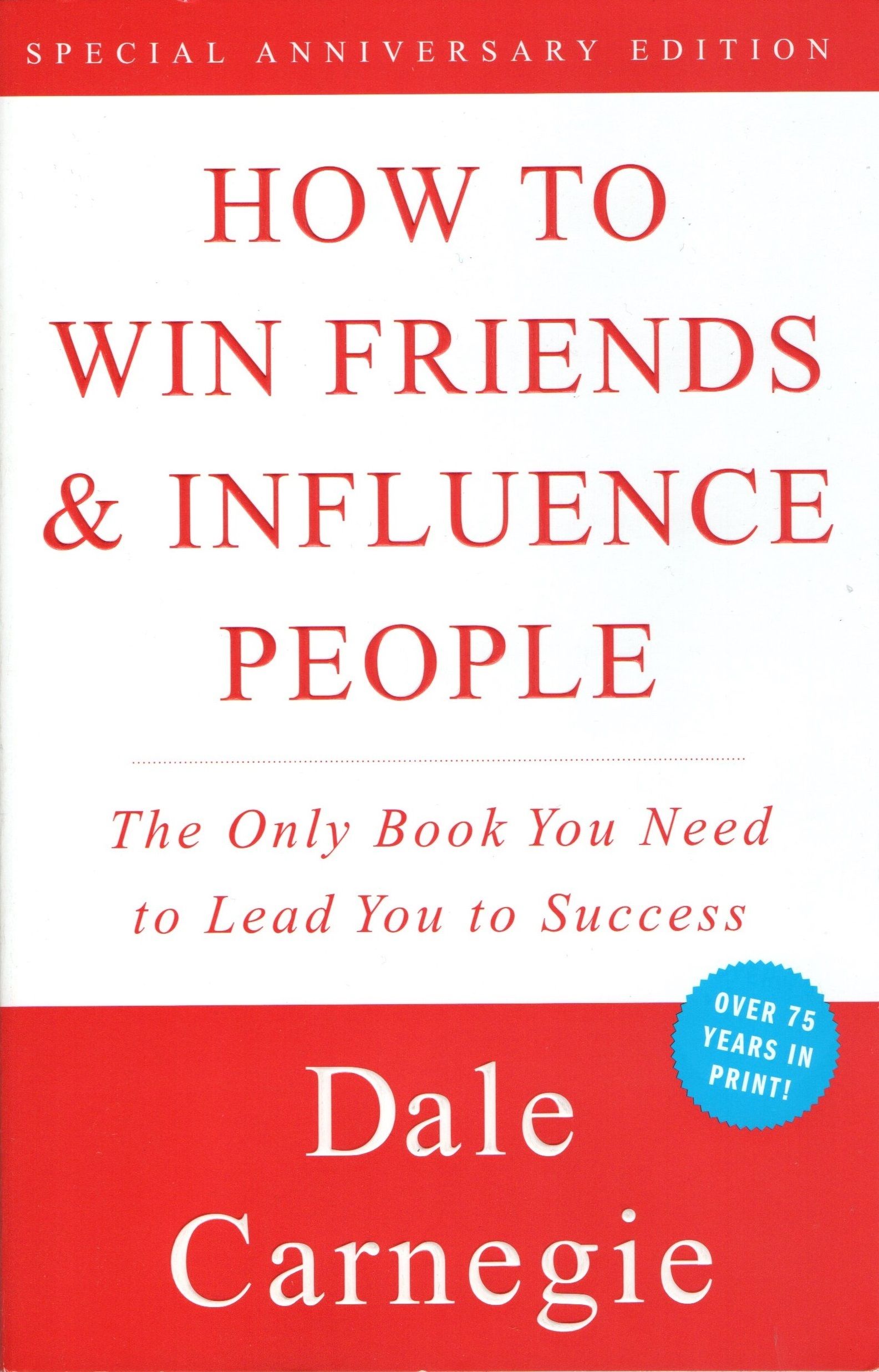
Psychology
Personal Development
Sociology
Leadership
Quiet Book Summary
Susan Cain
"Quiet" explores how the Extrovert Ideal became the cultural norm in the 20th century, explores the often undervalued strengths of introverts, and argues that we need a greater balance of both personality types to thrive in work, relationships, and society as a whole.
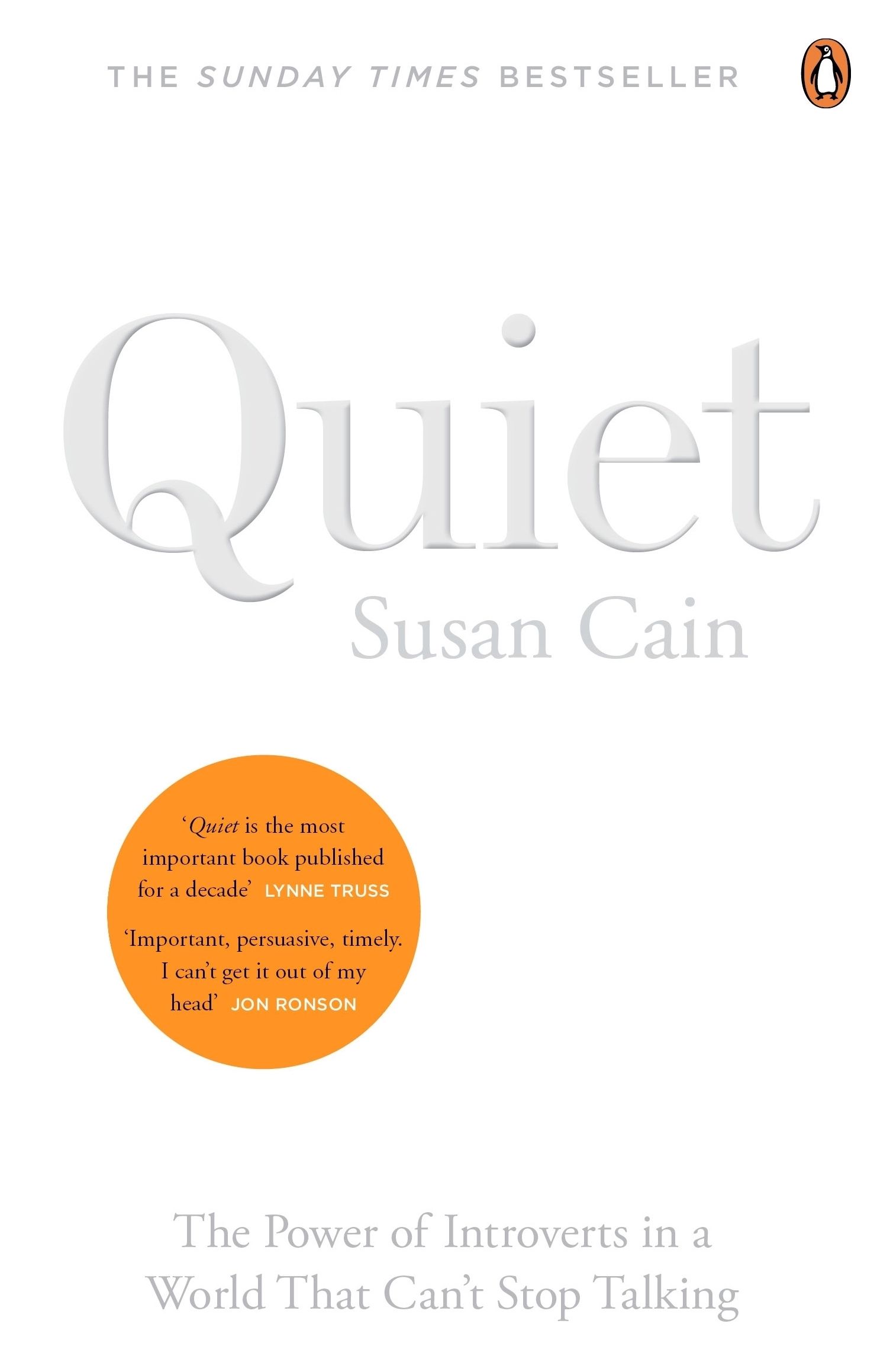
Personal Development
Leadership
Personal Development
Principles Book Summary
Ray Dalio
In Principles, Ray Dalio shares the unconventional principles he developed, refined, and used during his 40-year career to create unique results in both life and business - and which any person or organization can adopt to help achieve their goals.
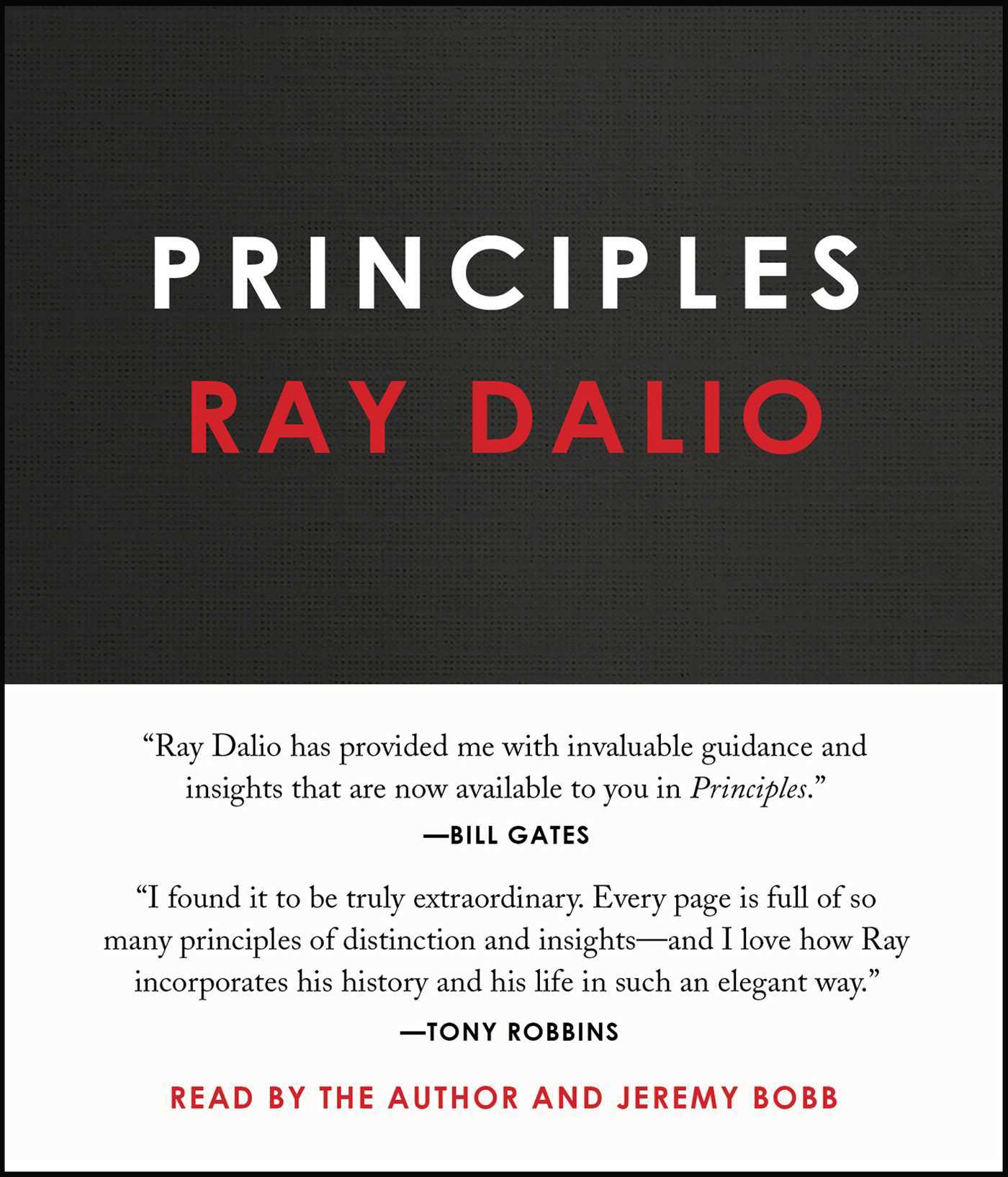
Psychology
Communication
Personal Development
Human Behavior
What Every Body is Saying Book Summary
Joe Navarro
"What Every Body is Saying" unlocks the secrets of nonverbal communication, teaching you to decode the hidden messages in every gesture, expression, and movement, so you can interact with confidence, detect deceit, and build stronger relationships in all areas of life.
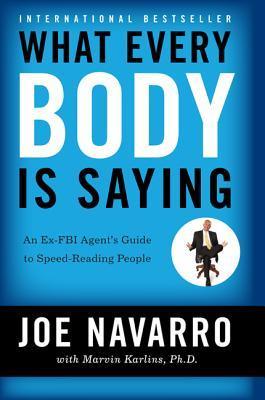
Personal Development
Learning
Psychology
The Defining Decade Book Summary
Meg Jay
The Defining Decade is a insightful guide to making the most of your twenties, the most crucial years for building the personal and professional foundations that will shape the rest of your adult life.
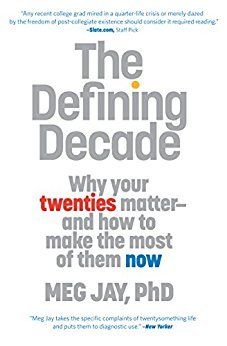
Personal Development
Self-Help
Leadership
Grit Book Summary
Angela Duckworth
In "Grit: The Power of Passion and Perseverance," Angela Duckworth argues that the secret to outstanding achievement is not talent, but a special blend of passion and persistence she calls "grit."
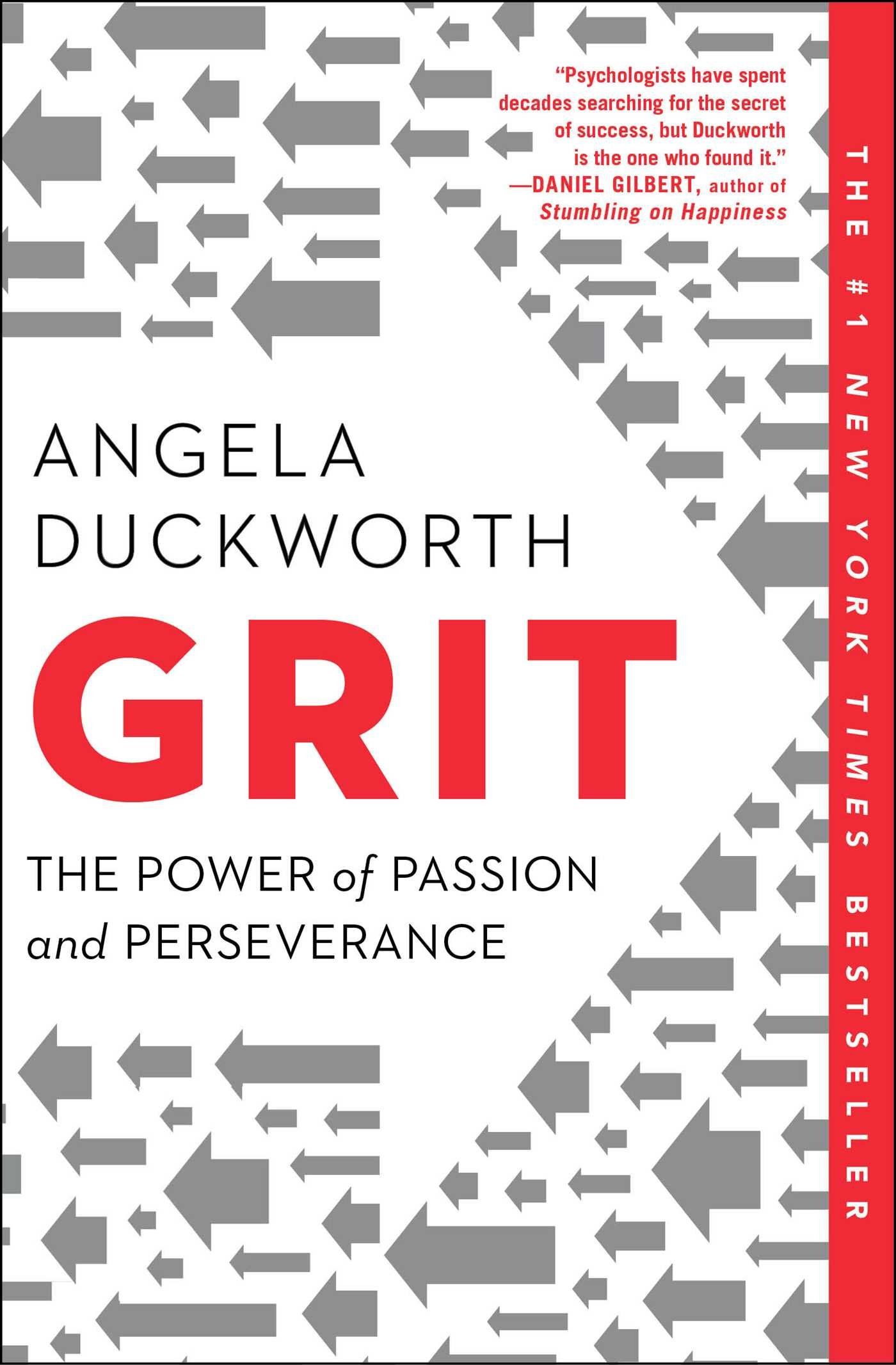
Psychology
Performance
Personal Development
Outliers Book Summary
Malcolm Gladwell
Outliers looks into the lives of exceptional individuals, uncovering the often-overlooked factors that contribute to their success. It challenges the notion of the "self-made" individual, highlighting the crucial role of opportunity, cultural legacies, and hidden advantages in shaping the path to achievement.
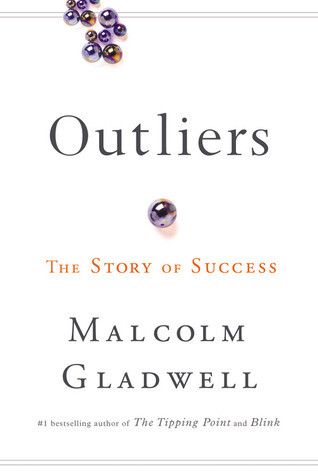
Management
Leadership
Communication
Business
Radical Candor Book Summary
Kim Malone Scott
Radical Candor is a management philosophy that emphasizes caring personally about your team while also challenging them directly, creating a culture of feedback, trust and high performance.
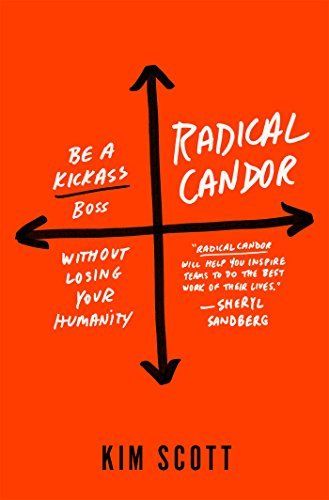
Personal Development
Tiny Experiments Book Summary
Anne-Laure Le Cunff
Tiny Experiments offers not just practical tools to make sure your most vital work gets done, but a guide to reawakening your curiosity and drive in a noisy, busy, disaffected world, so that you can discover and pursue your most authentic ambitions while making a meaningful contribution.

Communication
Relationships
Personal Development
You're Not Listening
Kate Murphy
In You're Not Listening, Kate Murphy illuminates the profound power of listening to enrich our relationships and unlock our creative potential, while offering penetrating insights and practical tips to help us reclaim this lost art in our distracted, disconnected modern lives.
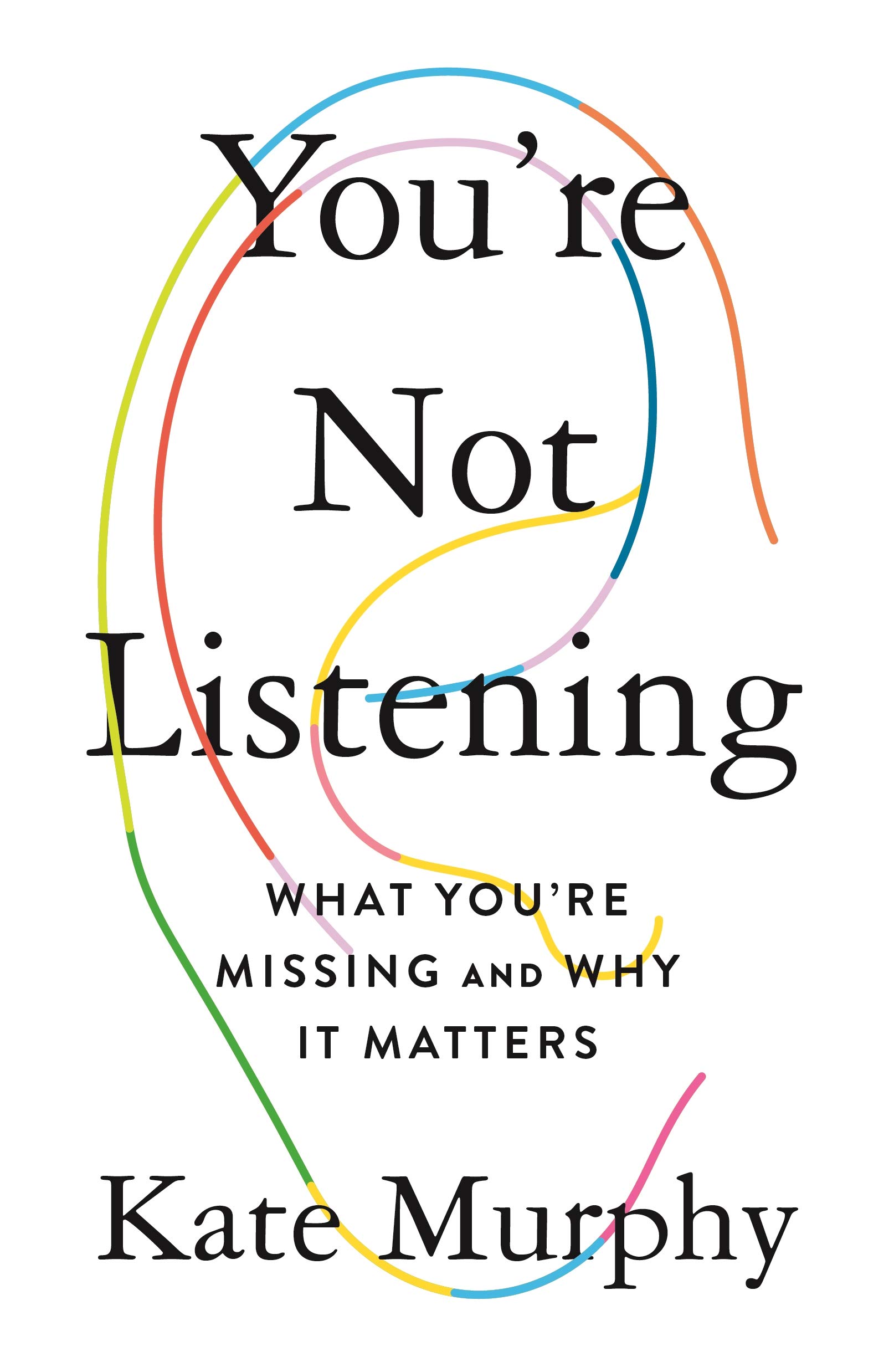
Productivity
Personal Development
Time Management
Philosophy
Essentialism Book Summary
Greg McKeown
Essentialism is a disciplined, systematic approach for determining where our highest point of contribution lies, then making execution of those things almost effortless. By applying the principles of "less but better" to every area of our lives, we can channel our time, energy and effort toward accomplishing the vital few things that really matter.
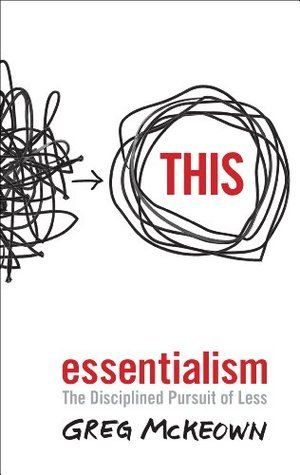
Business
Personal Development
Psychology
Hidden Potential Book Summary
Adam Grant
Unlock the secrets of hidden potential and embark on a journey of personal and collective growth. "Hidden Potential" reveals the science of achieving greater things, offering practical strategies and inspiring stories to help you and those around you reach new heights.
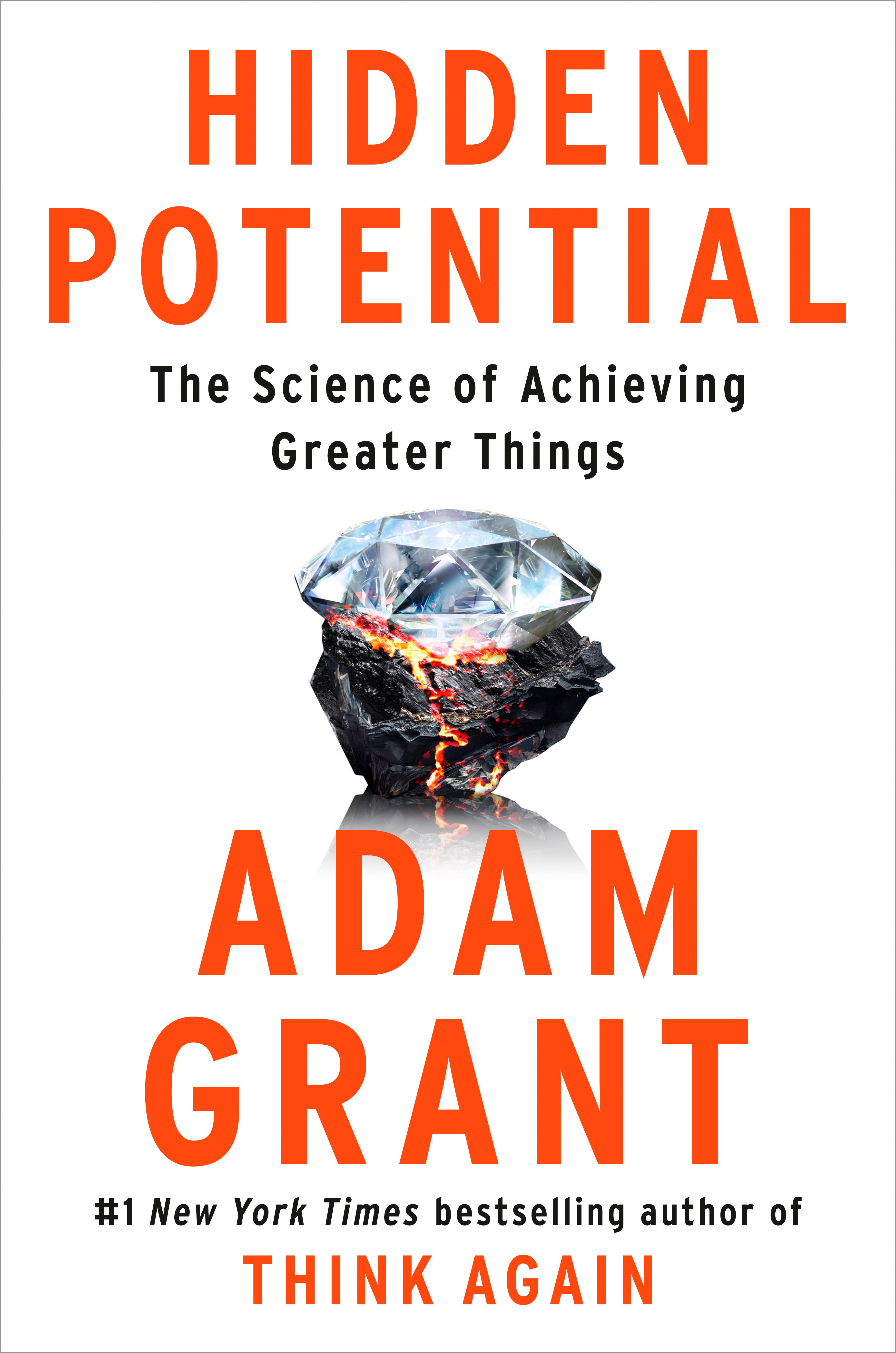
Psychology
Communication
Sociology
Talking to Strangers Book Summary
Malcolm Gladwell
In "Talking to Strangers," Malcolm Gladwell argues that our natural instincts are ill-suited for a world of frequent stranger interactions. Through case studies and research, he reveals how misguided assumptions lead to disastrous misunderstandings and offers insights on more thoughtful engagement.
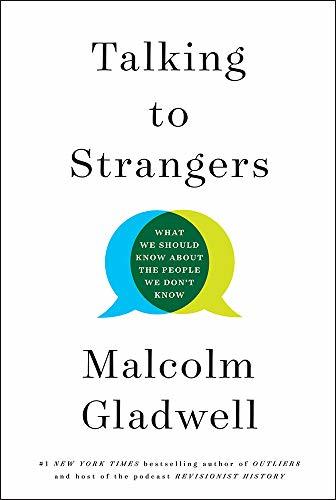
Personal Development
Management
7 Habits of Highly Effective People Book Summary
Stephen Covey
The 7 Habits of Highly Effective People is a powerful framework for personal and interpersonal growth, teaching principles of character, vision, integrity, collaboration, communication, and renewal. By adopting these habits, readers learn to take proactive charge of their lives and continually invest in their greatest asset - themselves.
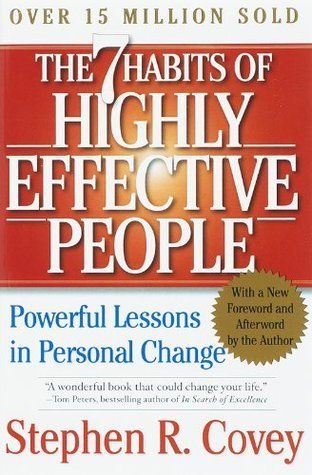
Personal Development
Self-Help
Feel The Fear And Do It Anyway Book Summary
Susan Jeffers
In "Feel the Fear and Do It Anyway," Susan Jeffers empowers readers to overcome their fears by shifting their mindset, embracing uncertainty, and taking bold action in the direction of their dreams.
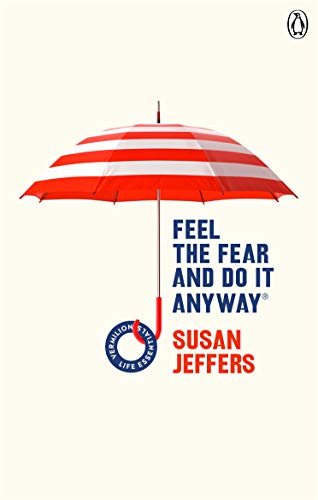
Psychology
Personal Development
Business
Thinking Fast and Slow Book Summary
Daniel Kahneman
Kahneman explores the two systems that drive the way we think: the intuitive, automatic System 1 and the deliberate, analytical System 2. It explores how these systems shape our judgments, decisions, and biases, revealing the surprising power of intuition and the pitfalls of overconfidence.
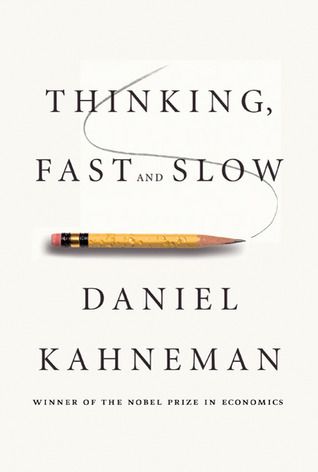
Learning
Education
Personal Development
Productivity
A Mind For Numbers Book Summary
Barbara Oakley
"A Mind for Numbers" by Barbara Oakley reveals the science-backed techniques and insights that can transform anyone's ability to excel in math, science and complex subjects by harnessing the brain's innate learning abilities.
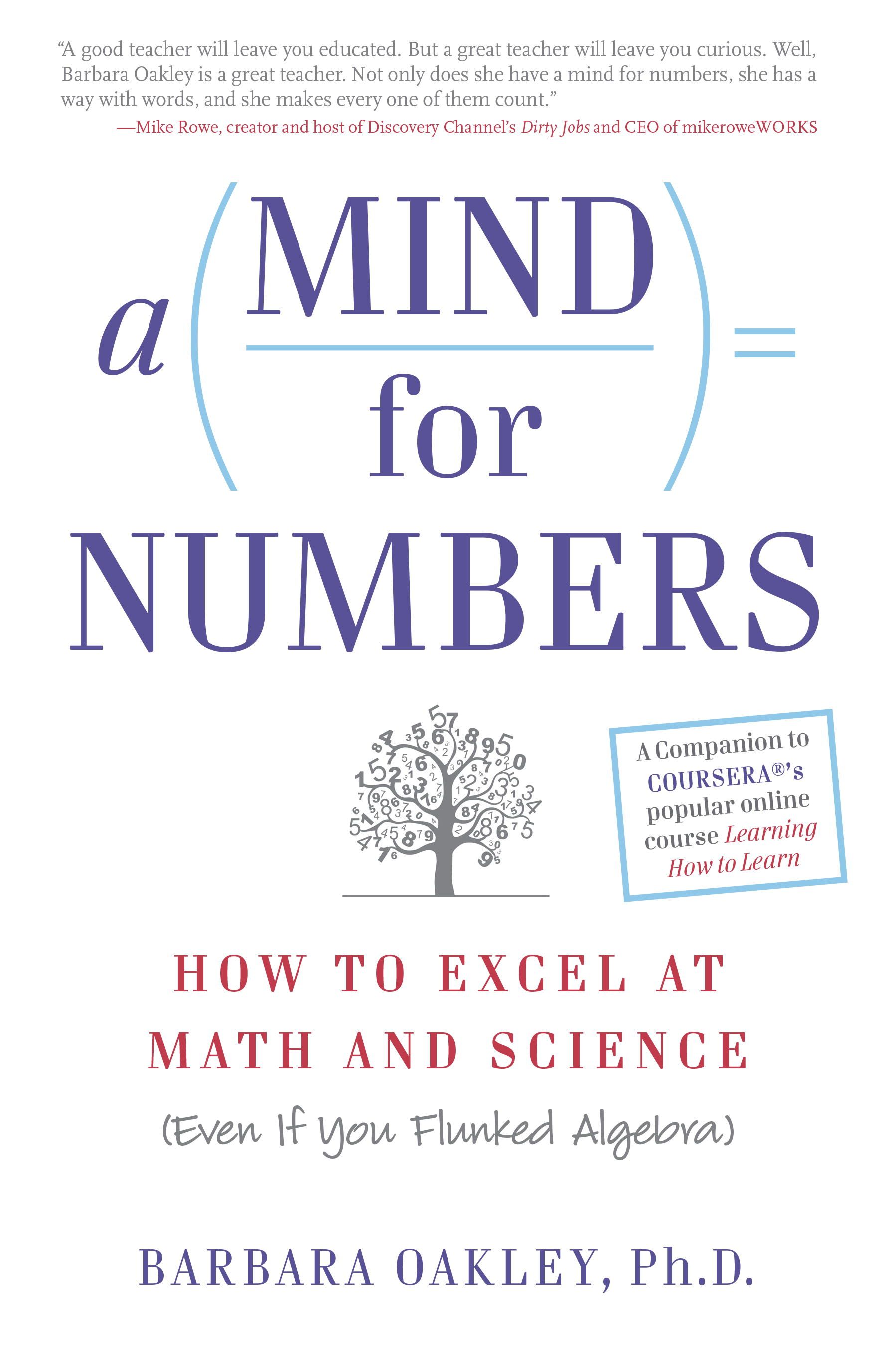
Sociology
Psychology
Personal Development
Human Behavior
Wanting Book Summary
Luke Burgis
In "Wanting," Luke Burgis draws on the powerful insights of French polymath René Girard to explore how mimetic desire - our tendency to unconsciously imitate the desires of others - shapes our lives, and provides practical strategies to escape toxic rivalries, find fulfilling desires, and become authentic leaders in an age of runaway mimesis.
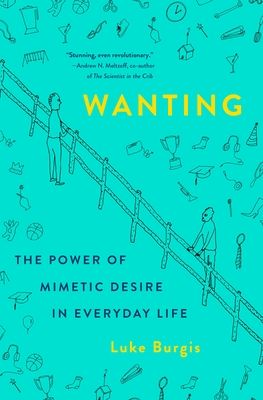
Personal Development
Learning
Psychology
Range Book Summary
David Epstein
"Range" challenges the conventional wisdom that early specialization is the key to success. Instead, Epstein argues that in our increasingly complex and unpredictable world, it is those with broad experience and diverse skills who are best equipped to thrive.
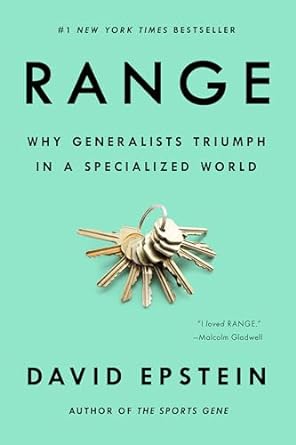
Philosophy
Personal Development
Leadership
Productivity
The Obstacle Is the Way Book Summary
Ryan Holiday
The Obstacle Is the Way presents a practical formula for overcoming life's challenges and achieving success by controlling perceptions, taking decisive action, and cultivating an indomitable will.
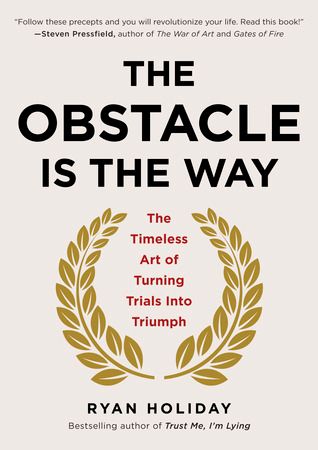
Personal Development
Psychology
Philosophy
Meditations for Mortals Book Summary
Oliver Burkeman
Addressing the fundamental questions about how to live, Meditations for Mortals offers a powerful new way to take action on what counts: a guiding philosophy of life Oliver Burkeman calls “imperfectionism.”

Happiness
Psychology
Stumbling on Happiness Book Summary
Daniel Gilbert
Harvard psychologist Daniel Gilbert takes readers on a whirlwind tour of the human brain, exploring how our unique ability to imagine the future often leads us astray in predicting what will make us happy. Gilbert argues that the futures we envision are often distorted by our current emotions, our flawed memories, and our psychological blind spots - but recognizing these limitations, we can learn to more accurately forecast our feelings and maximize our well-being.
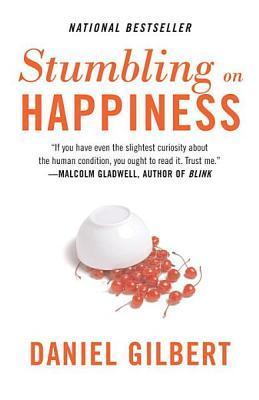
Money
Personal Development
Self-Help
Finance
Your Money or Your Life Book Summary
Joe Dominguez, Vicki Robin
Your Money or Your Life is a transformative guide that empowers readers to redefine their relationship with money, align their spending with their values, and achieve financial independence through a nine-step program that focuses on conscious living and fulfillment rather than endless consumption.
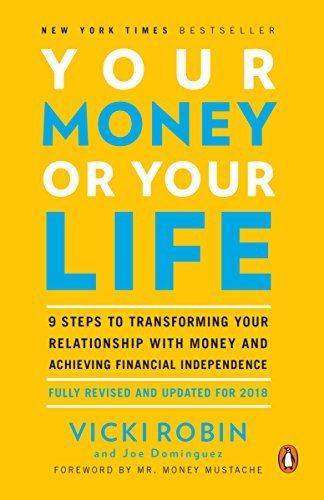
Personal Development
Happiness
Psychology
The Courage to Be Disliked
Ichiro Kishimi and Fumitake Koga
Through an illuminating dialogue, "The Courage to Be Disliked" reveals how Adlerian psychology empowers us to overcome the past, embrace our authentic selves, and find genuine happiness by courageously living in the present and contributing to others.
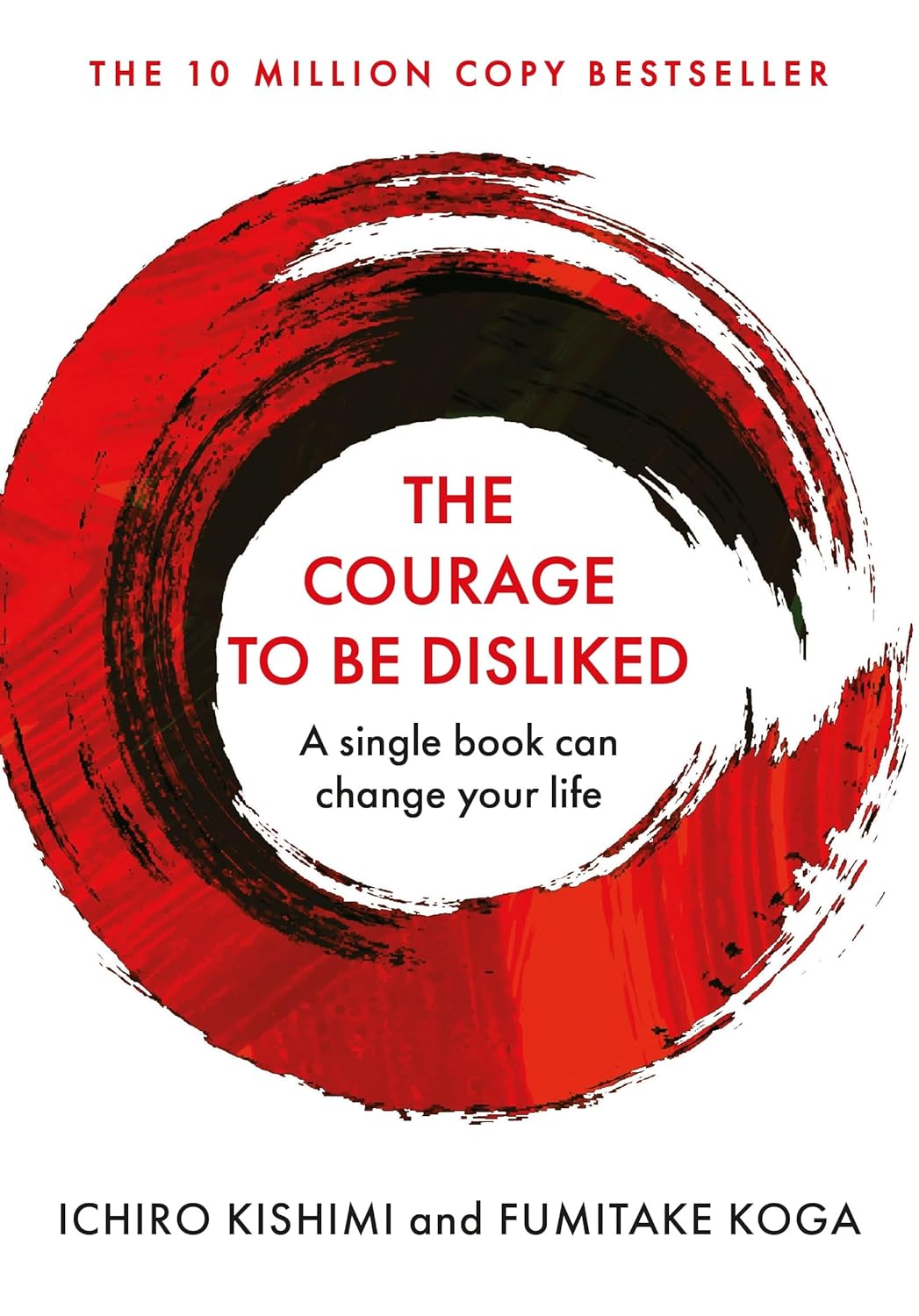
Psychology
Therapy
Self-Help
Personal Development
Why Has Nobody Told Me This Before Book Summary
Julie Smith
In "Why Has Nobody Told Me This Before?", Dr. Julie Smith shares practical insights and tools from therapy to help you navigate life's challenges, build resilience, and create a meaningful life aligned with your values.
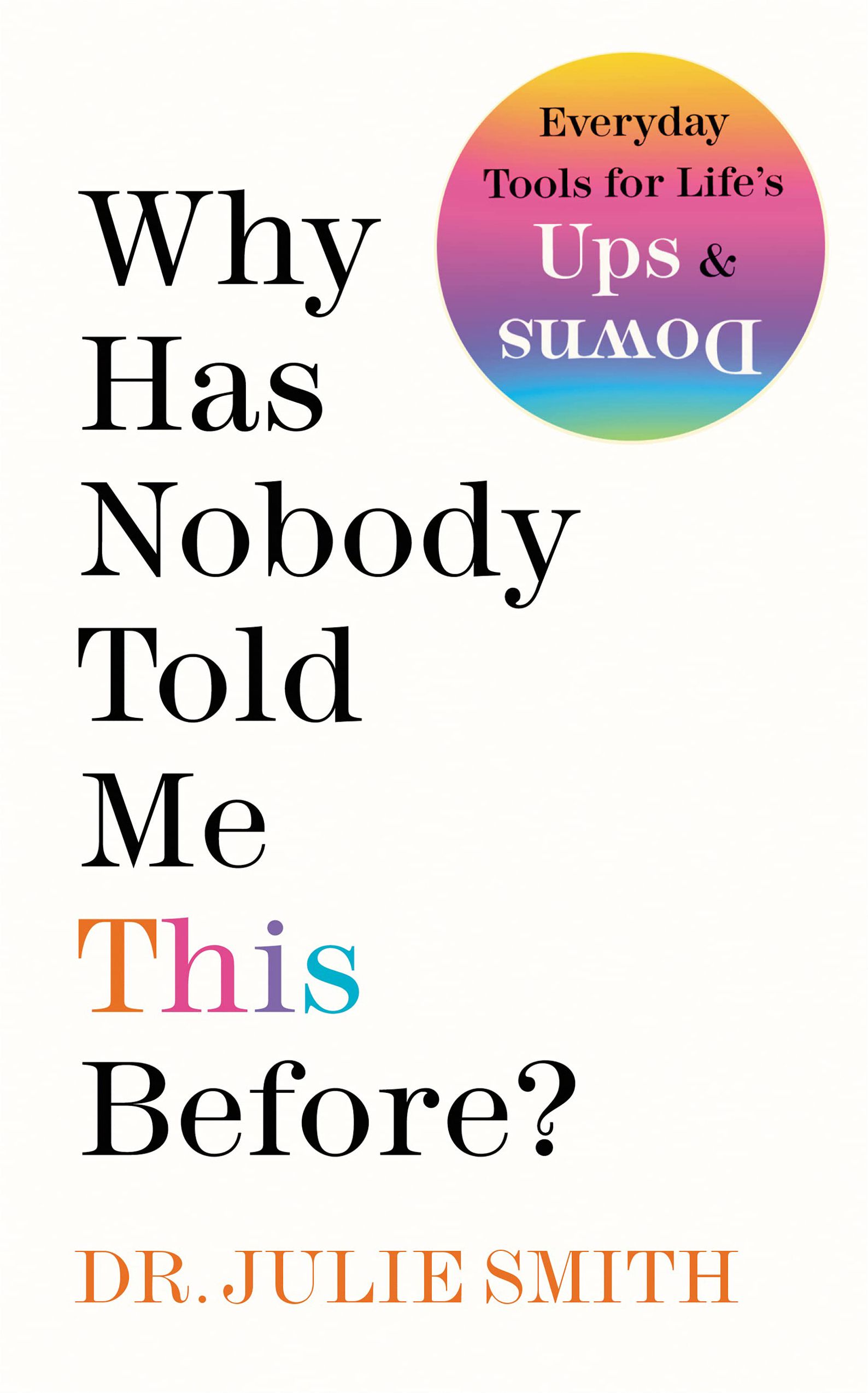
Personal Development
Decision Making
Psychology
Thinking in Bets Book Summary
Annie Duke
In "Thinking in Bets," Annie Duke draws on her experience as a professional poker player to share strategies for making sound decisions under uncertainty, such as thinking probabilistically, learning from outcomes, surrounding yourself with truthseeking groups, and using mental time travel to pressure-test beliefs and plans.
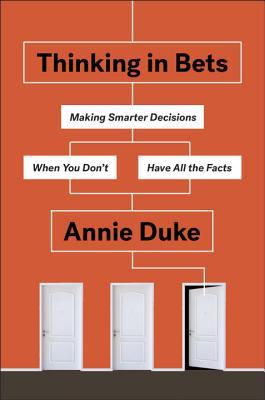
Happiness
Psychology
Philosophy
Personal Development
Meaning
The Happiness Hypothesis Book Summary
Jonathan Haidt
The Happiness Hypothesis is a thought-provoking exploration of ancient wisdom and modern science that reveals the true sources of human flourishing - love, work, virtue, and the harmony between our divided selves and our social world.
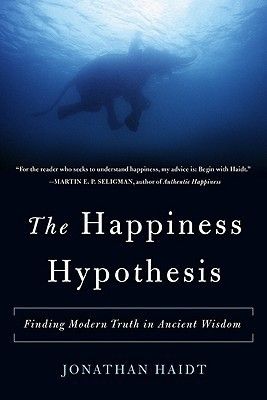
Relationships
Personal Development
Psychology
Mental Health
Attached Book Summary
Amir Levine, Rachel Heller
"Attached" uses science and psychology to show you how to find and keep love by understanding the fundamental attachment needs that drive all romantic relationships.
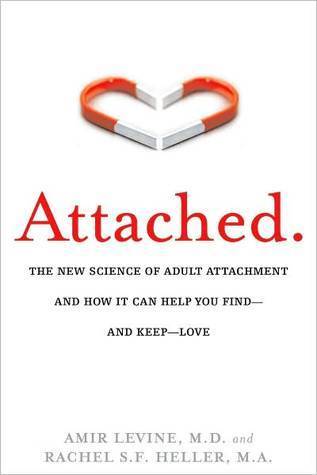
Communication
Persuasion
Negotiation
Personal Development
Never Split The Difference Book Summary
Chris Voss
Never Split the Difference teaches that negotiation is not about logic and rationality, but about emotional intelligence, empathy, and the subtle art of getting into your counterpart's head to uncover their real motivations and desires.
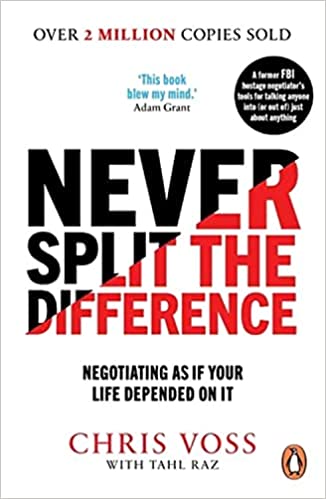
Relationships
Psychology
How to Not Die Alone Book Summary
Logan Ury
How to Not Die Alone is a practical guide that uses behavioral science and real-life examples to help you find and maintain a fulfilling long-term relationship by identifying self-sabotaging dating patterns, practicing intentional love, and making deliberate choices.
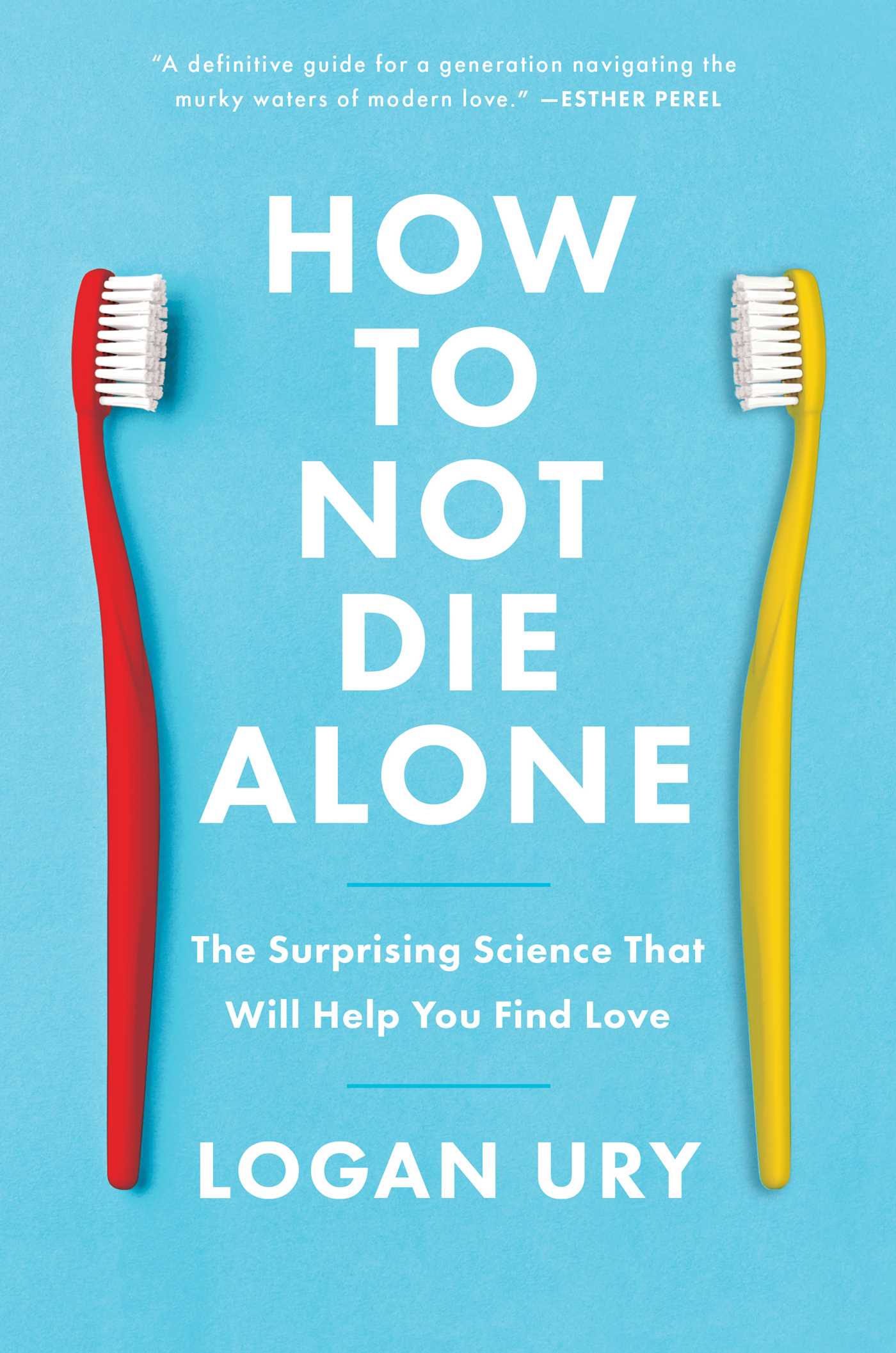
Psychology
Happiness
Productivity
Personal Development
Flow Book Summary
Mihály Csíkszentmihályi
Flow reveals the secrets of optimal experience and shows how to transform even the most mundane moments into a source of enjoyment, creativity and meaning by learning to control consciousness itself.
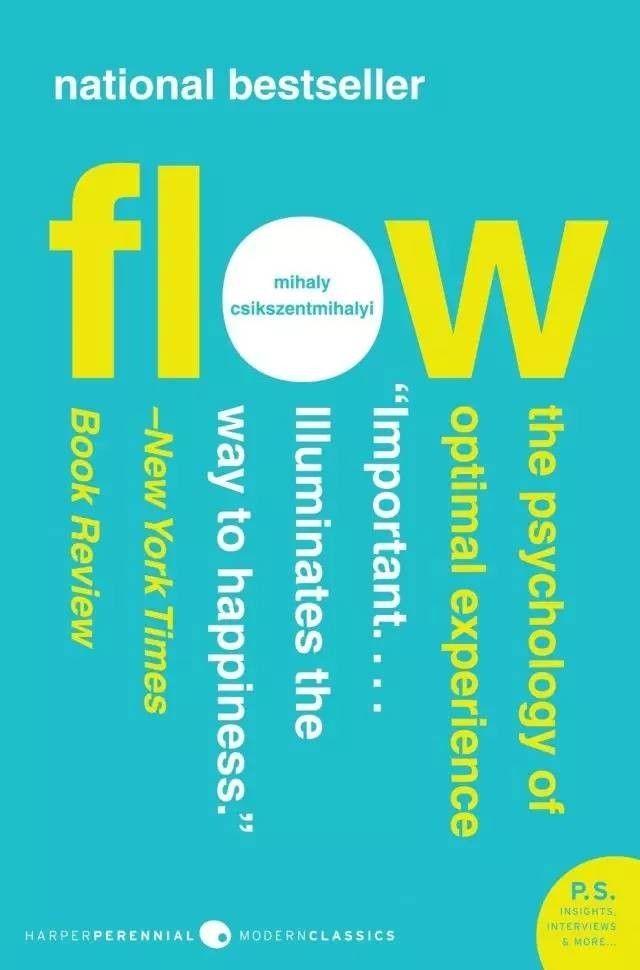
Productivity
Personal Development
Time Management
Deep Work Book Summary
Cal Newport
In "Deep Work", Cal Newport argues that the ability to focus intensely on cognitively demanding tasks is becoming increasingly rare yet increasingly valuable in our economy, and provides a training regimen to cultivate this skill through the application of four rules: work deeply, embrace boredom, quit social media, and drain the shallows.
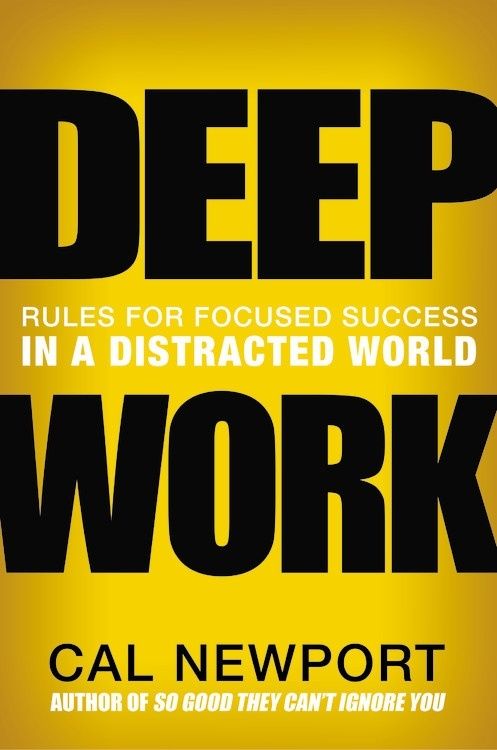
Management
Personal Development
Productivity
Psychology
The Checklist Manifesto Book Summary
Atul Gawande
In The Checklist Manifesto, Atul Gawande compellingly argues that checklists are a powerful yet underutilized tool for improving performance in complex, failure-prone systems, from aviation to construction to healthcare, by ensuring that teams consistently execute on the most critical steps.
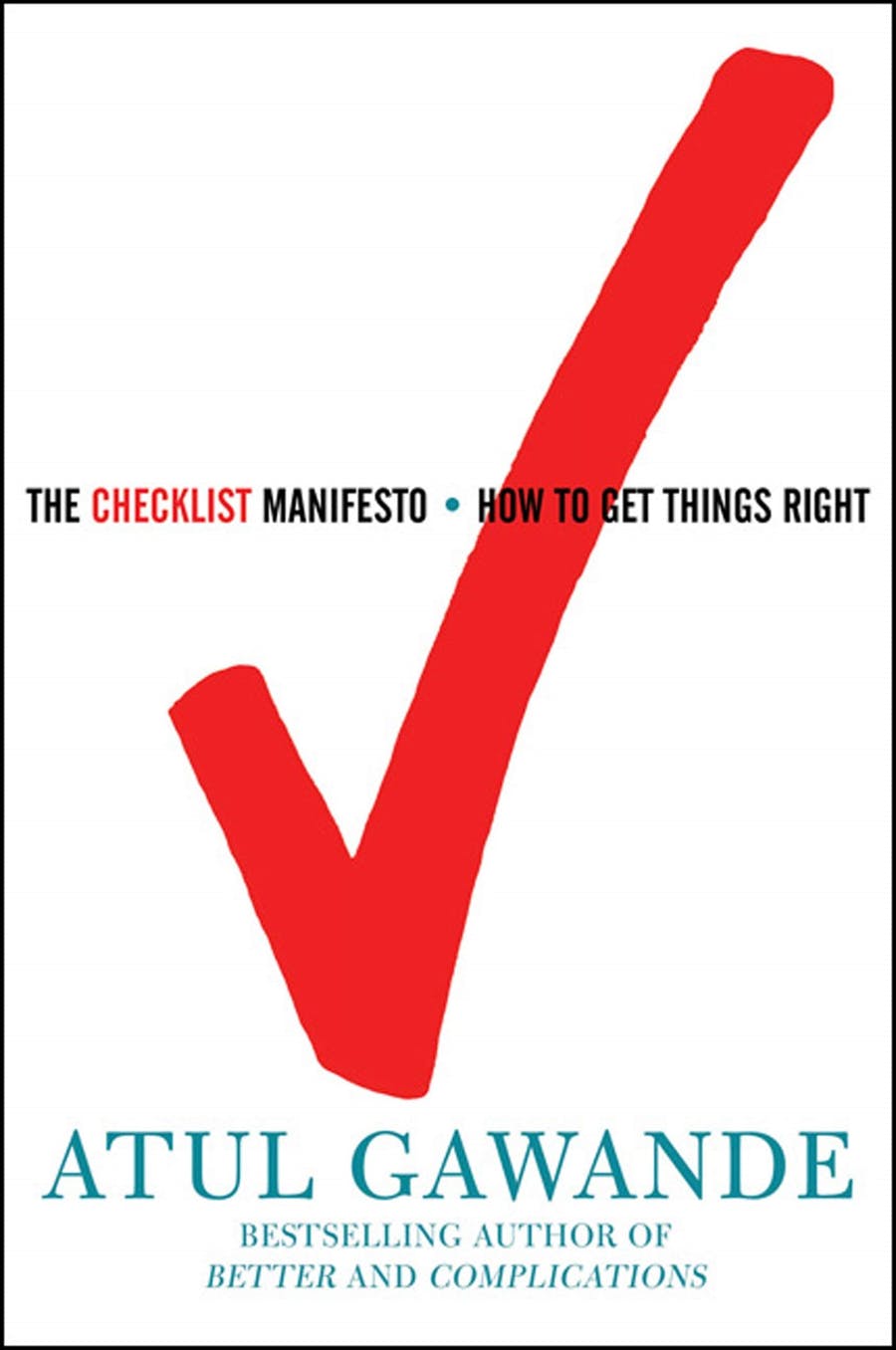
Philosophy
Personal Development
Four Thousand Weeks Book Summary
Oliver Burkeman
"Four Thousand Weeks" offers a radical perspective on time management, urging us to abandon the futile quest for control and embrace our finite existence. By accepting our limitations and making conscious choices, we can discover a more meaningful and fulfilling way to spend our brief time on this planet.
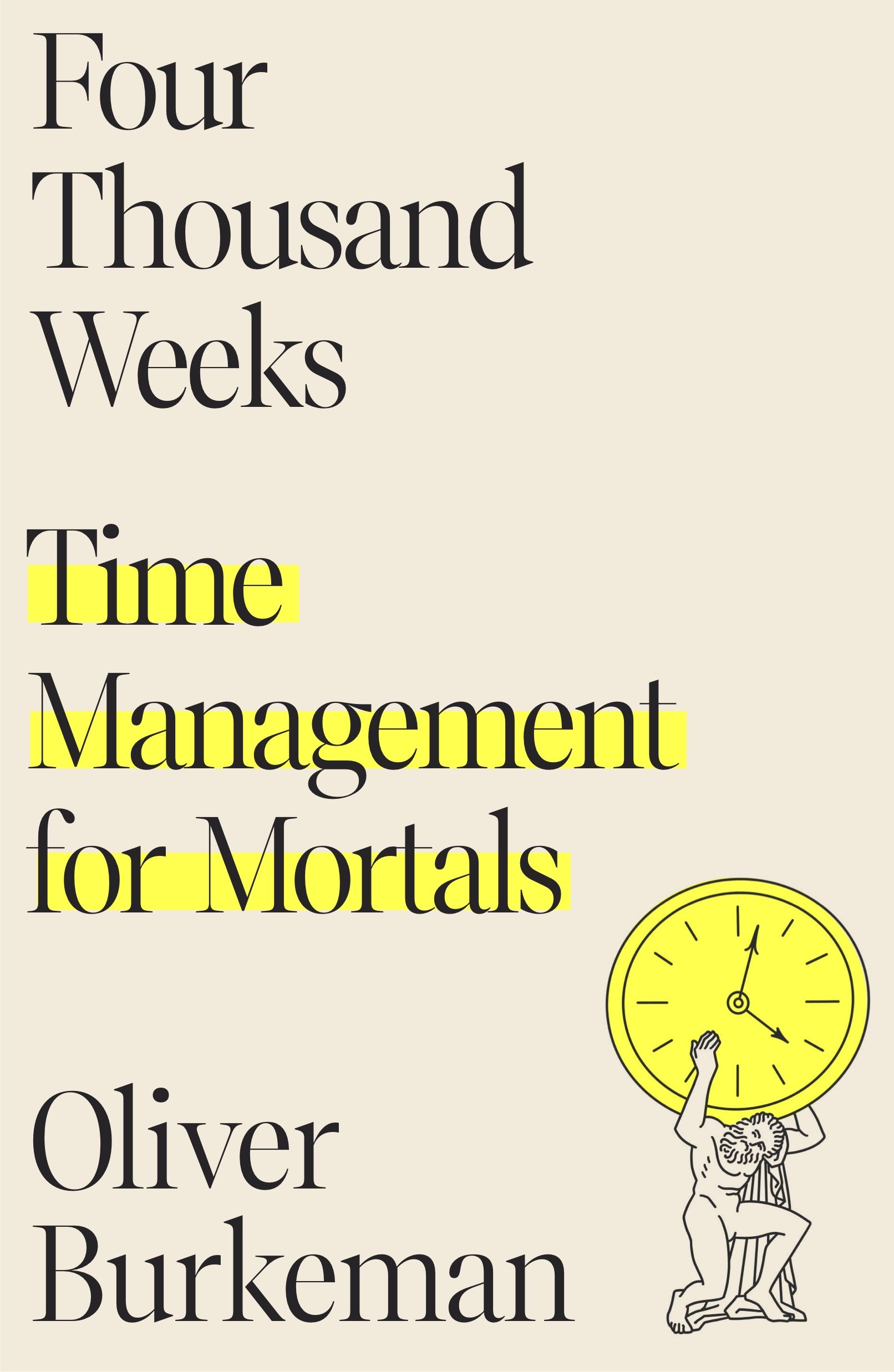
Thinking
Personal Development
Productivity
Business
Clear Thinking Book Summary
Shane Parrish
In "Clear Thinking", Shane Parrish provides a practical guide to overcoming our built-in mental biases and defaults in order to make better decisions, cultivate clear thinking, and align our actions with what truly matters for a life well-lived.
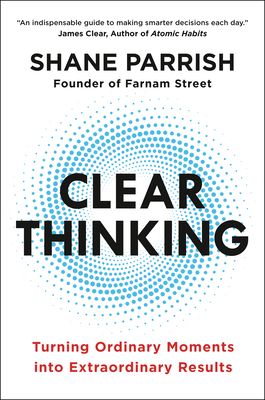
Sleep
Health
Personal Development
Why We Sleep Book Summary
Matthew Walker
Sleep is the single most effective thing we can do to reset our brain and body health, yet we are in the midst of a global sleep loss epidemic that is decimating our health, longevity, productivity. Prioritizing sleep is can improve virtually every aspect of our lives, and this book provides the scientific evidence and practical strategies to make it happen.
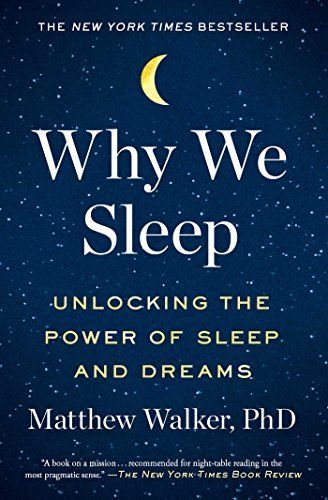
Memory
Psychology
Learning
Personal Development
Moonwalking with Einstein Book Summary
Joshua Foer
Joshua Foer chronicles his journey from covering the U.S. Memory Championship as a journalist to becoming a competitor and ultimately winning the event himself, all while exploring the history, science, and techniques of memory training and the untapped potential of the human mind.
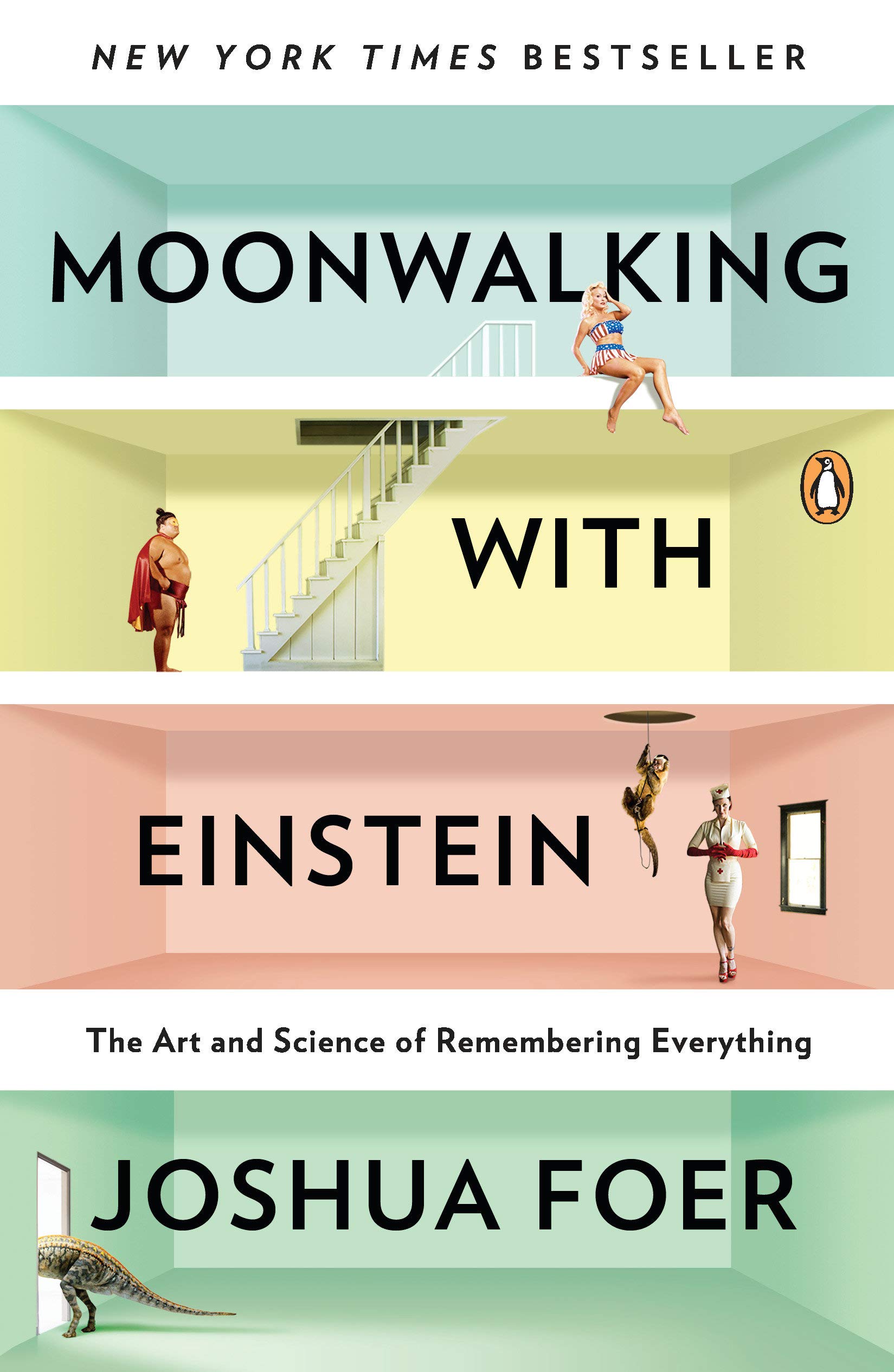
Personal Development
Society
Psychology
The Comfort Crisis Book Summary
Michael Easter
In "The Comfort Crisis," Michael Easter investigates how our modern culture of constant comfort may be making us less resilient, more prone to illness, and robbing us of the very experiences that make us feel most alive.
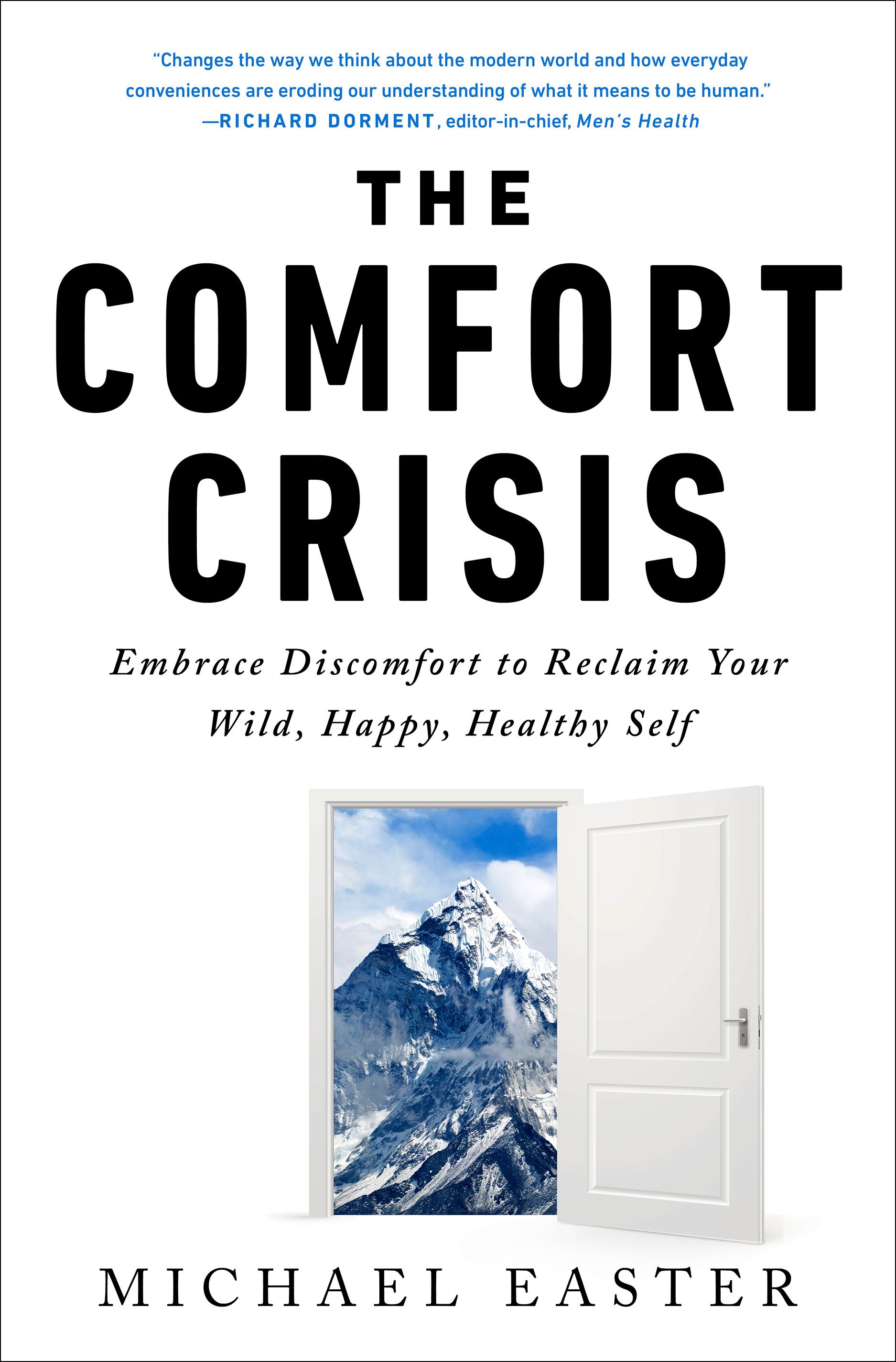
Memory
Psychology
Neuroscience
Personal Development
Remember Book Summary
Lisa Genova
In "Remember", neuroscientist Lisa Genova explores the intricacies of how we create, retain, and retrieve memories, offering fascinating insights and practical strategies to harness the power of your memory while accepting its inevitable imperfections.
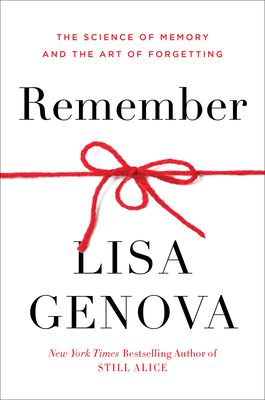
Learning
Education
Psychology
Personal Development
Mindset Book Summary
Carol Dweck
Mindset reveals the power of our beliefs to shape our lives, and shows how adopting a growth mindset - the belief that abilities can be developed through dedication and hard work - can help us achieve more than we ever thought possible in every area of life.
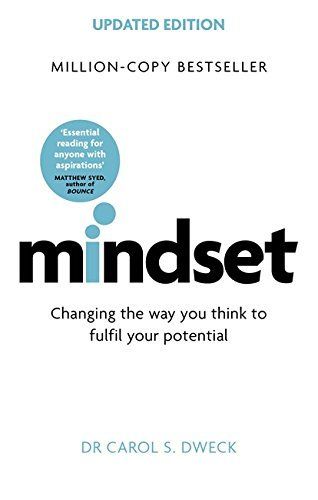
Productivity
Personal Development
Psychology
Atomic Habits Book Summary
James Clear
Atomic Habits reveals the surprising power of small habits, demonstrating how tiny changes can compound into remarkable results over time. By focusing on systems over goals and building identity-based habits, you can create lasting change and unlock your full potential.
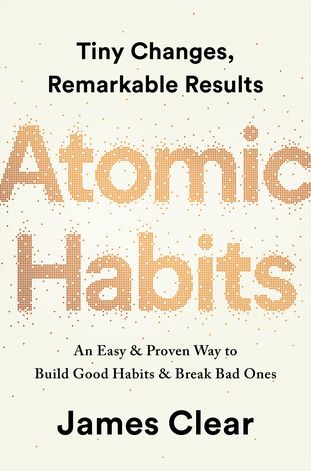
Psychology
Business
Personal Development
Think Again Book Summary
Adam Grant
Think Again is a compelling exploration of the power of knowing what you don't know, and how embracing the joy of being wrong and actively questioning your opinions can help you make better decisions

Personal Development
Psychology
Habits
Human Behavior
Scarcity Brain Book Summary
Michael Easter
In a world of abundance, our ancient scarcity-wired brains keep us trapped in self-defeating loops of "more" - but by recognizing these patterns and deliberately choosing "enough," we can find deeper fulfillment.
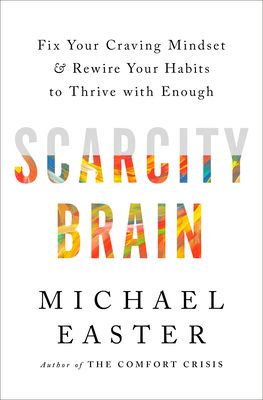
Psychology
Personal Development
Self-Help
Philosophy
The Subtle Art of Not Giving a F*ck Book Summary
Mark Manson
In "The Subtle Art of Not Giving a F*ck," Mark Manson argues that the key to a good life is not the pursuit of happiness, but rather the embrace of uncertainty, failure, and our own limitations - learning to care deeply about a few important things, and letting go of the rest.
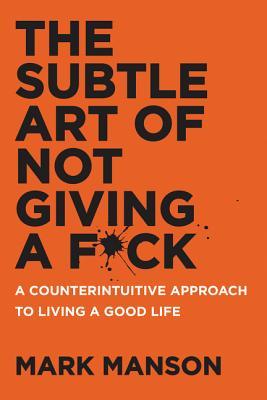
Learning
Ultralearning Book Summary
Scott Young
In "Ultralearning," Scott Young reveals the powerful principles and strategies used by elite self-directed learners to rapidly master hard skills and tackle ambitious projects, showing you how to create your own custom learning journeys to accelerate your career, expand your knowledge, and maximize your potential.
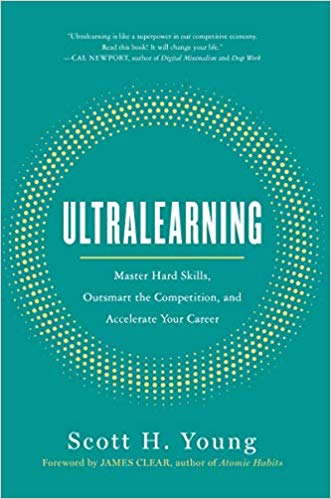
Personal Development
Money
Psychology
The 5 Types of Wealth Book Summary
Sahil Bloom
After three years of research, personal experimentation, and thousands of interviews across the globe, Sahil Bloom has created a groundbreaking blueprint to build your life around five types of wealth: Time Wealth, Social Wealth, Mental Wealth, Physical Wealth, and Financial Wealth.

Learning
Education
Psychology
Productivity
Personal Development
Make It Stick Book Summary
Peter Brown, Henry Roediger, Mark McDaniel
Make It Stick offers powerful, evidence-based strategies for deeper, more durable learning - spacing, retrieval, interleaving, elaboration, generation, and reflection - that challenge conventional study habits and unlock our full learning potential.
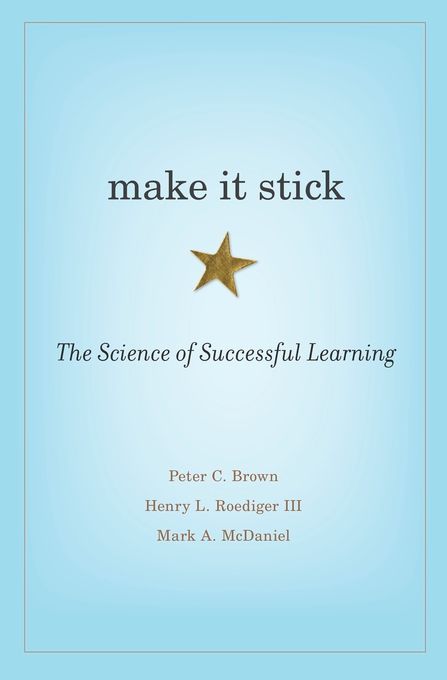
Personal Development
Productivity
Goal Setting
Habits
Happiness
Feel Good Productivity Book Summary
Ali Abdaal
"Feel-Good Productivity" by Ali Abdaal is a transformative guide that teaches us how to harness the power of positive emotions, overcome mental roadblocks, and achieve sustainable success by aligning our actions with our values.
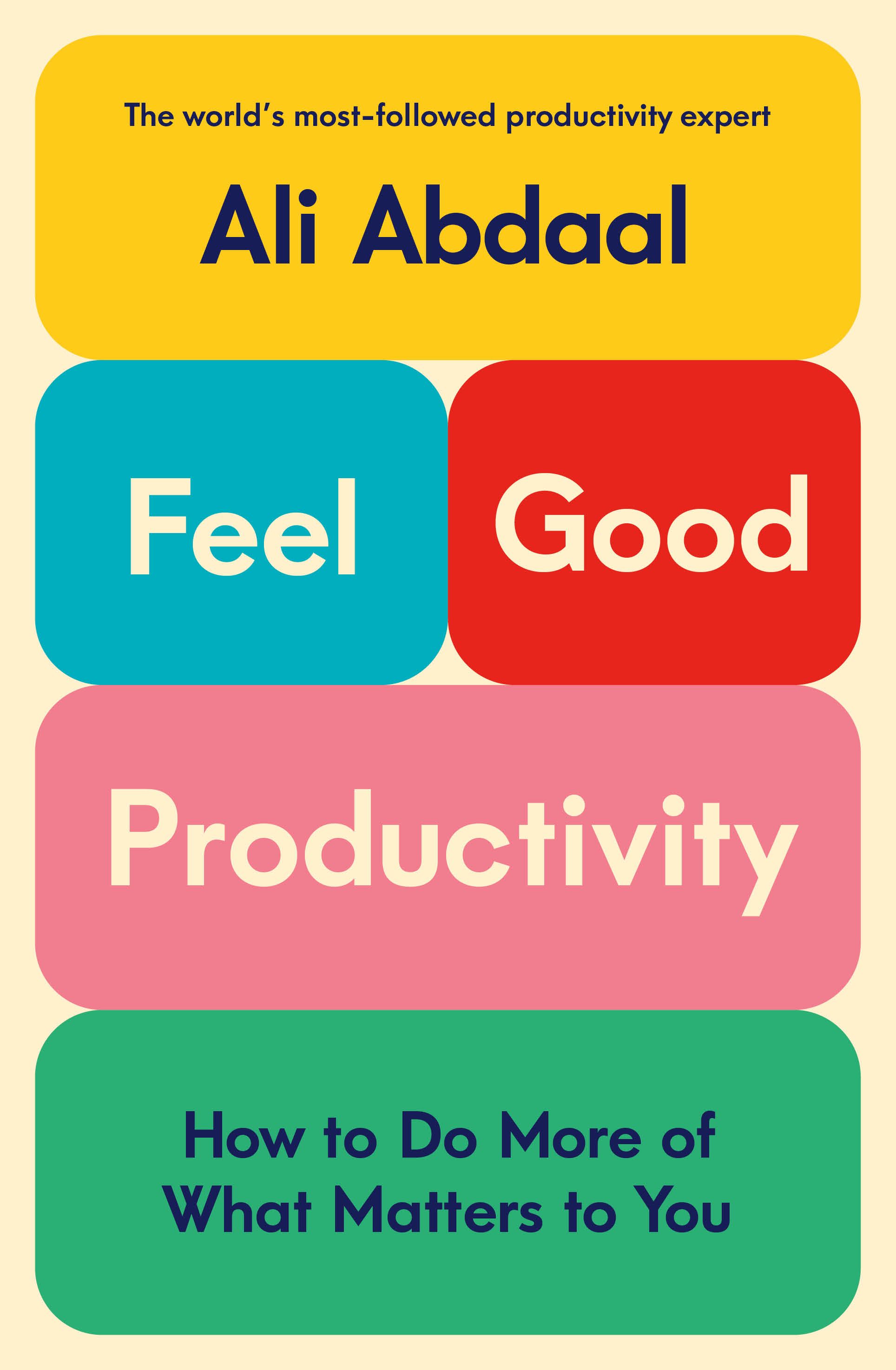
Productivity
Personal Development
Entrepreneurship
The 10X Rule Book Summary
Grant Cardone
The 10X Rule is the key to achieving extraordinary success by setting massive goals and taking even more massive action, declaring success your duty, responsibility and obligation, and adopting the mindsets and habits of the world's most successful people.
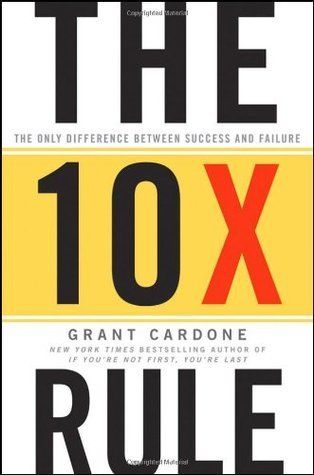
Personal Development
Self-Help
Psychology
The Mountain Is You Book Summary
Brianna Wiest
For centuries, the mountain has been used as a metaphor for the big challenges we face, especially ones that seem impossible to overcome. To scale our mountains, we actually have to do the deep internal work of excavating trauma, building resilience, and adjusting how we show up for the climb. In the end, it is not the mountain we master, but ourselves.

Habits
Personal Development
Management
The Power of Habit Book Summary
Charles Duhigg
The Power of Habit illuminates the science behind habit formation and provides practical strategies for transforming habits in our personal lives, organizations, and society.
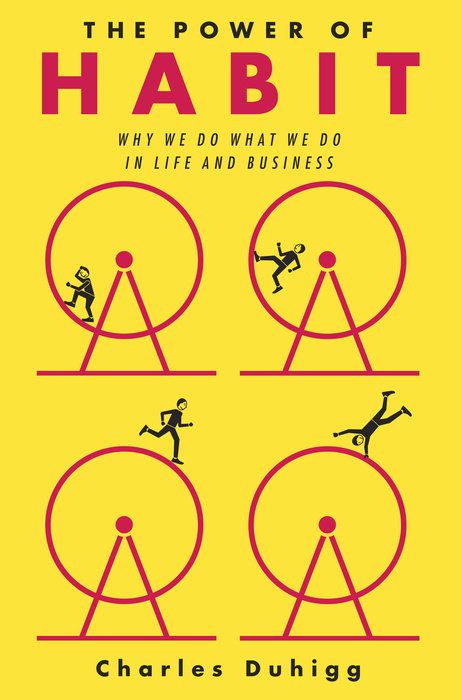
Personal Development
Philosophy
Everything is F*cked Book Summary
Mark Manson
In a world where everything seems fcked, Manson provides a provocative exploration of the human condition, offering a counterintuitive perspective on the nature of hope, the illusion of self-control, and the quest for meaning amongst uncertainty
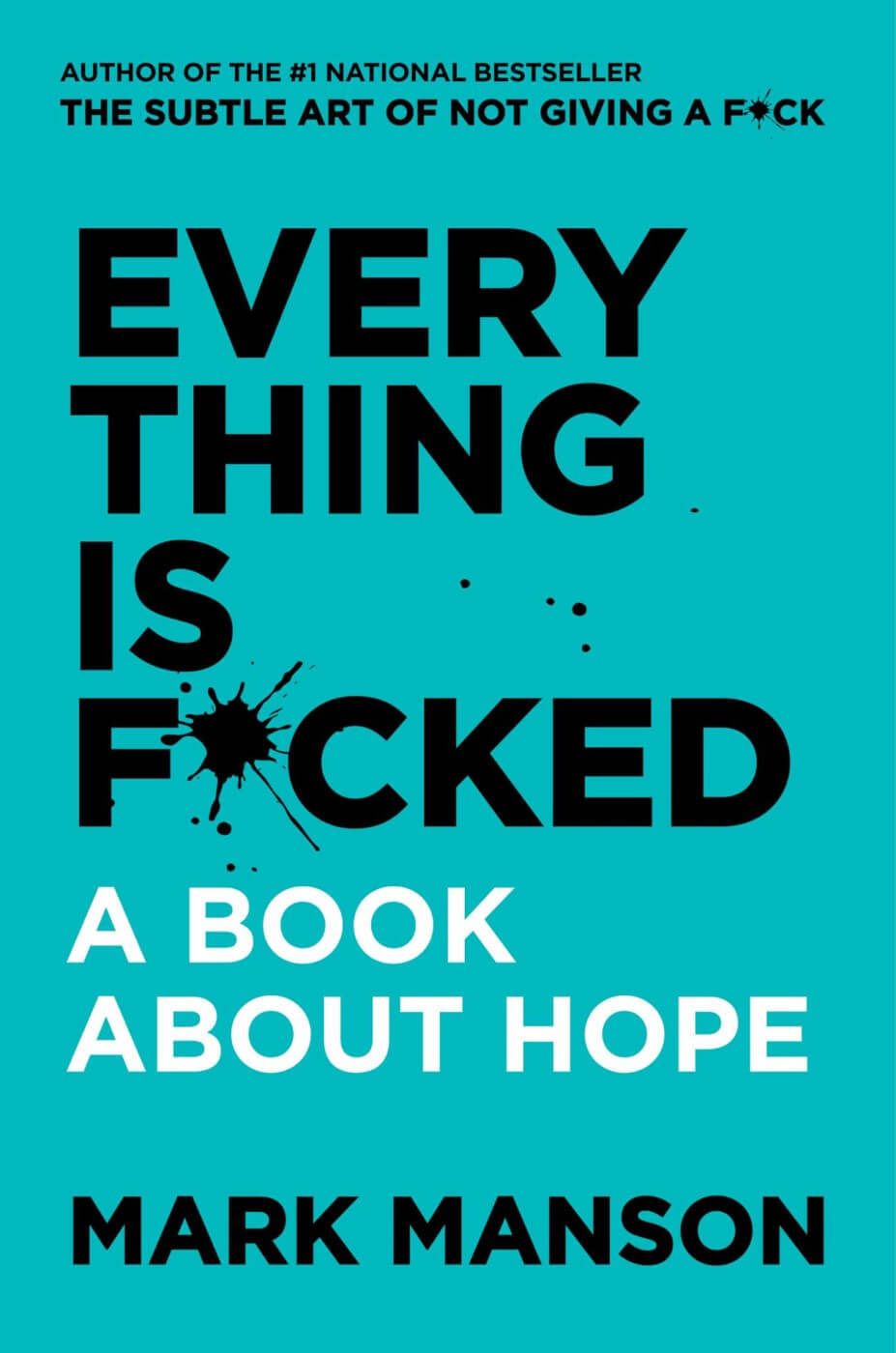
Personal Development
Money
Think and Grow Rich Book Summary
Napoleon Hill
"Think and Grow Rich" is a transformative guide that reveals how harnessing the power of thought, desire, and persistence can turn your dreams into reality, offering practical strategies to overcome mental barriers and achieve lasting success and wealth.
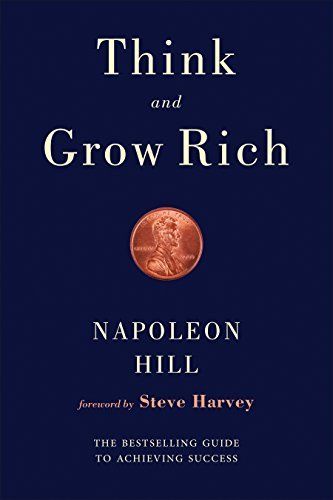
Leadership
Management
Business
The Culture Code Book Summary
Daniel Coyle
The Culture Code reveals the secrets of highly successful groups, showing that the key to unleashing a team's full potential lies in creating a culture of safety, shared vulnerability, and purpose.
